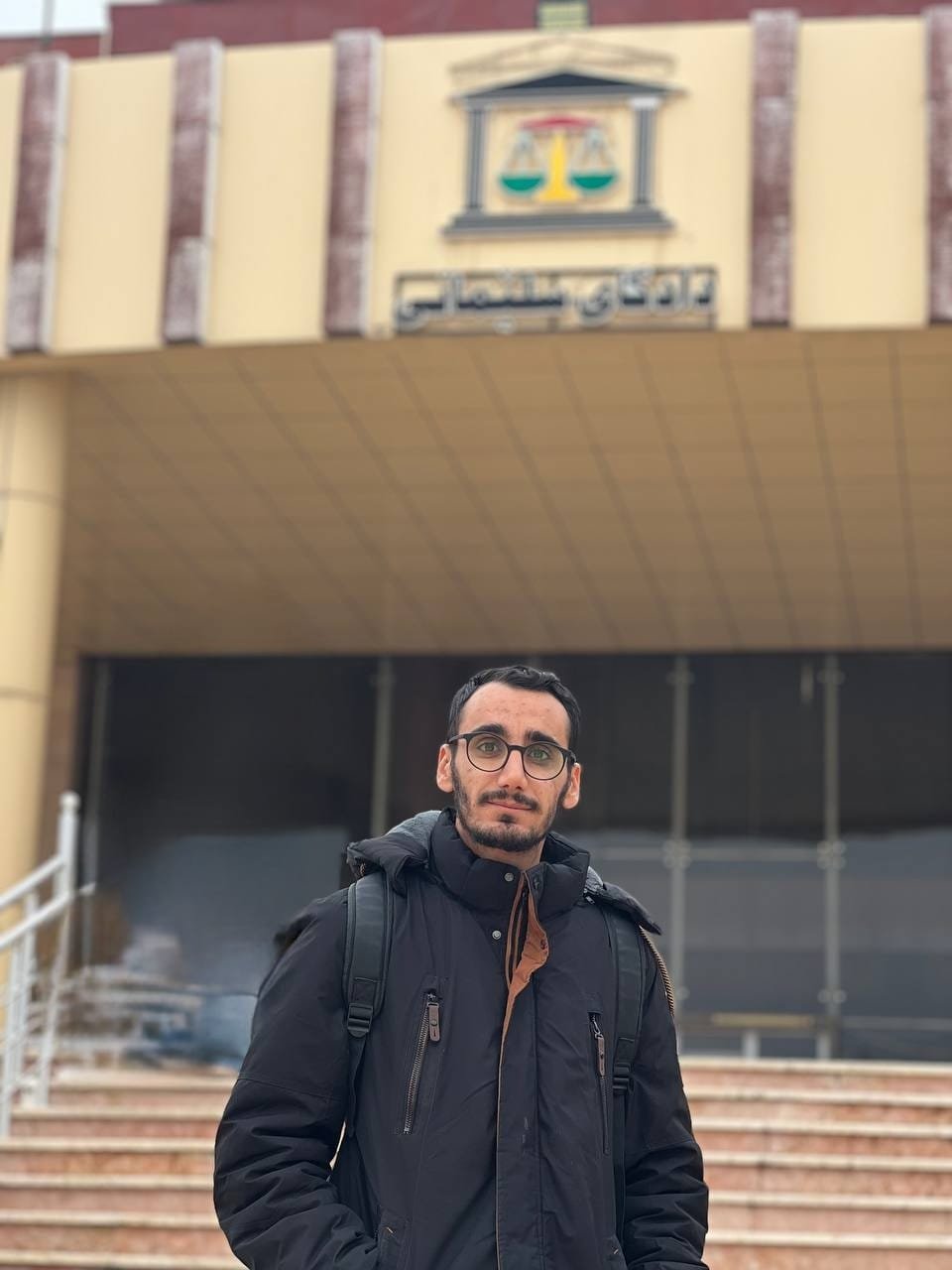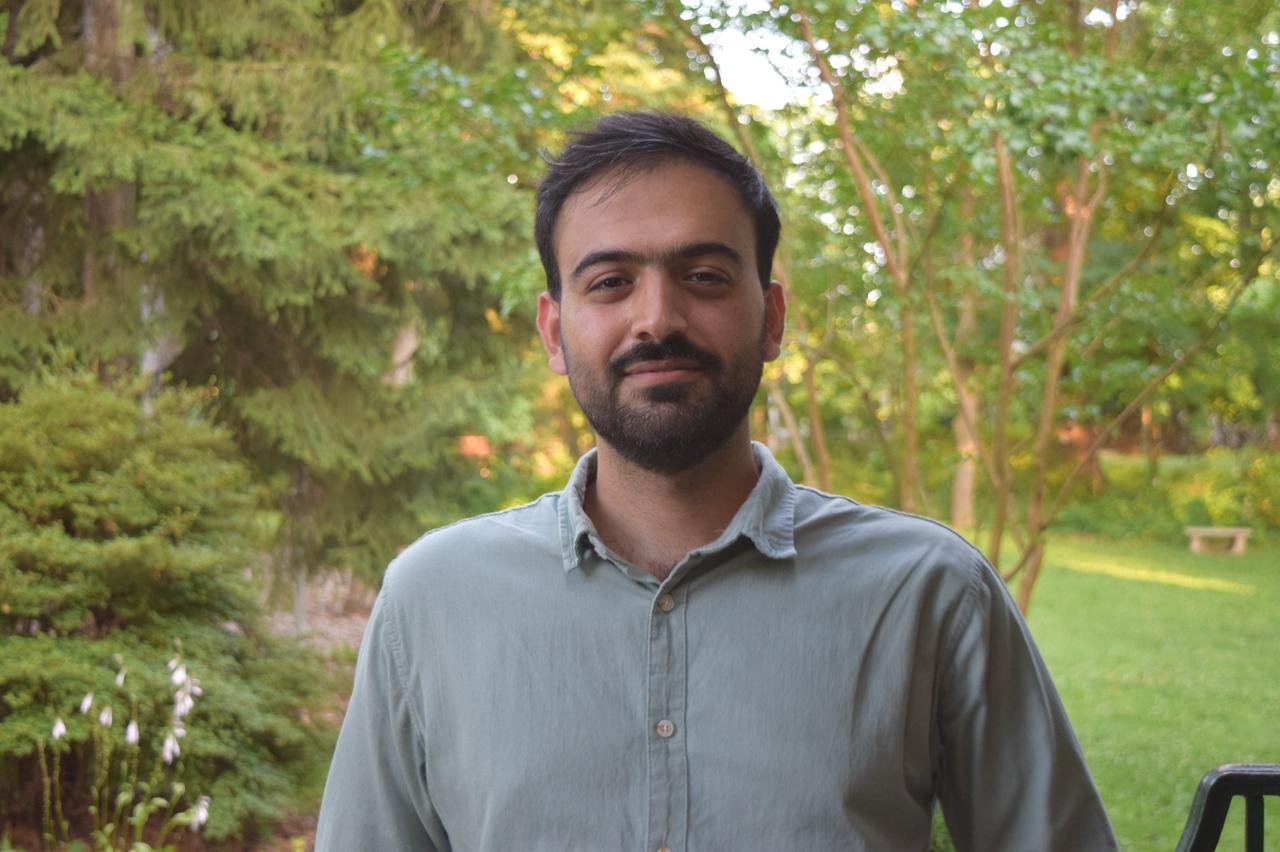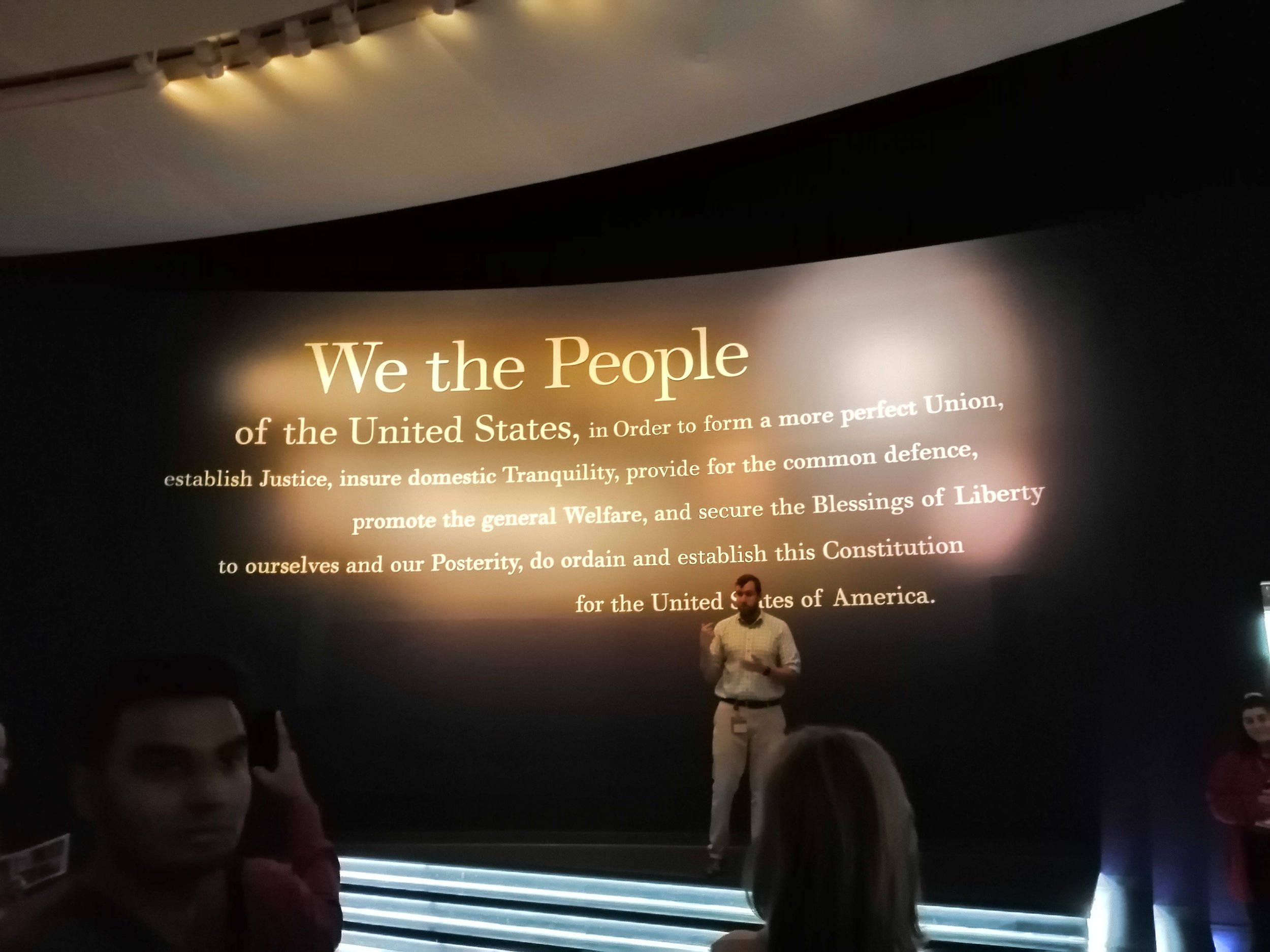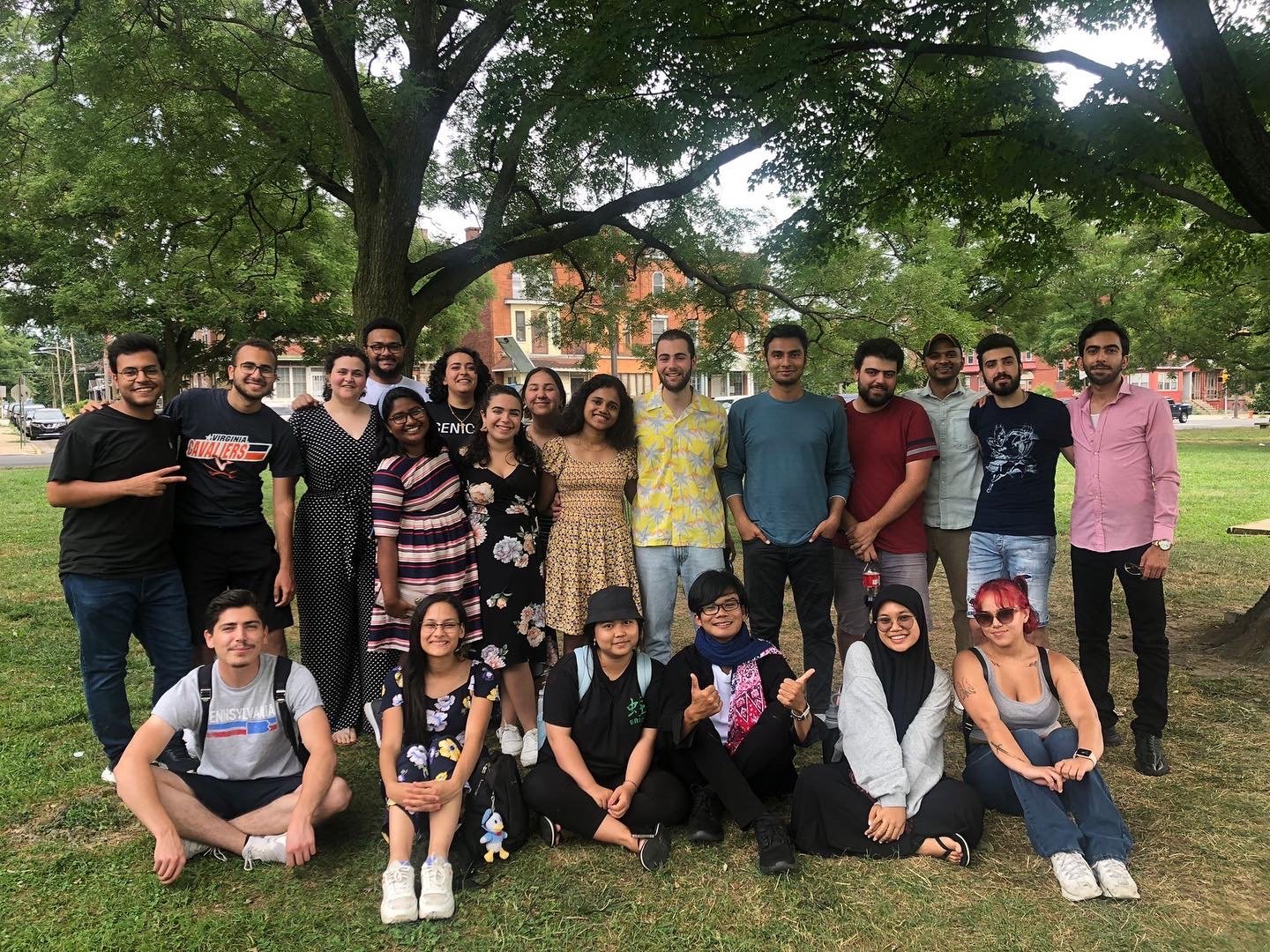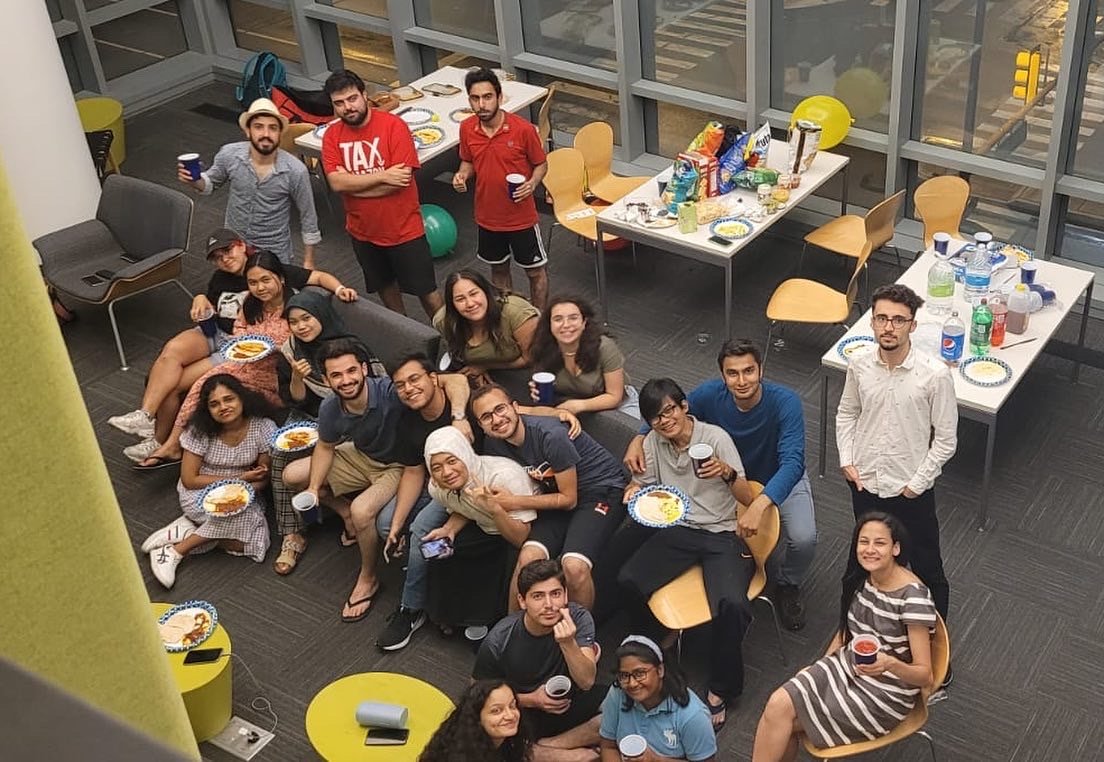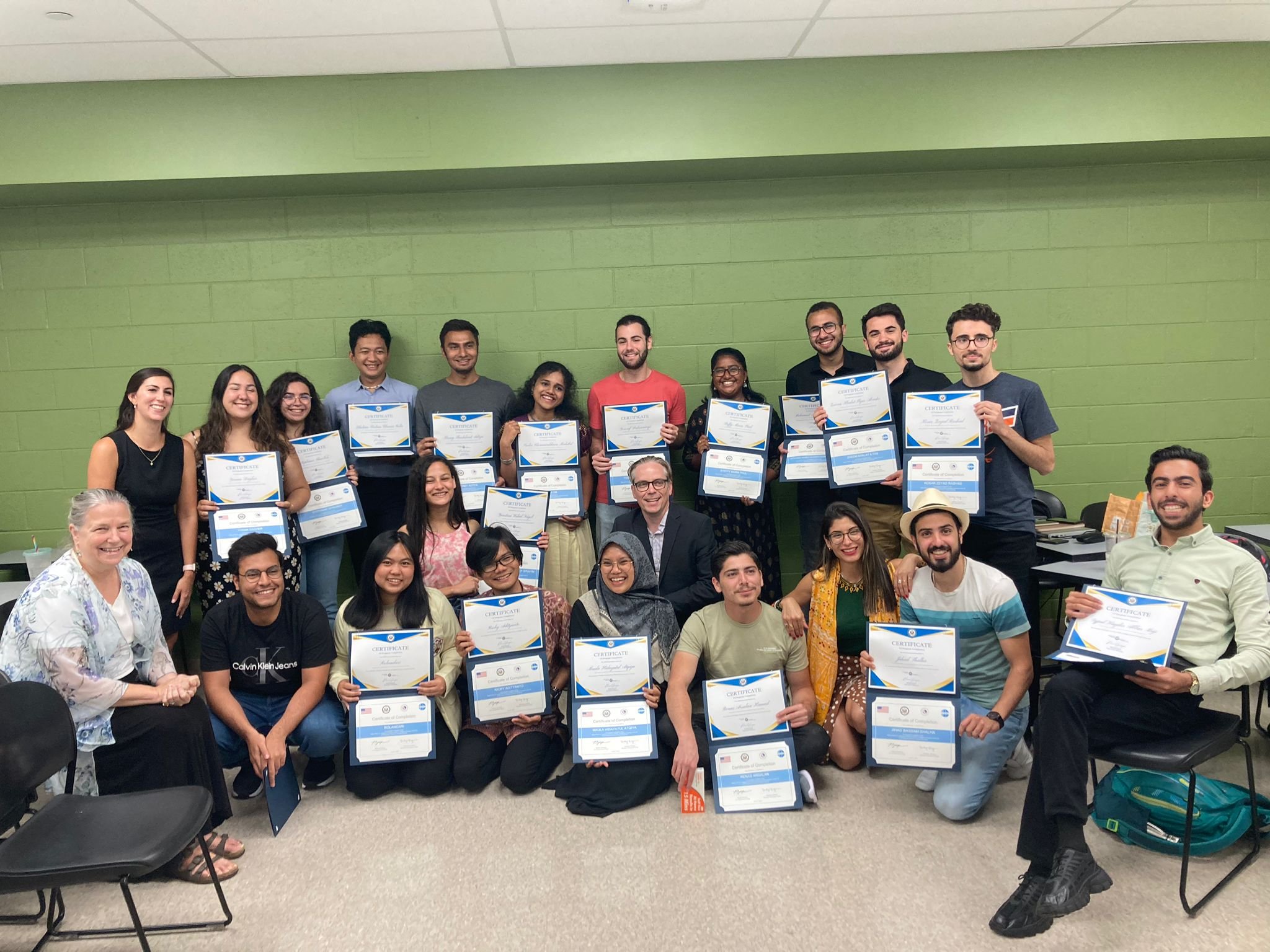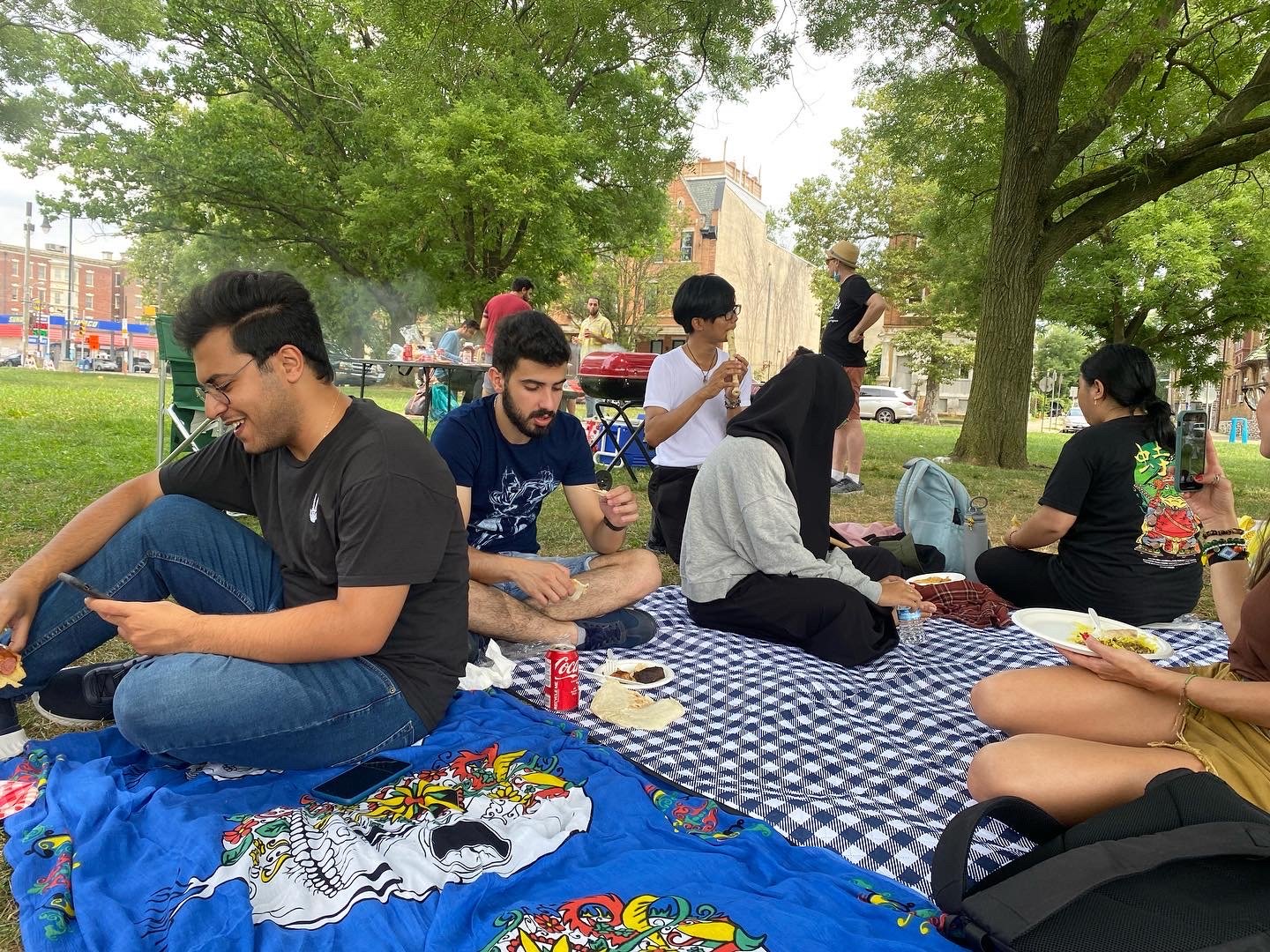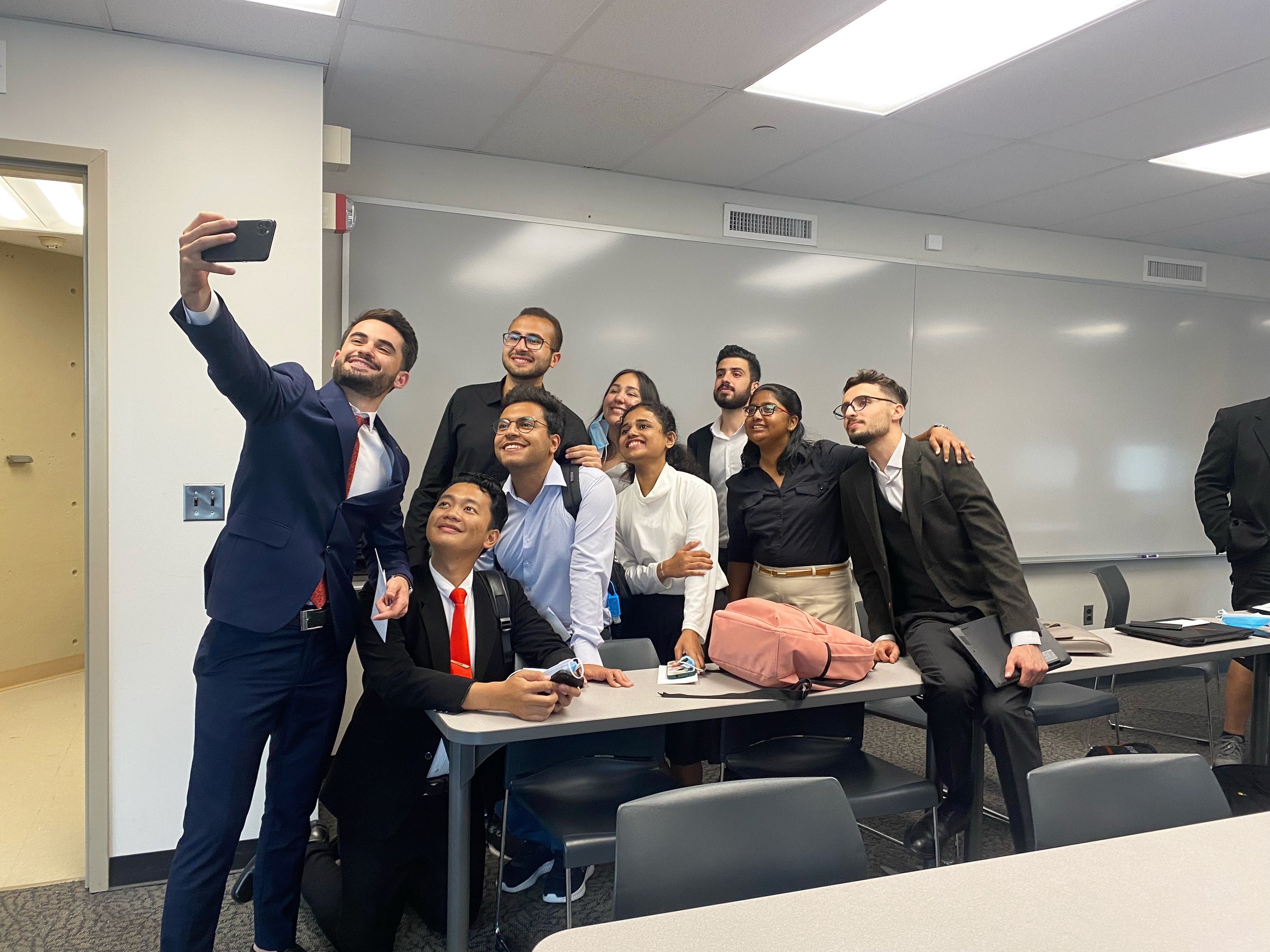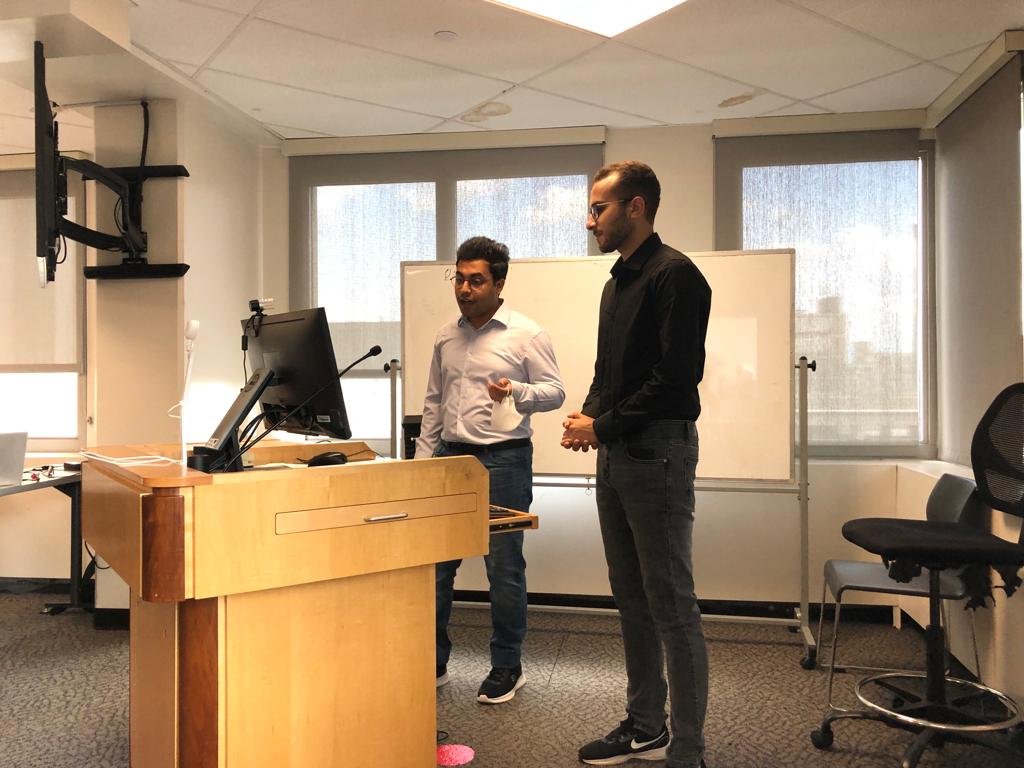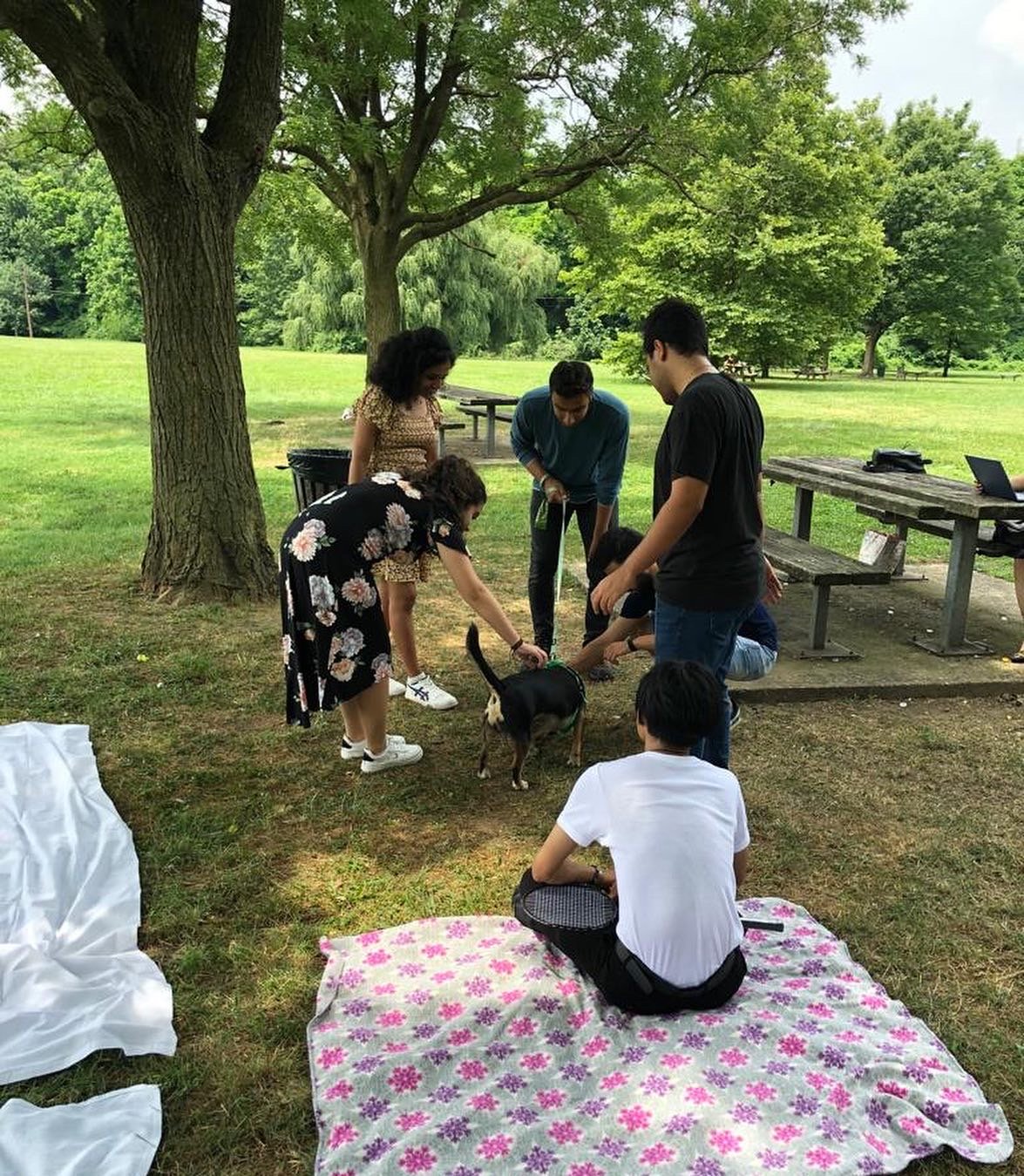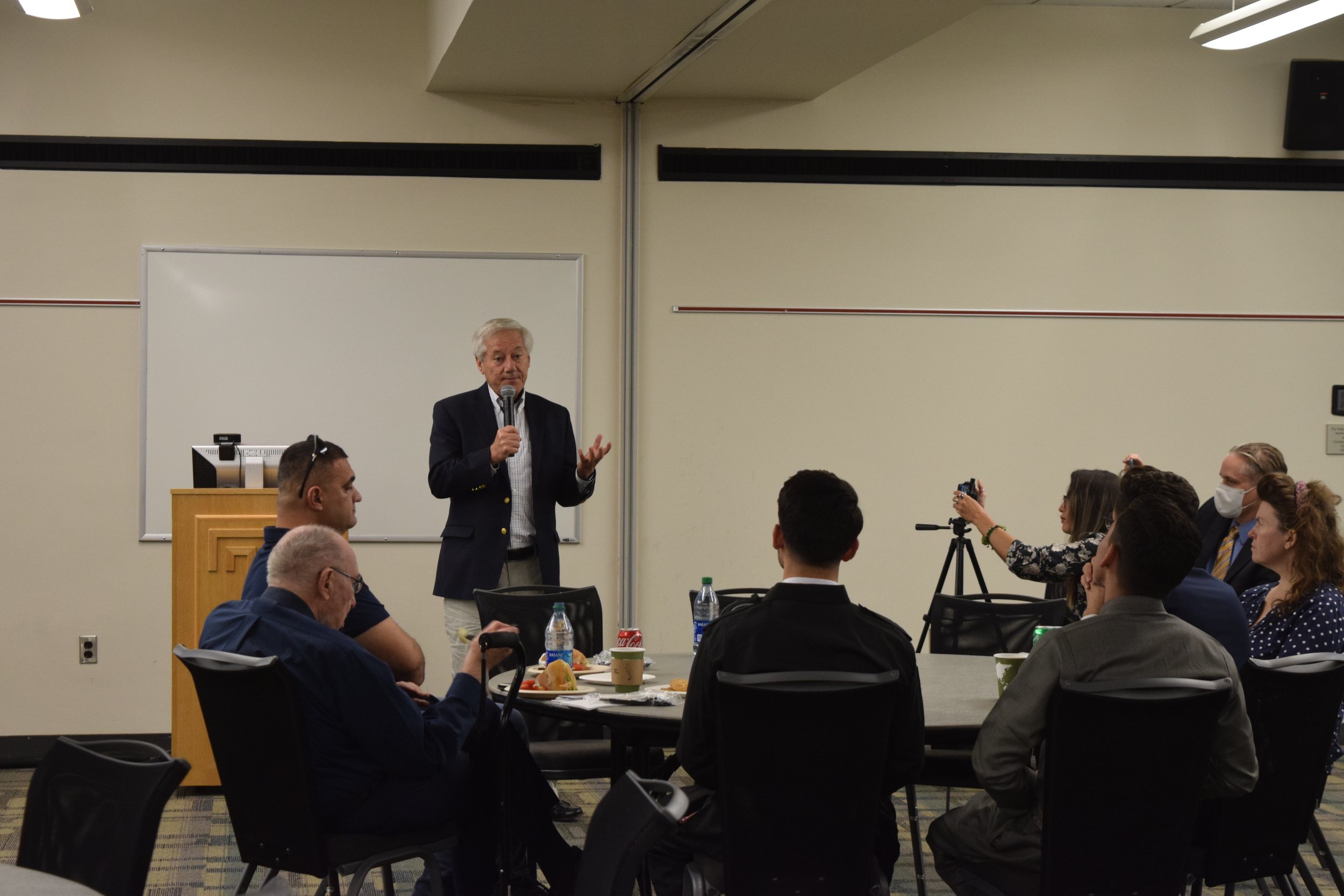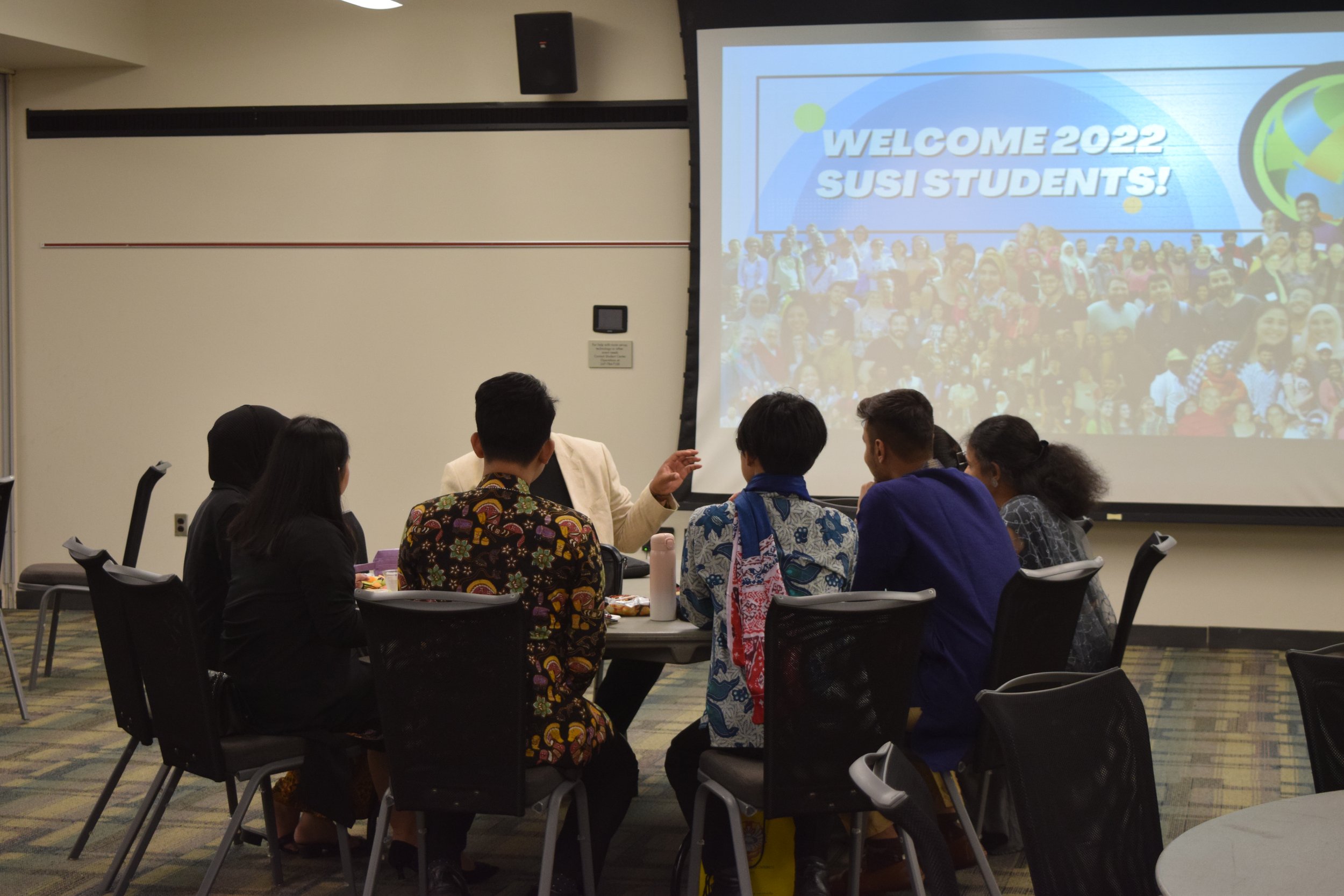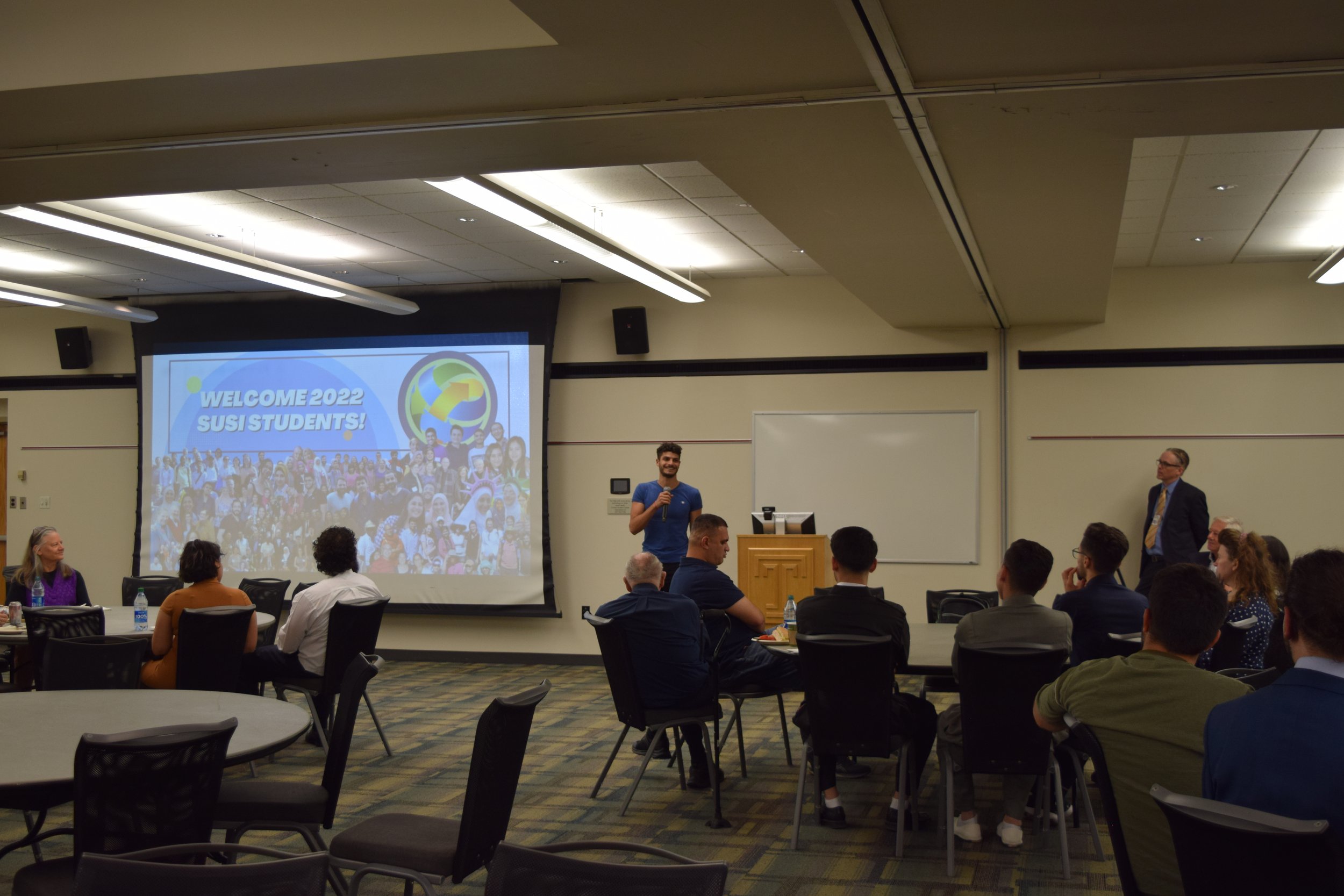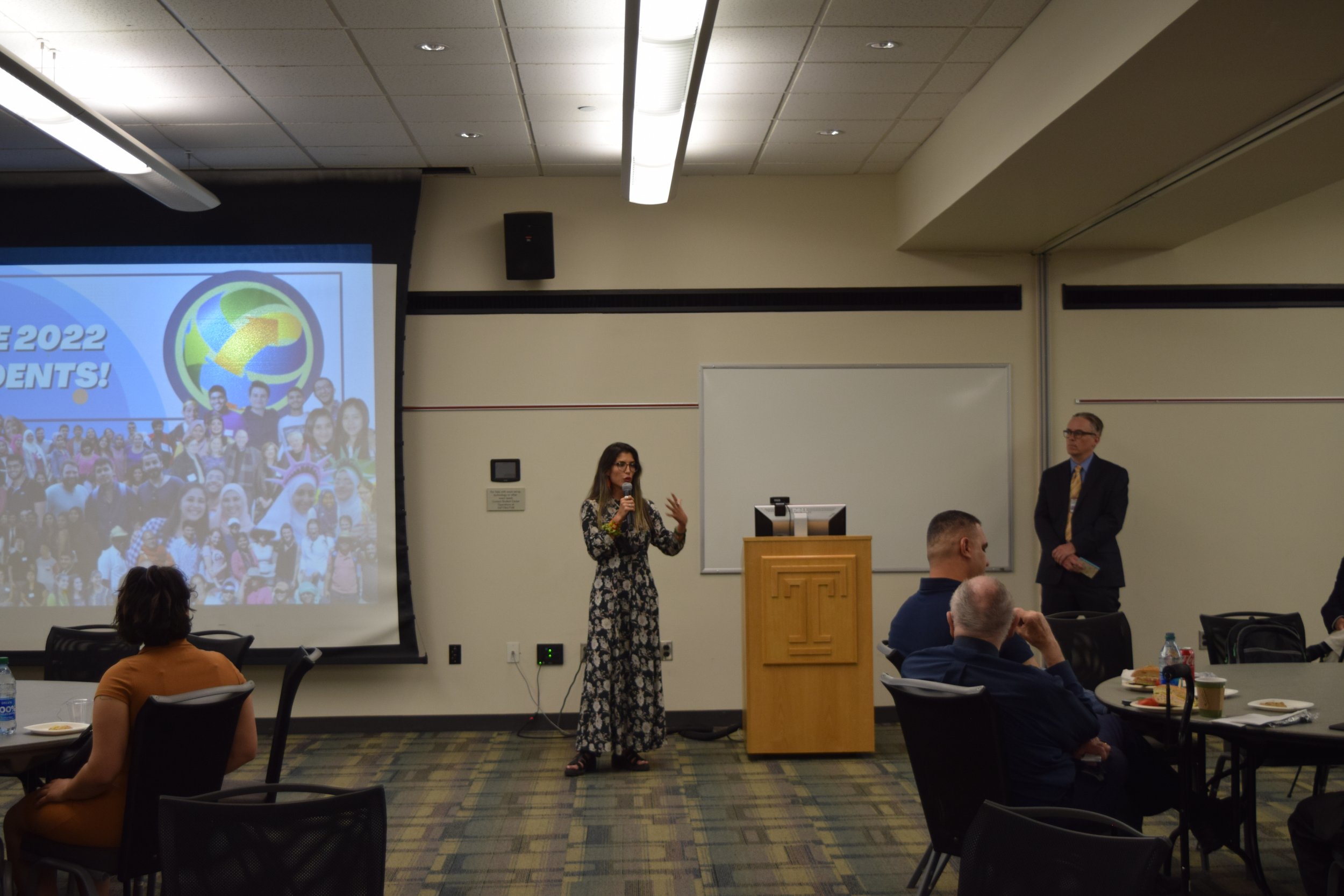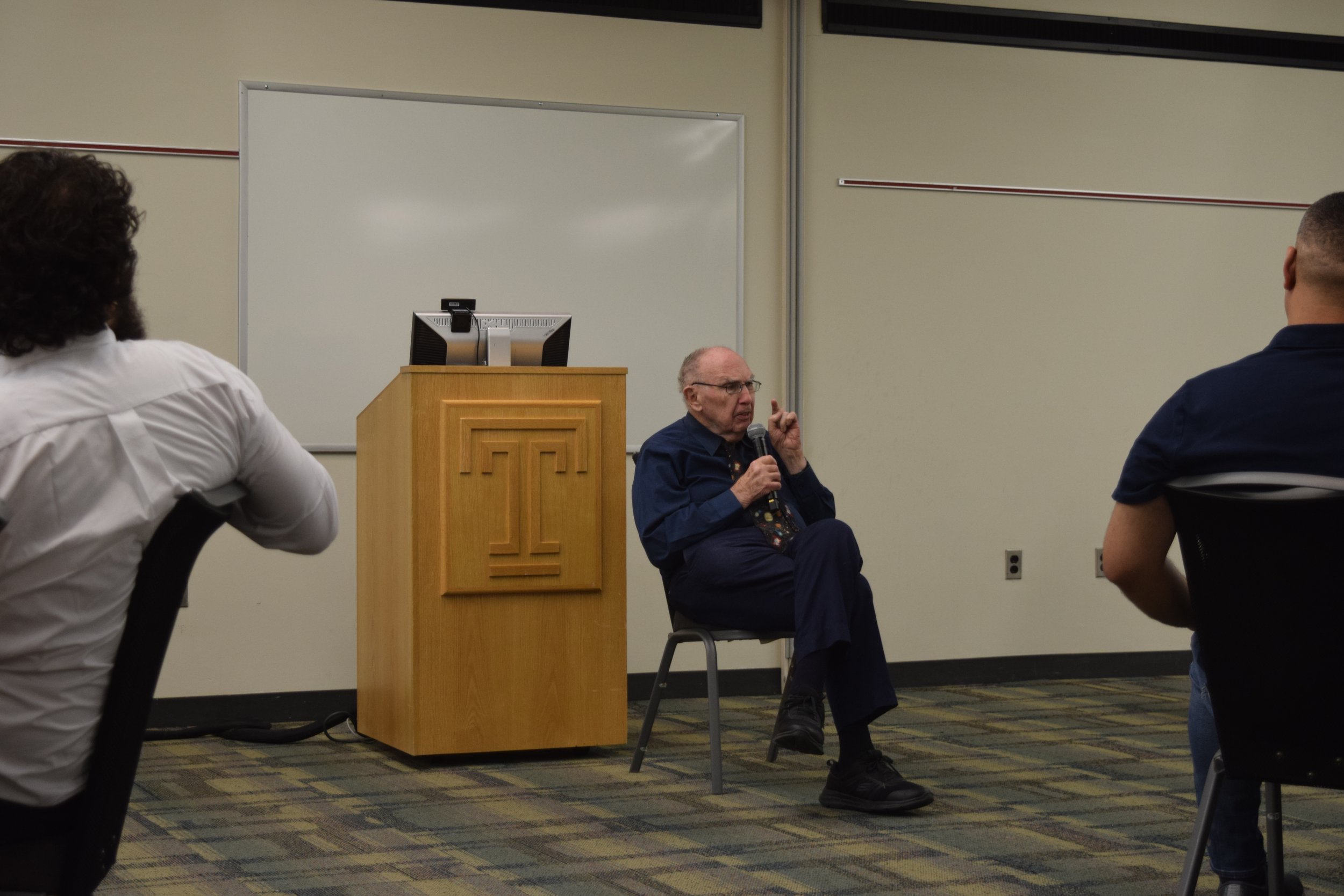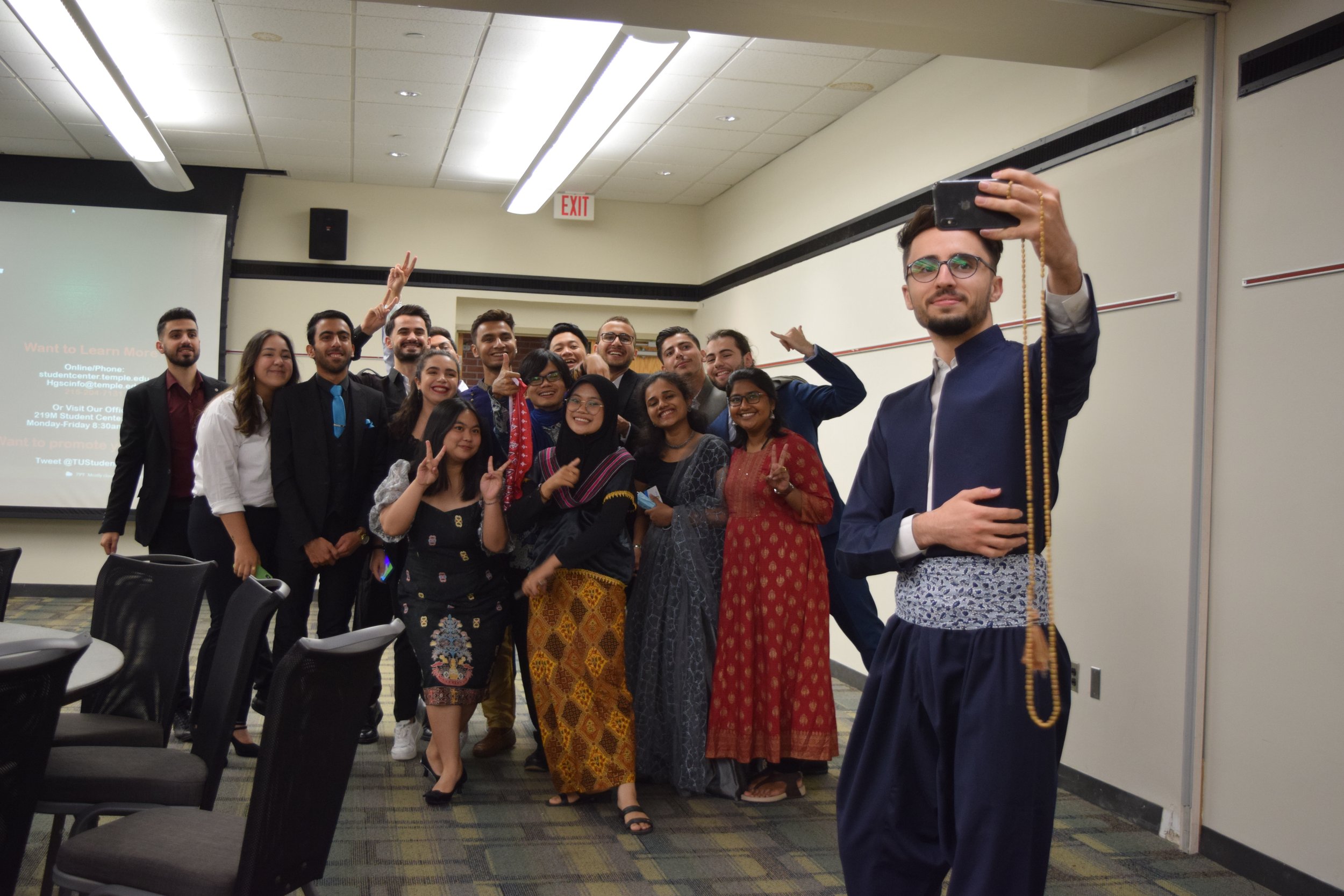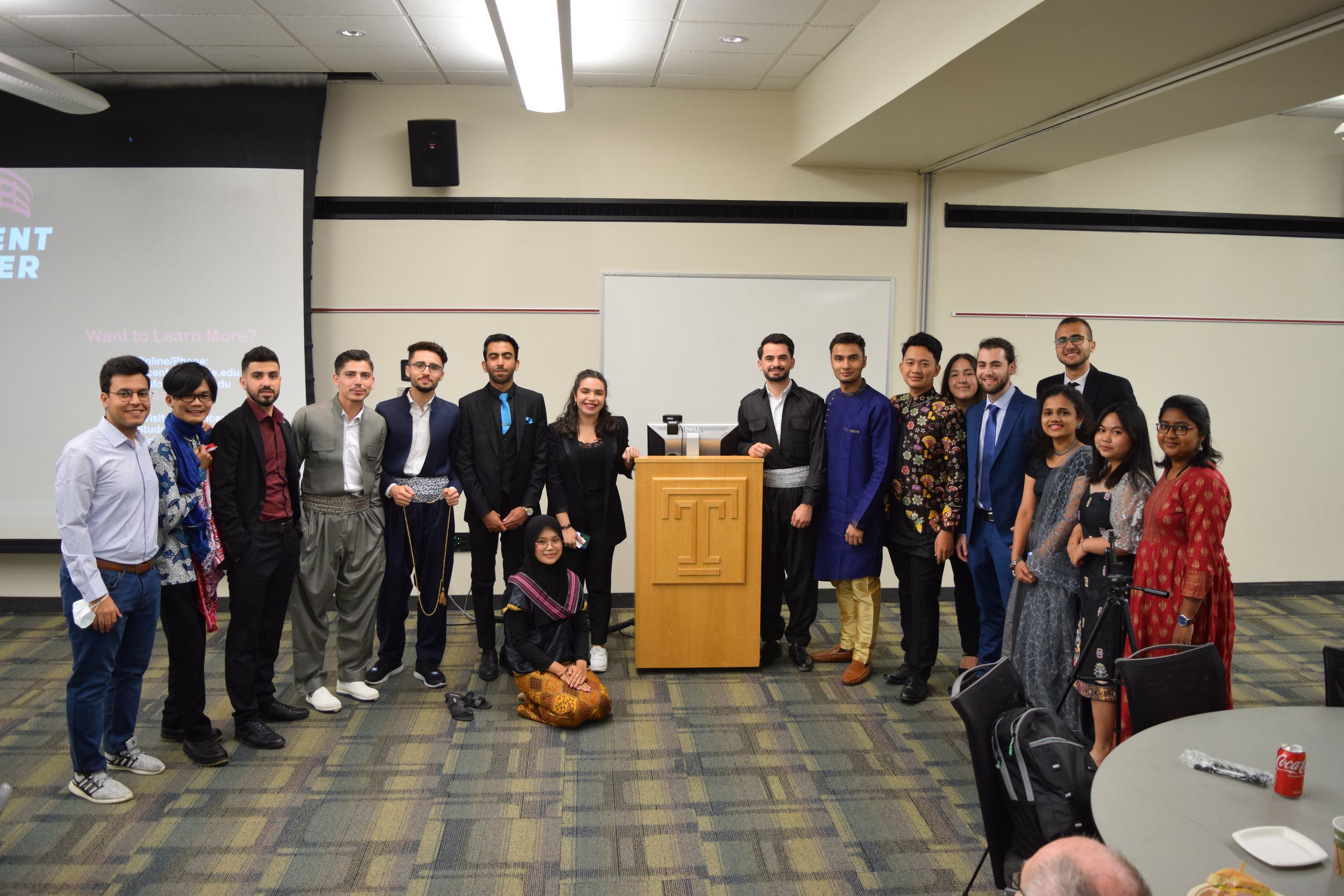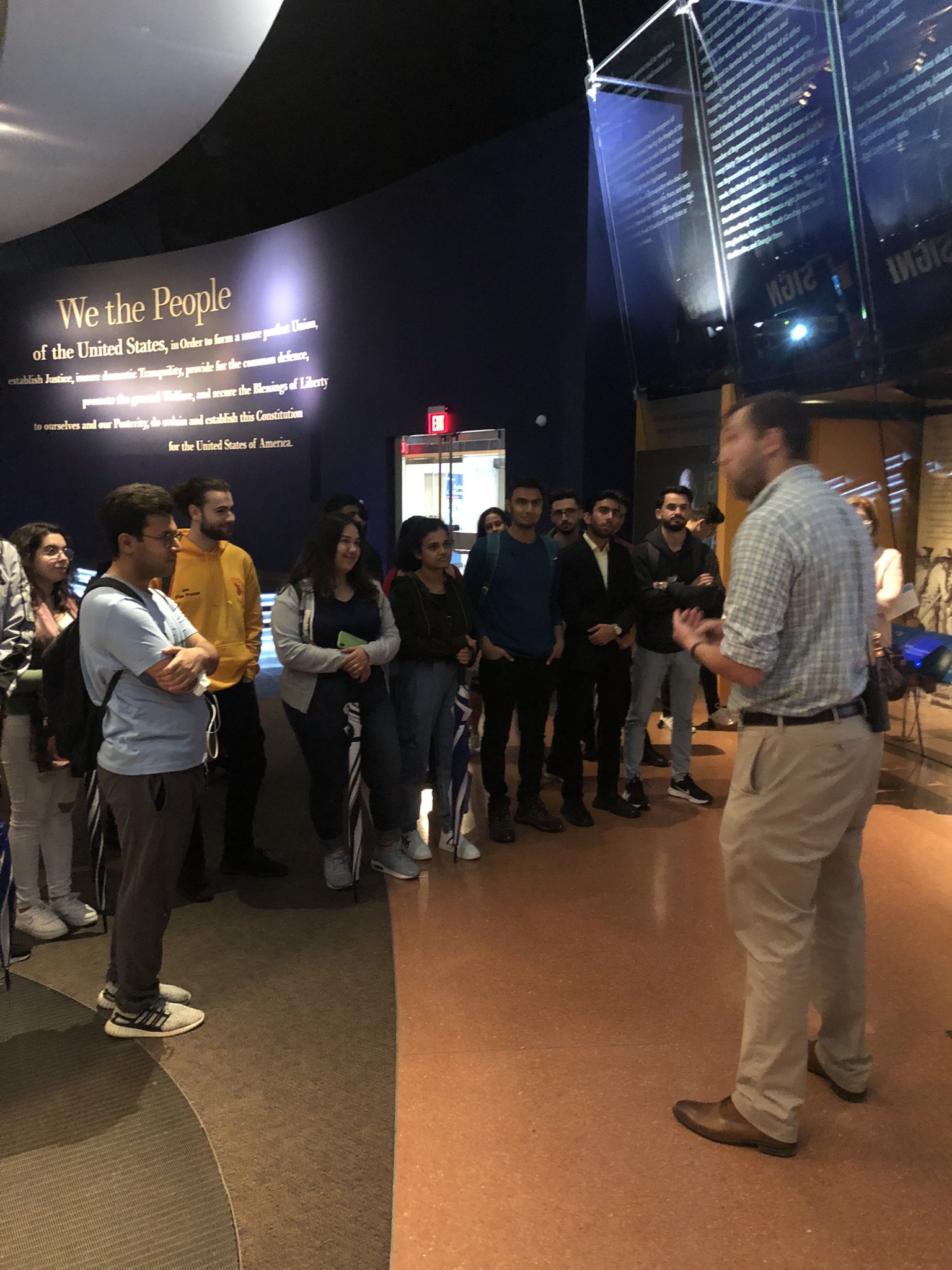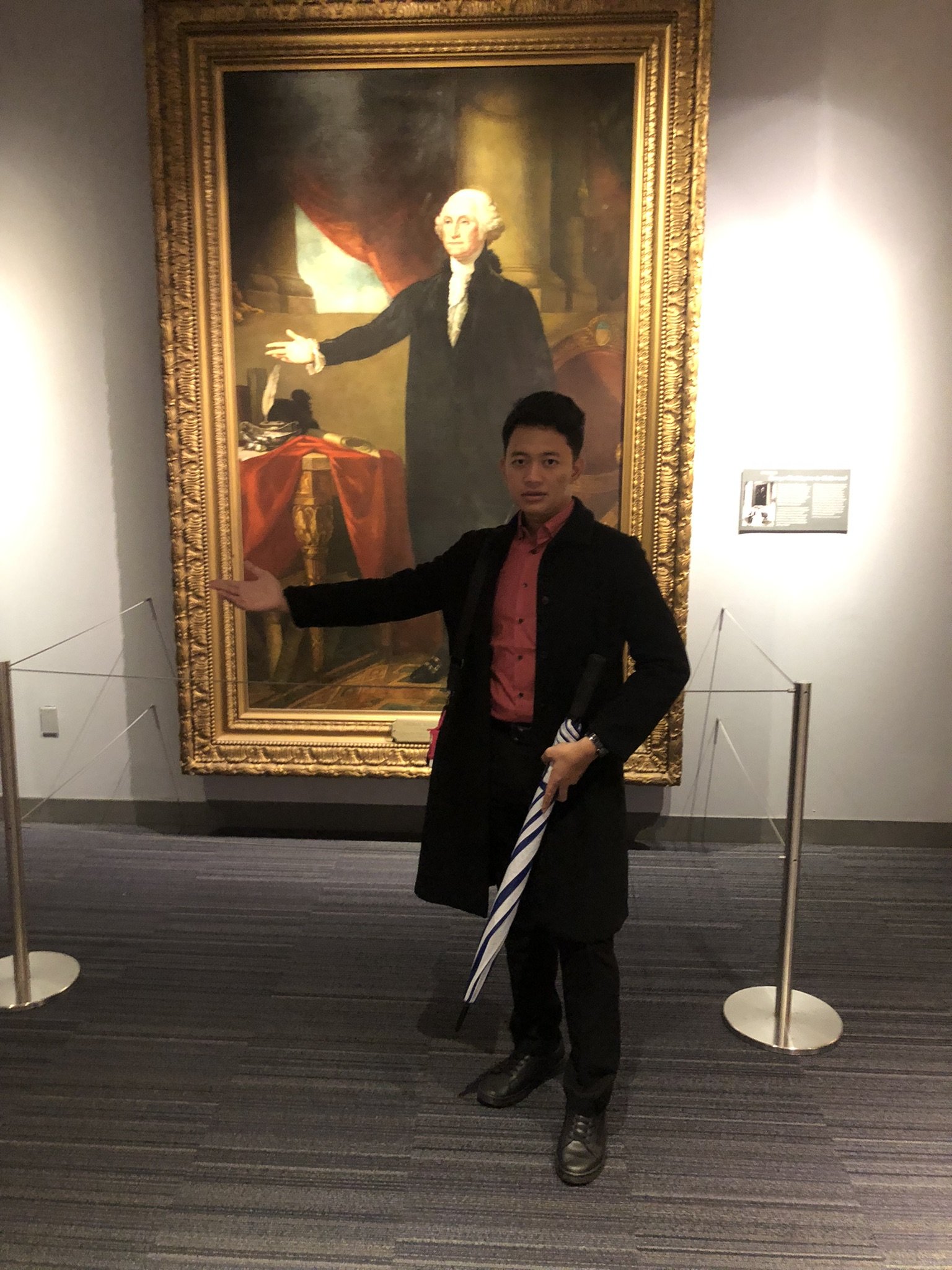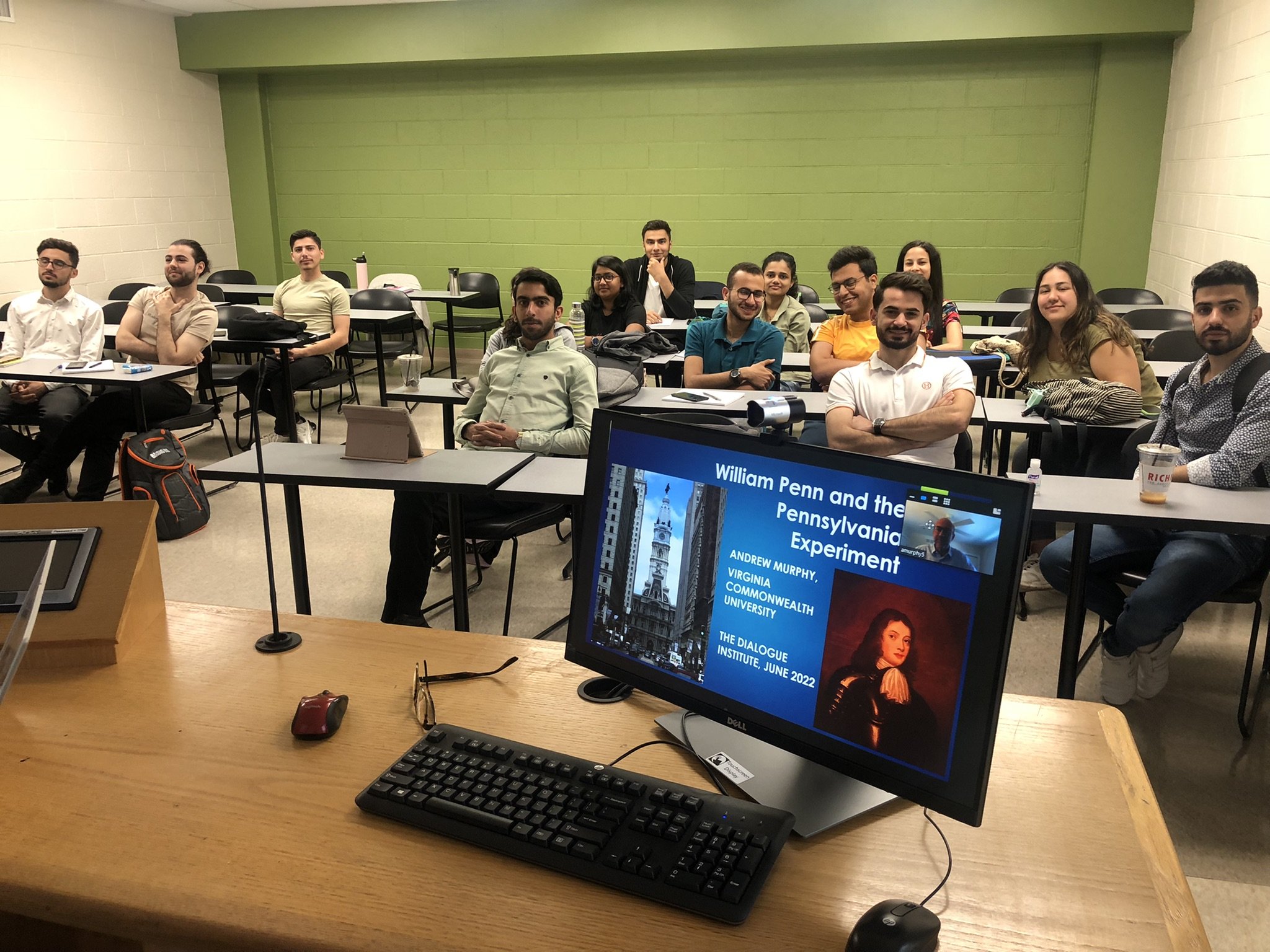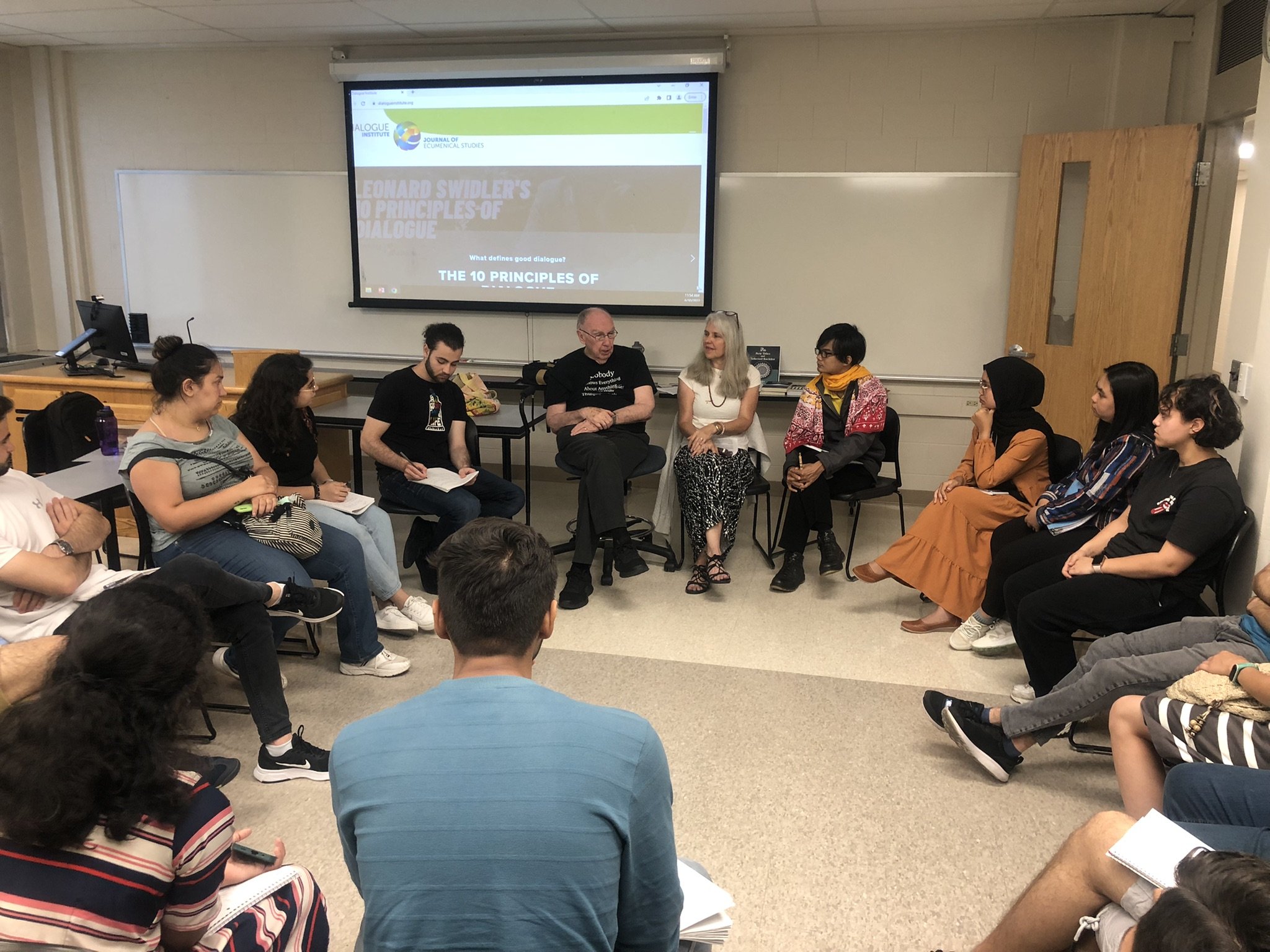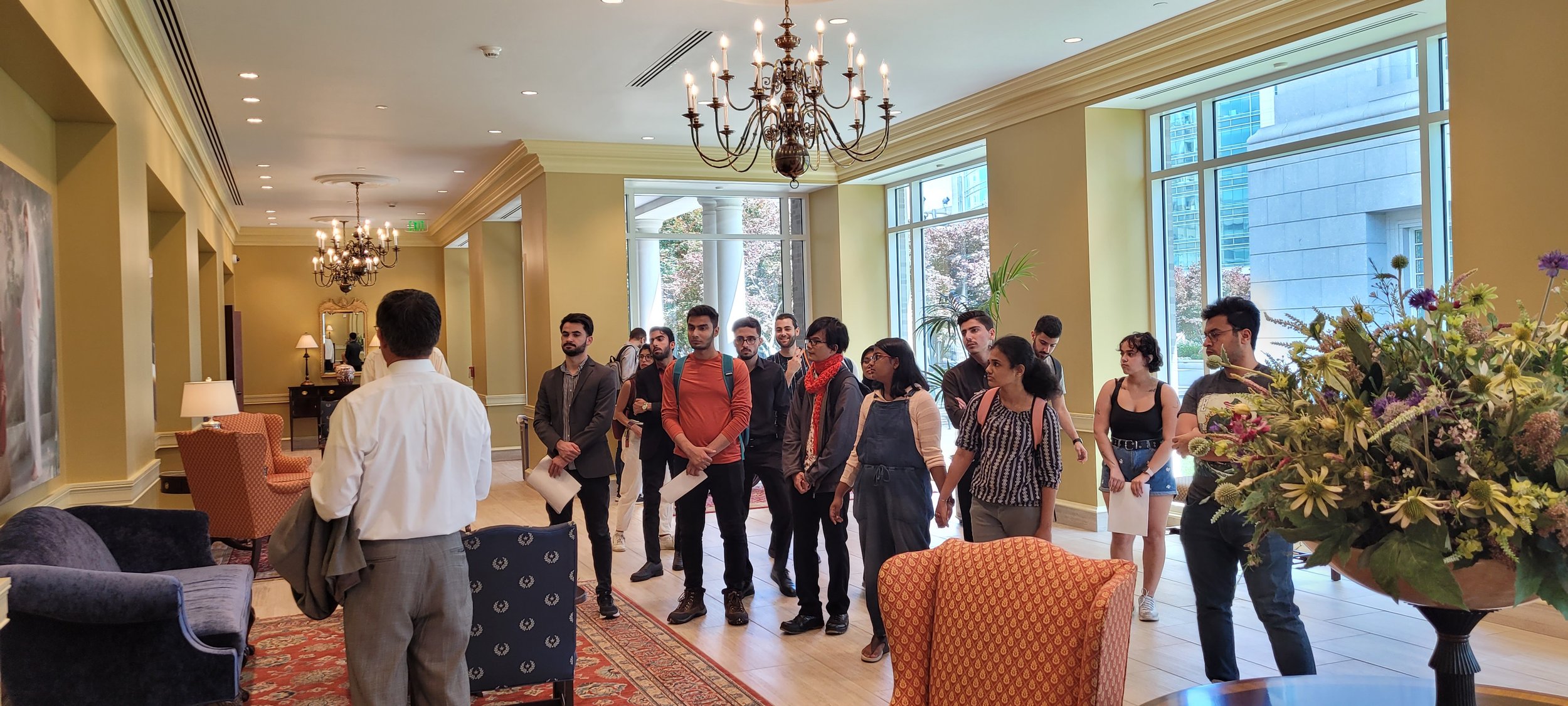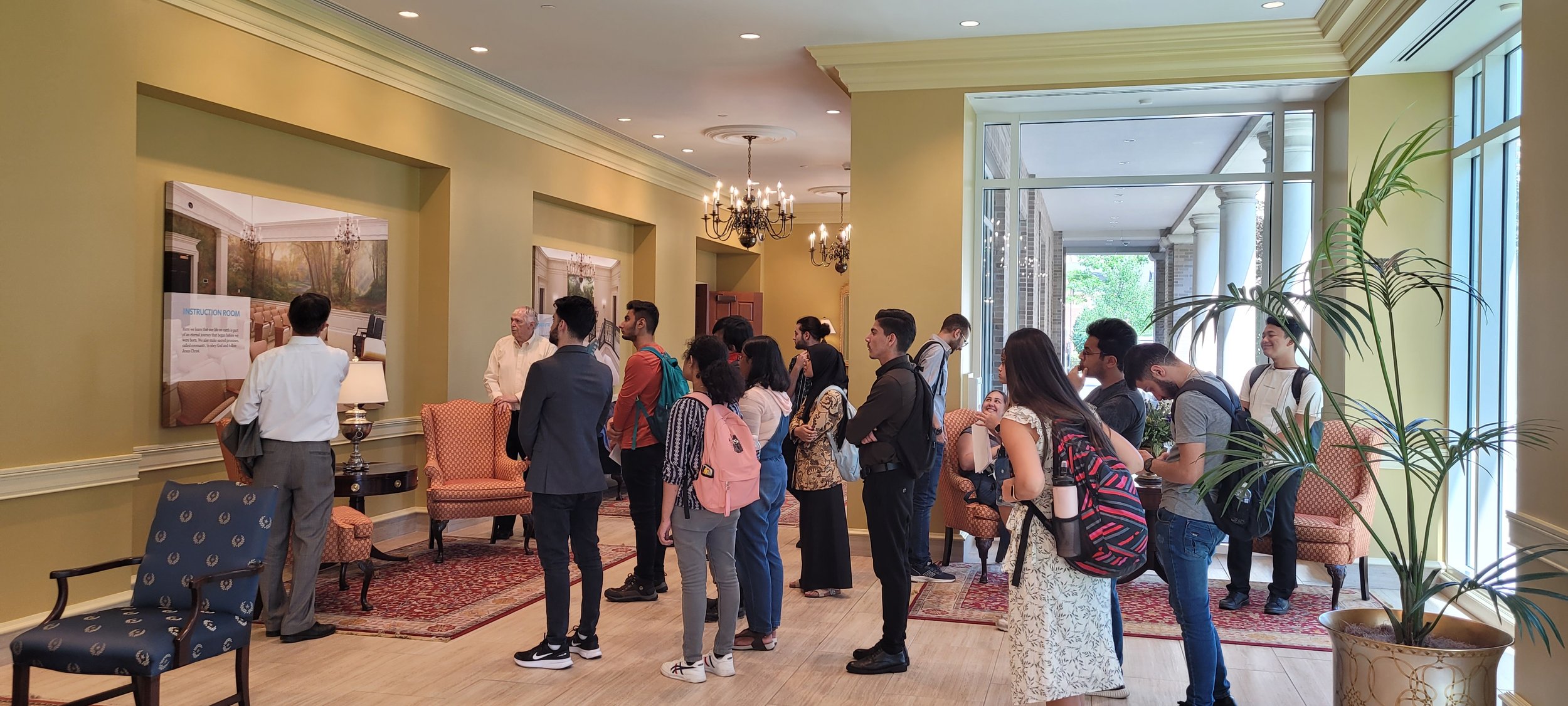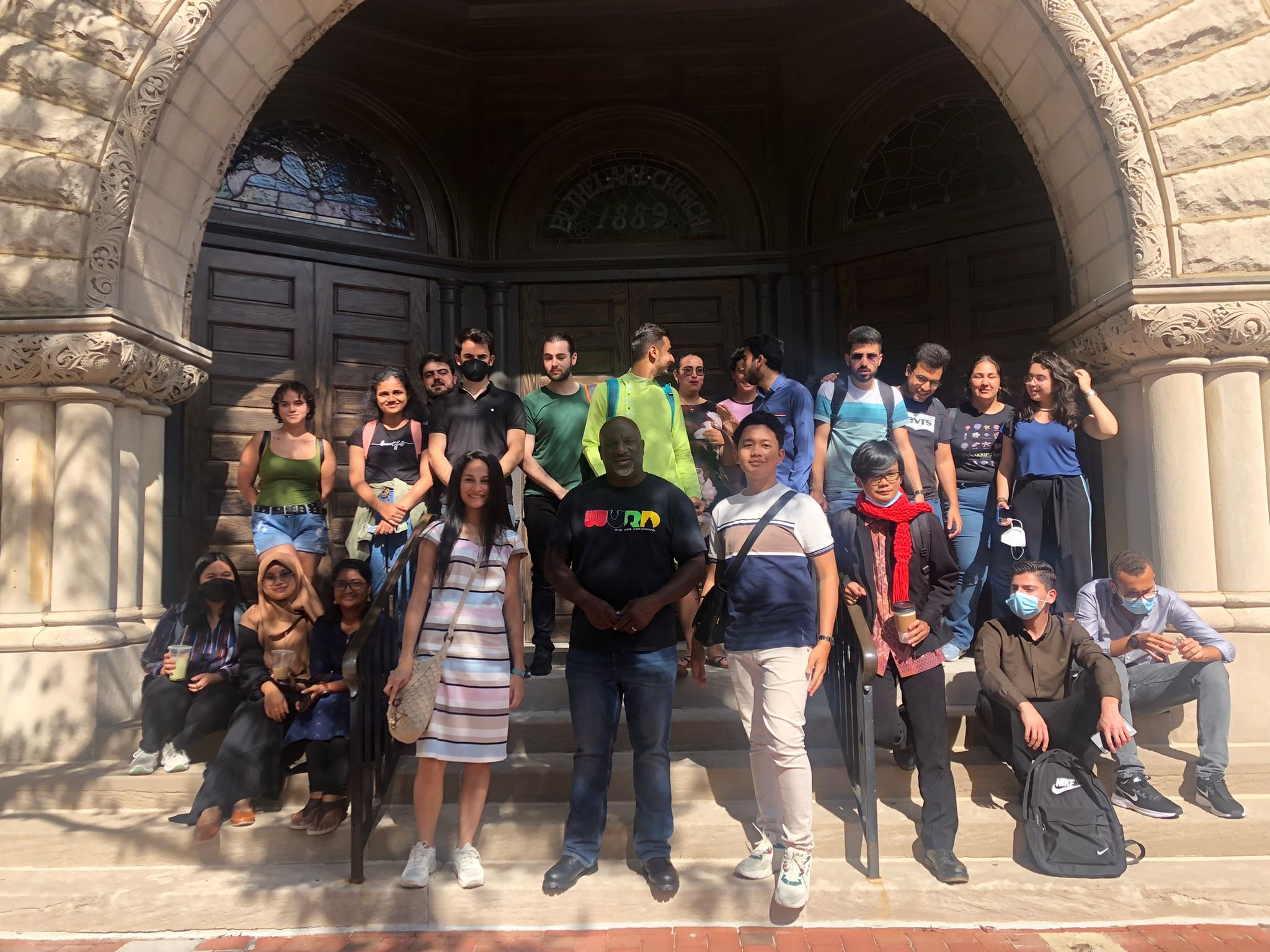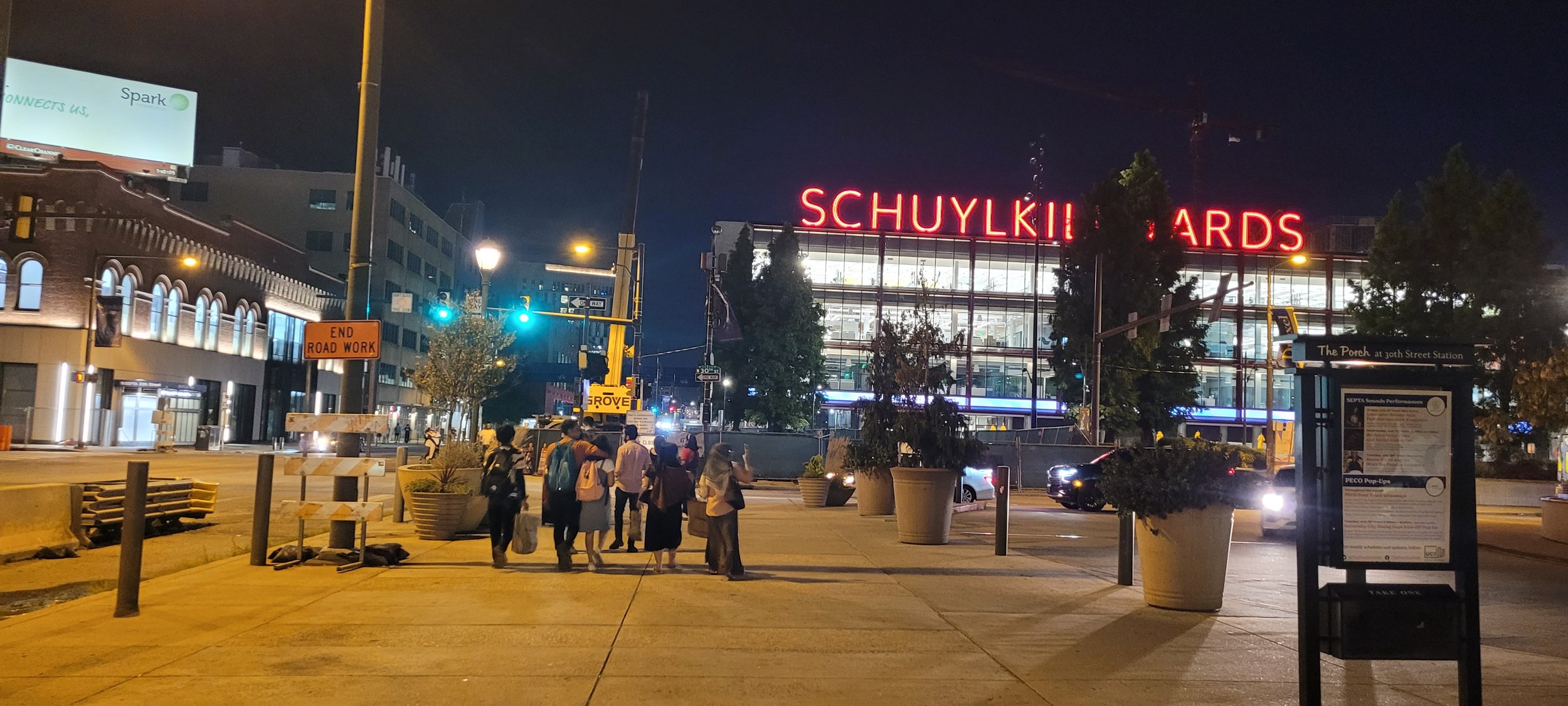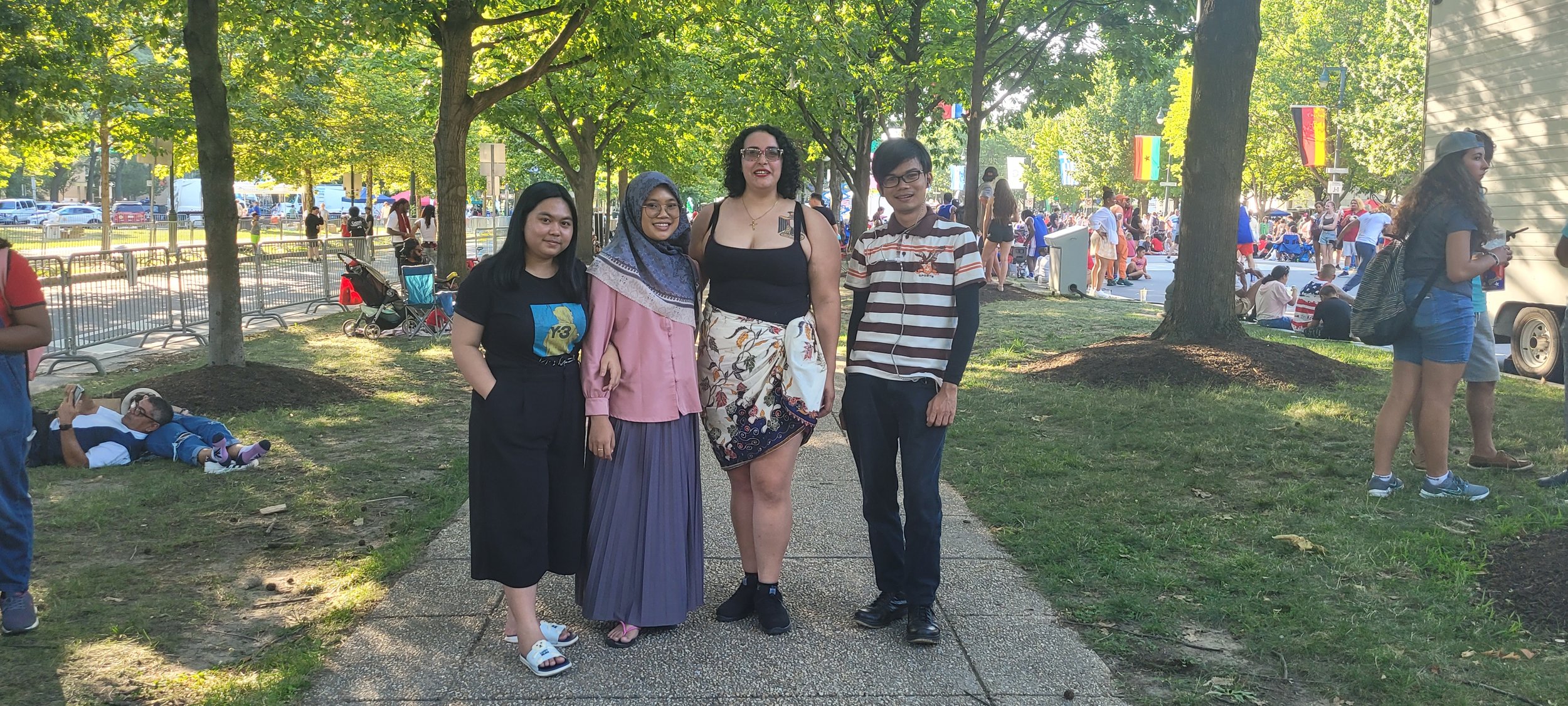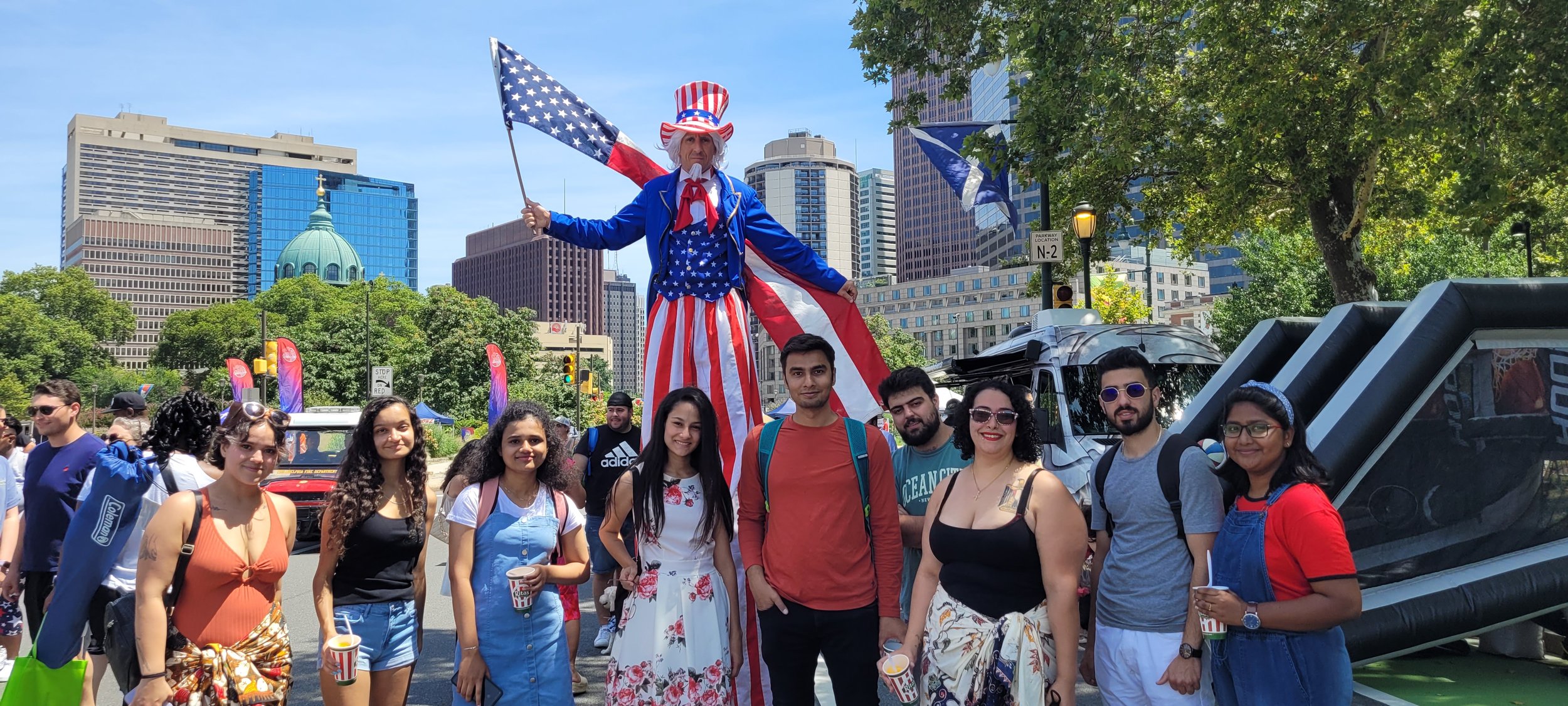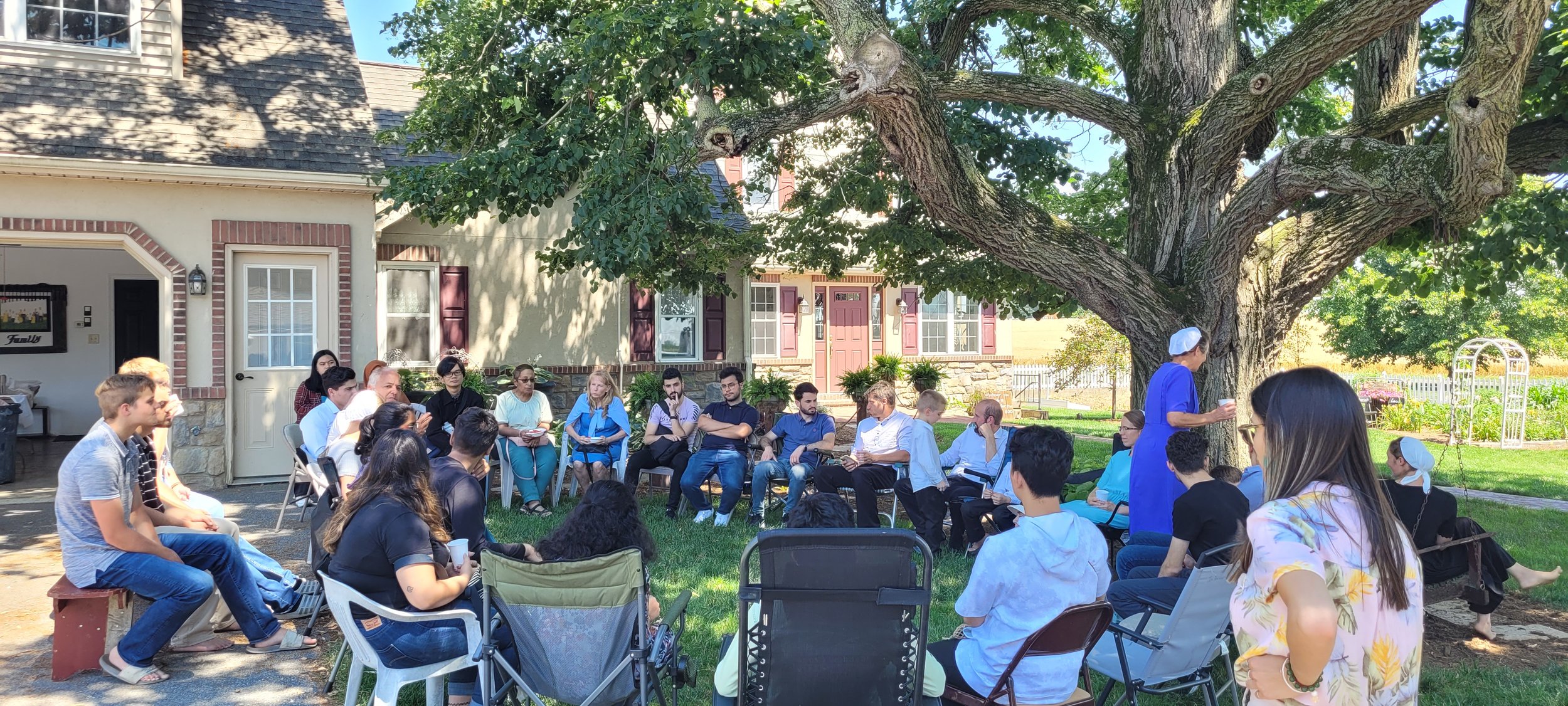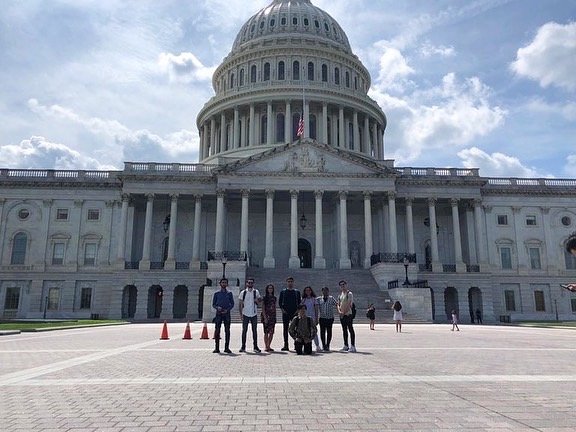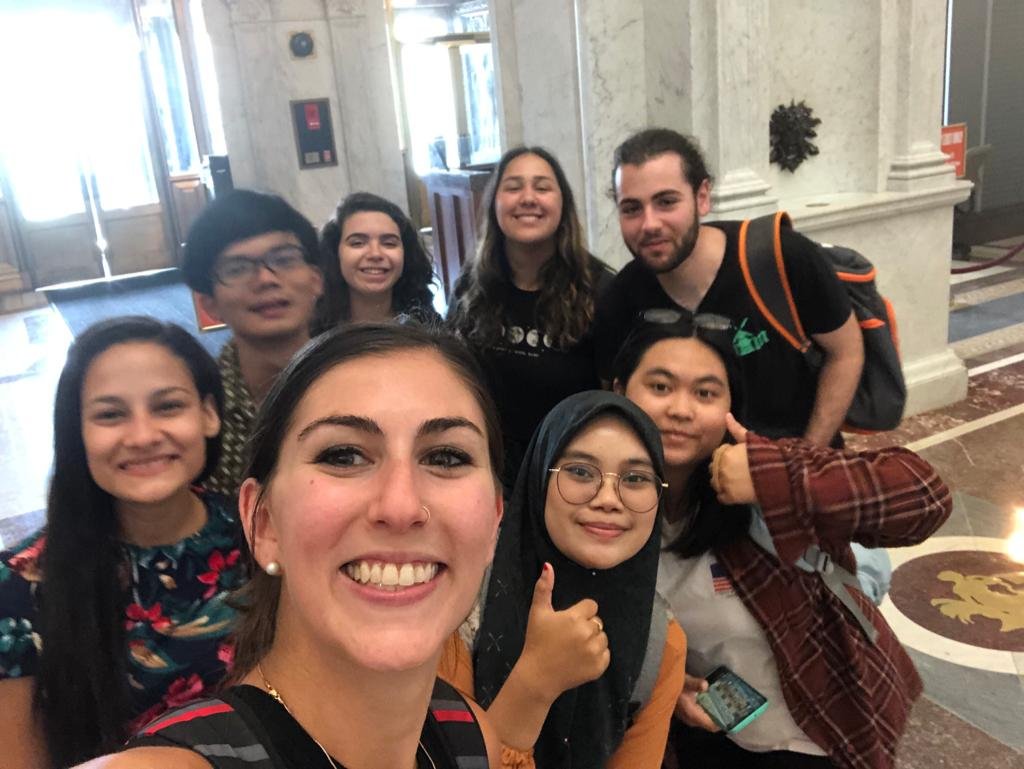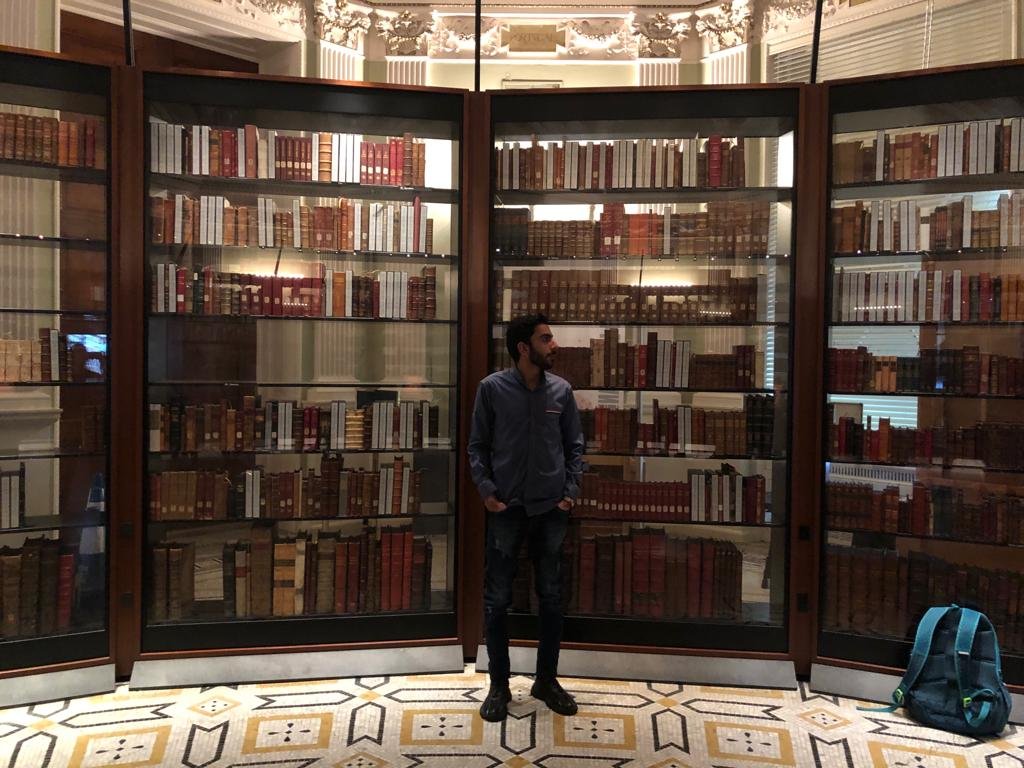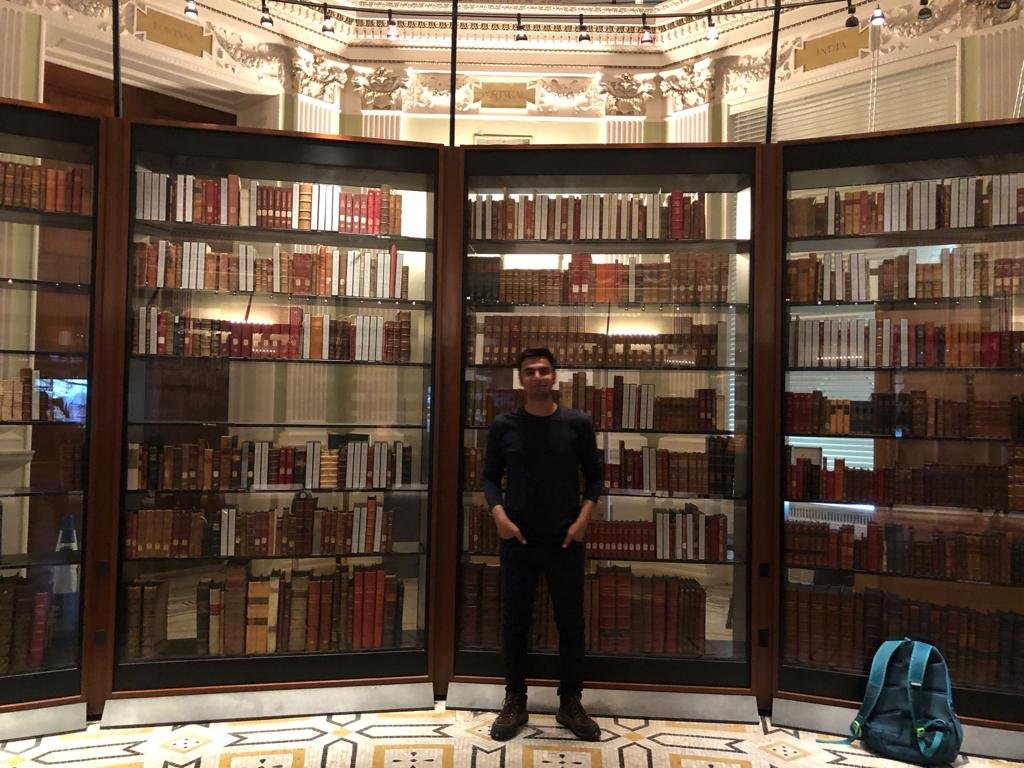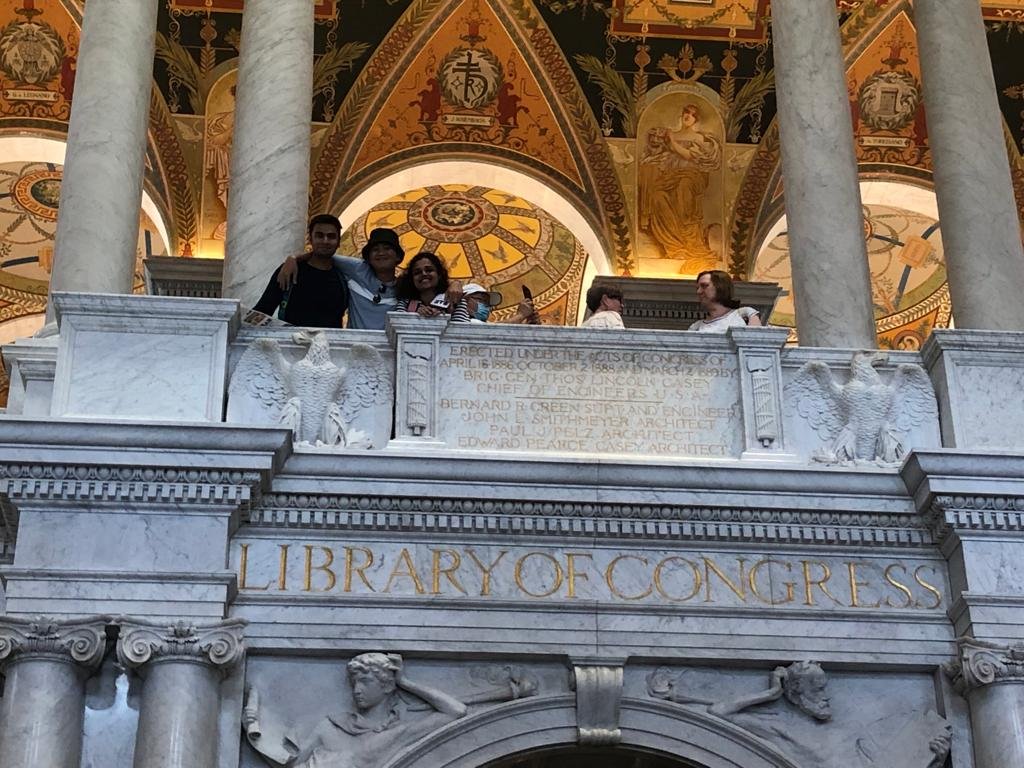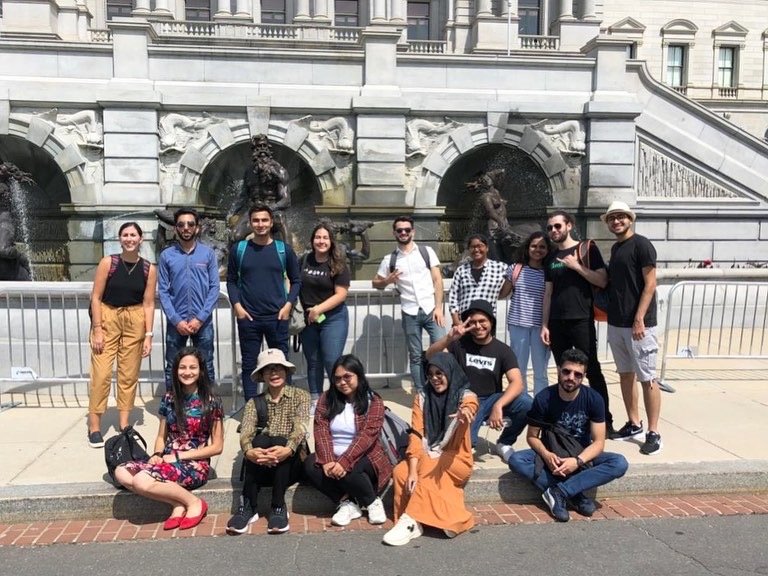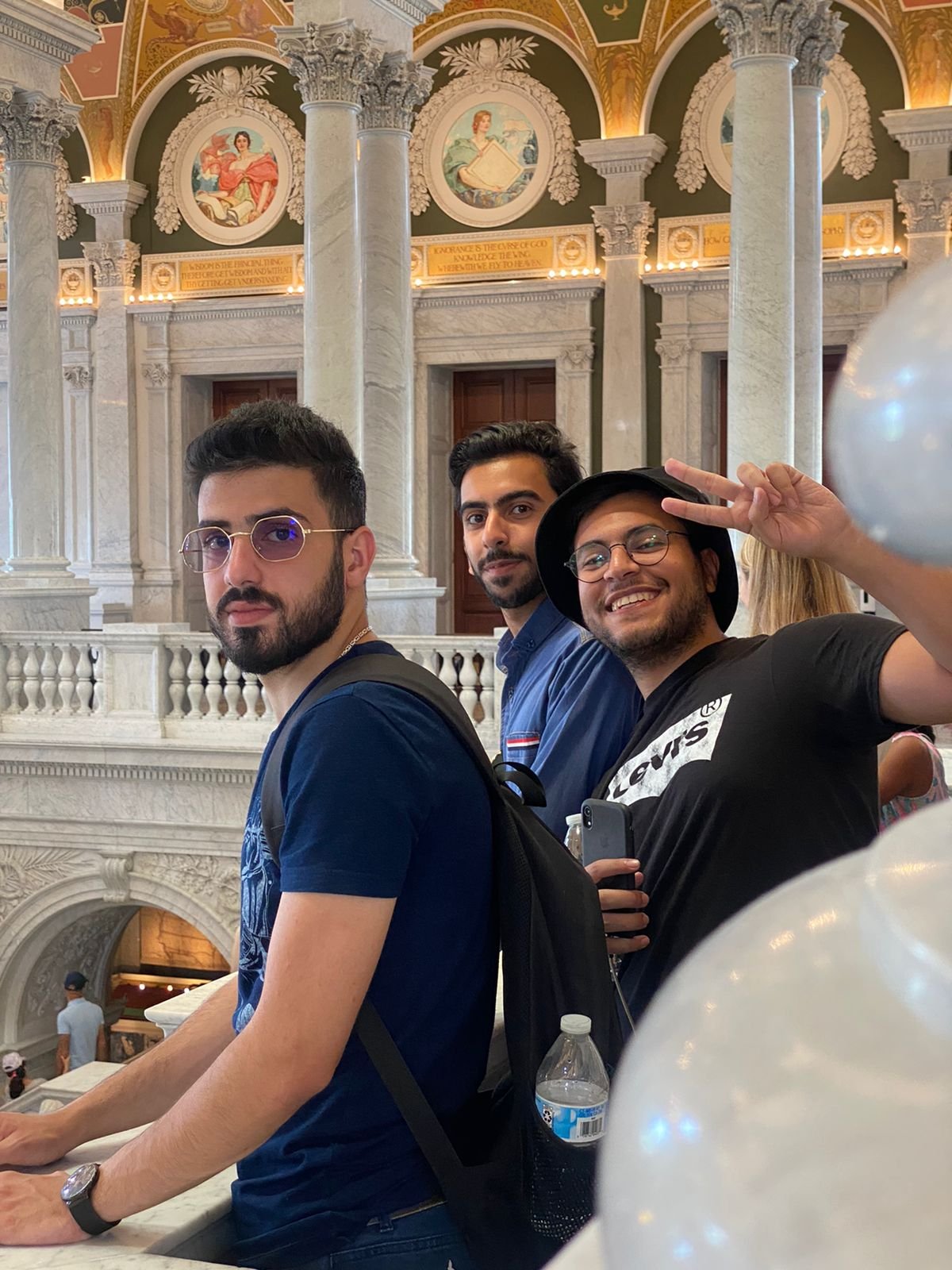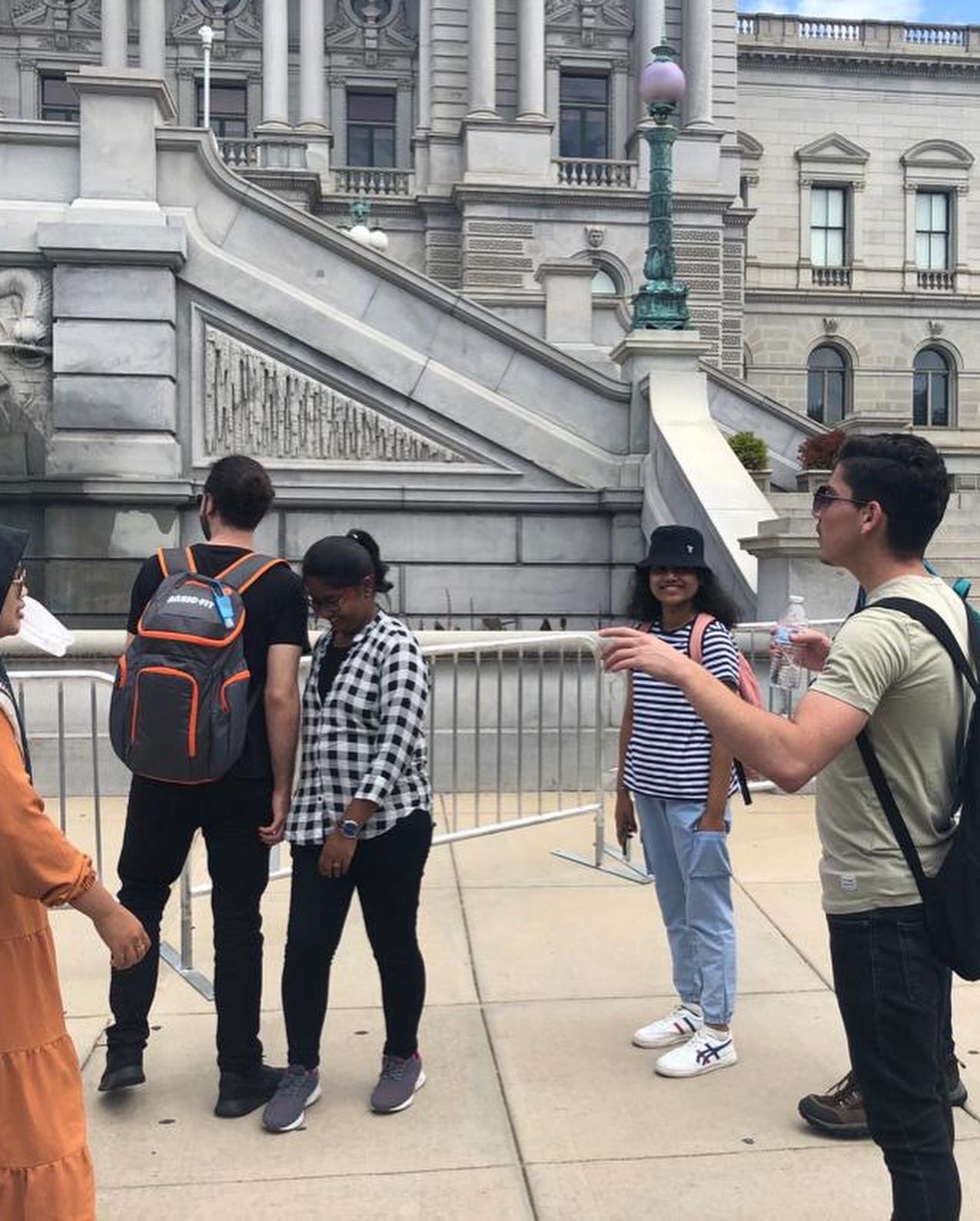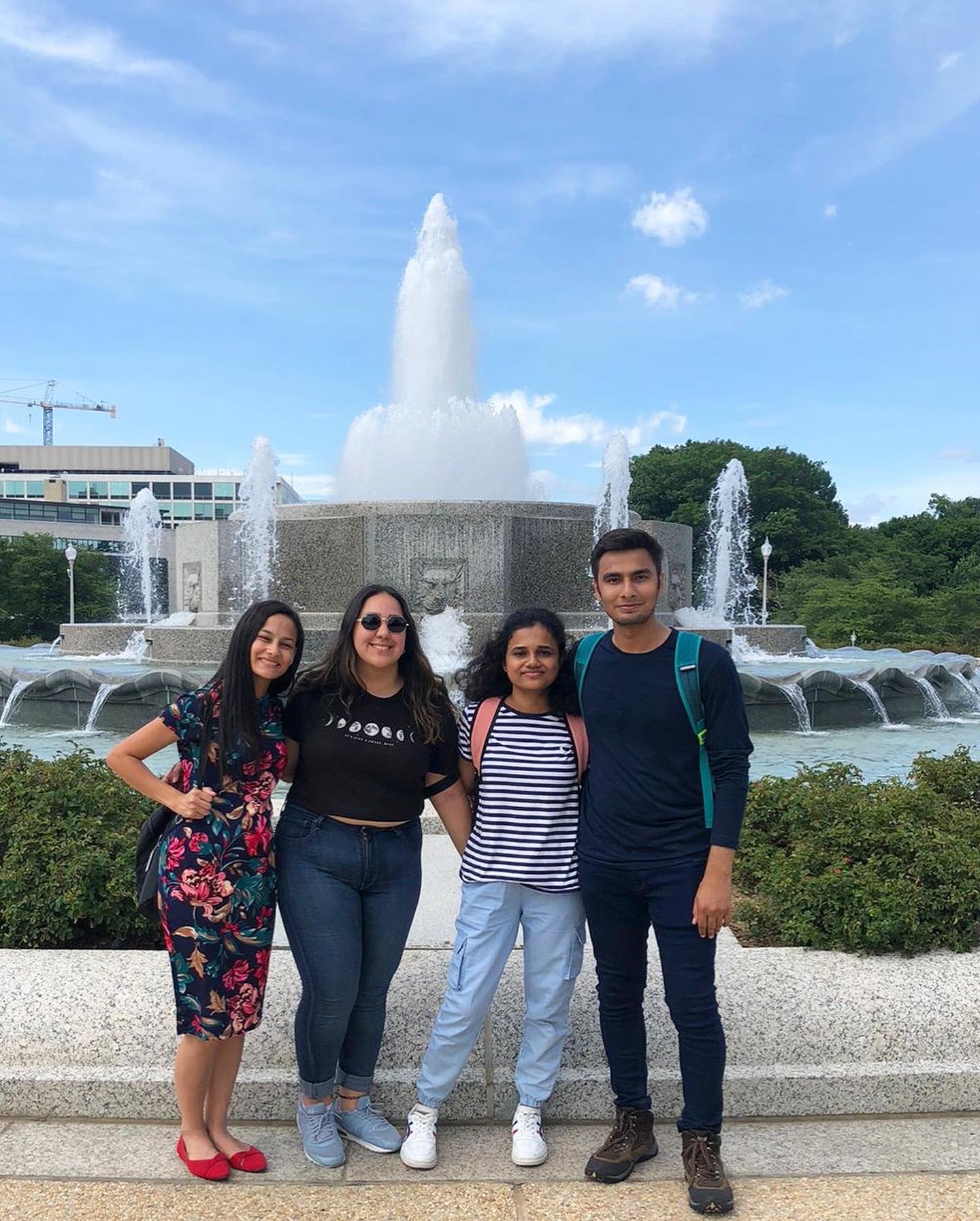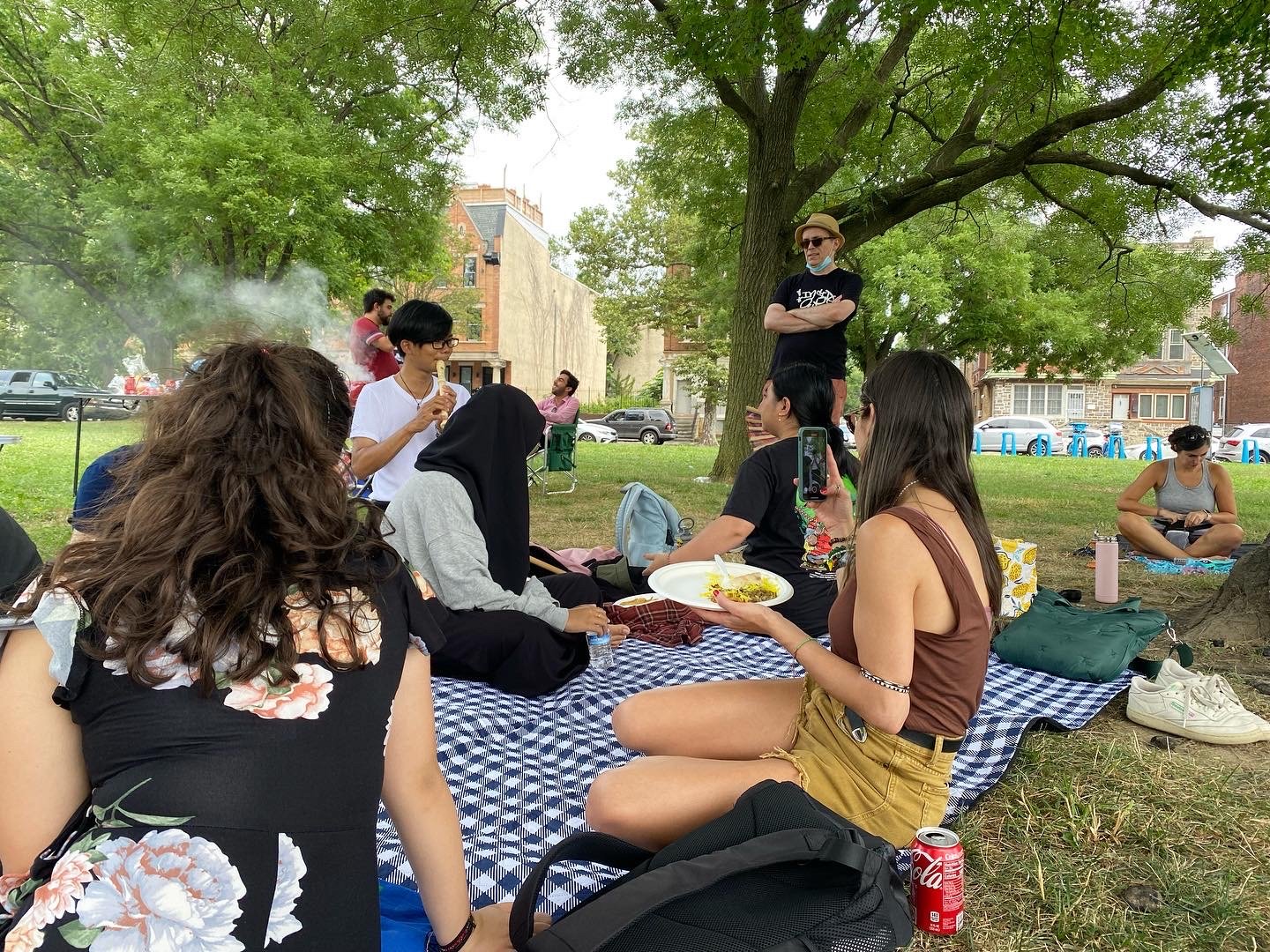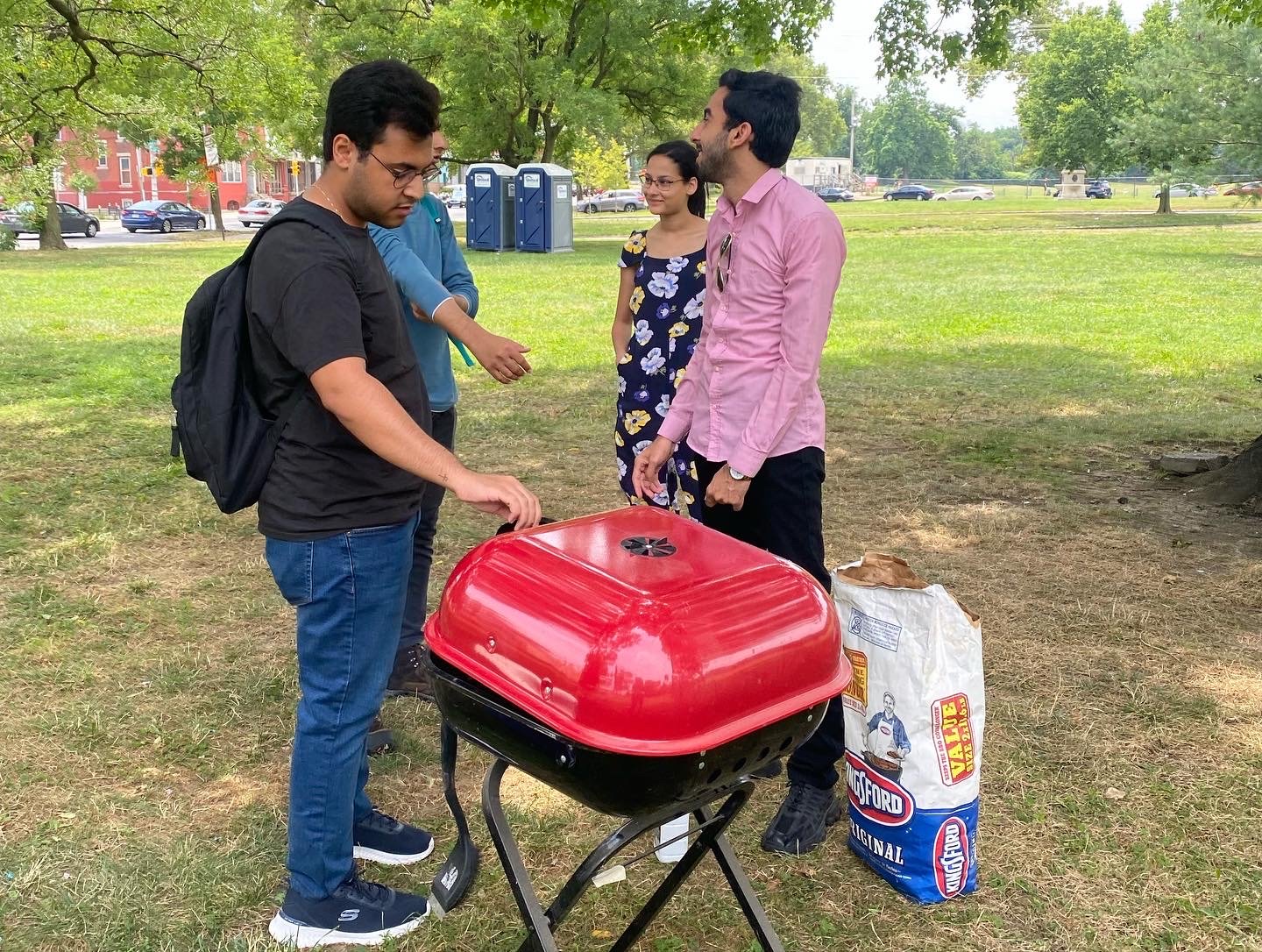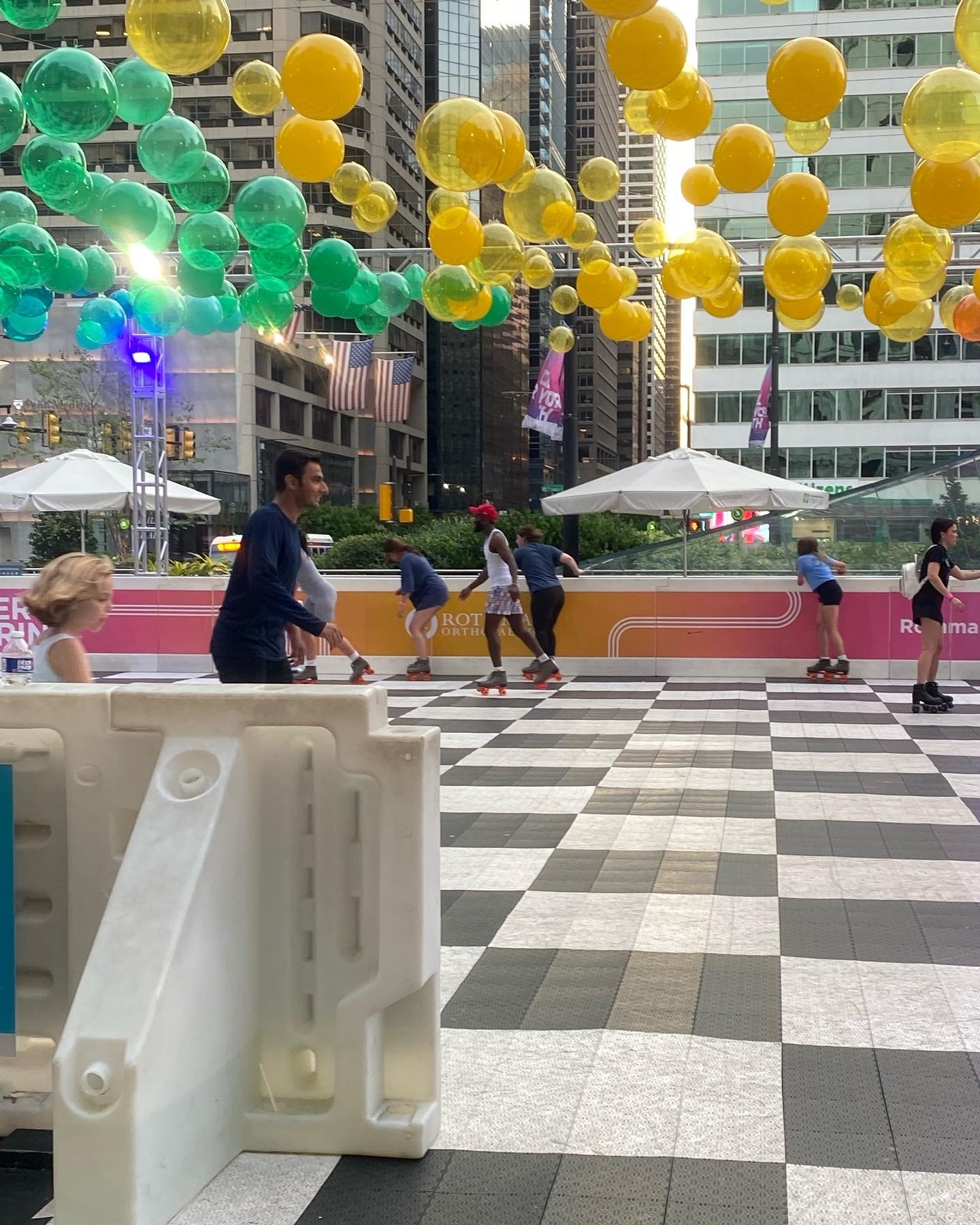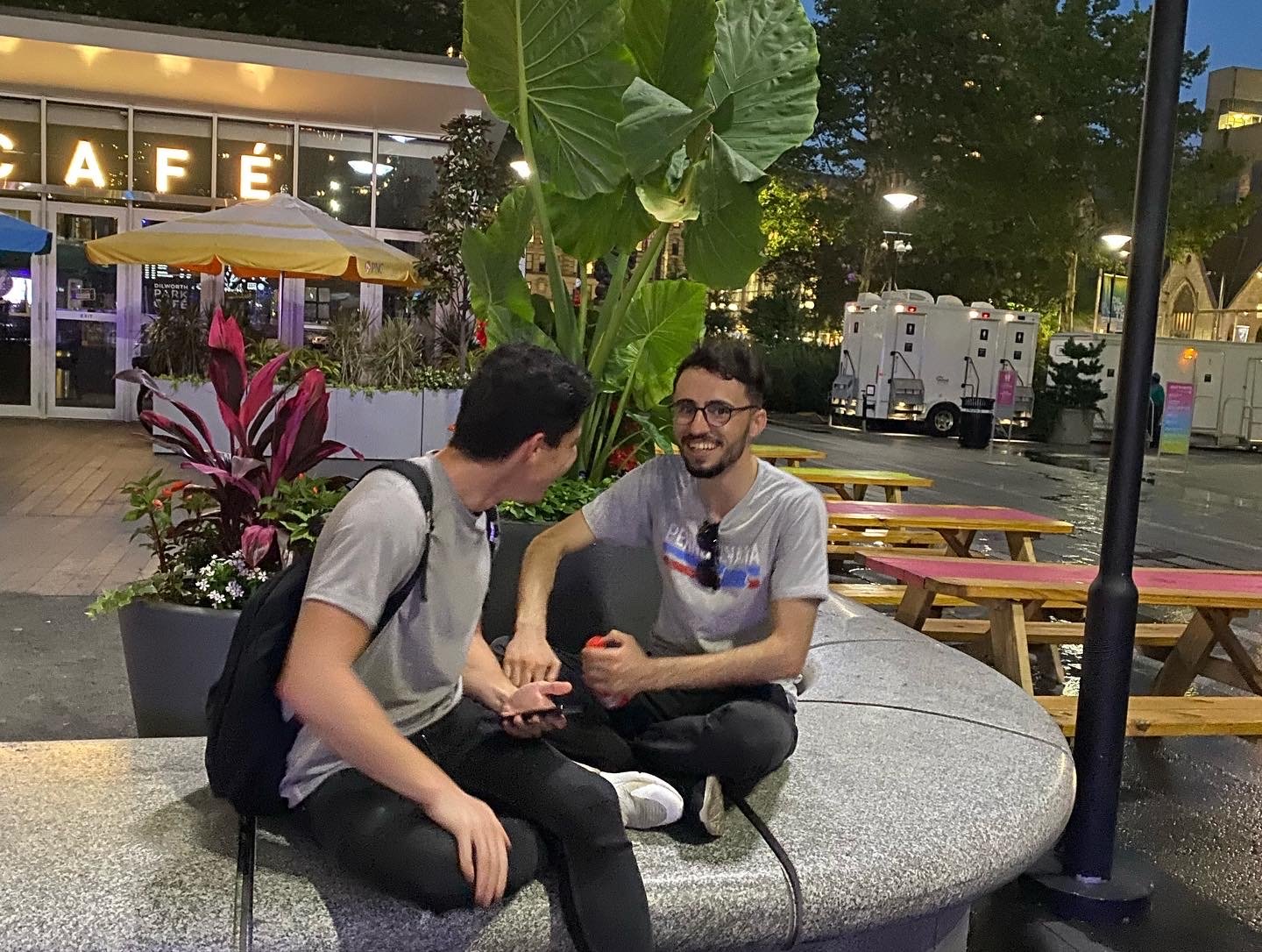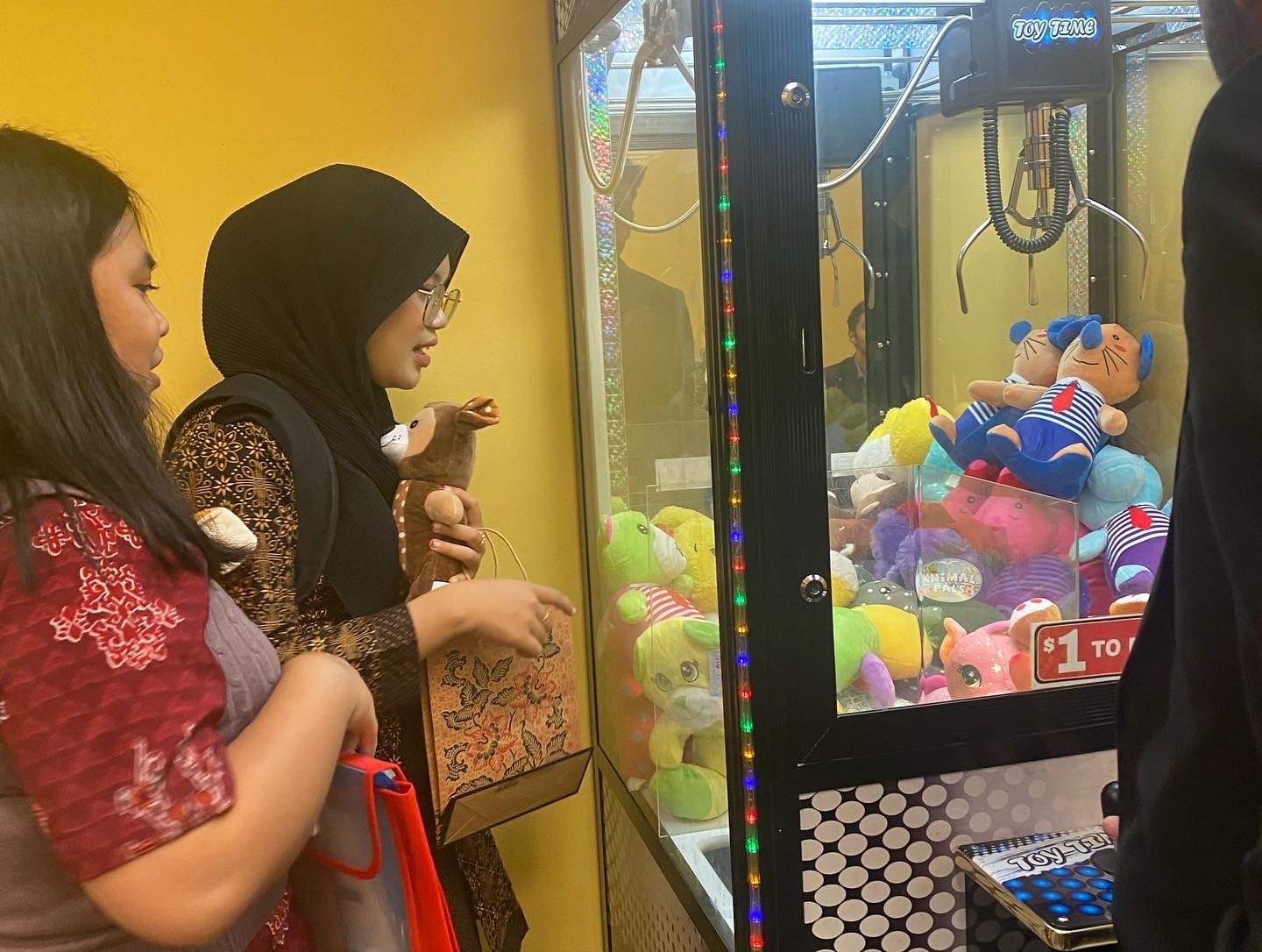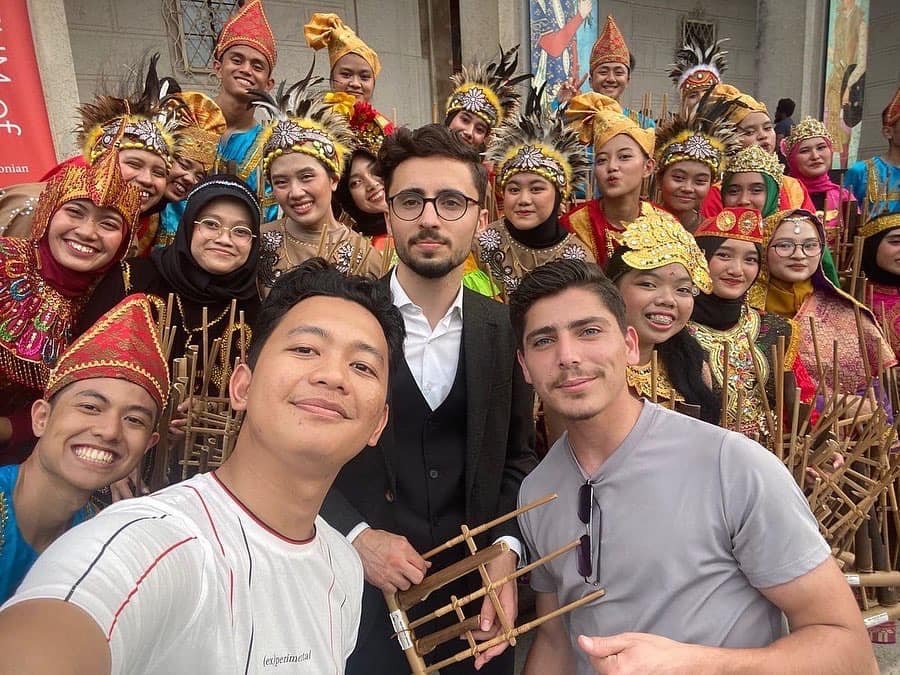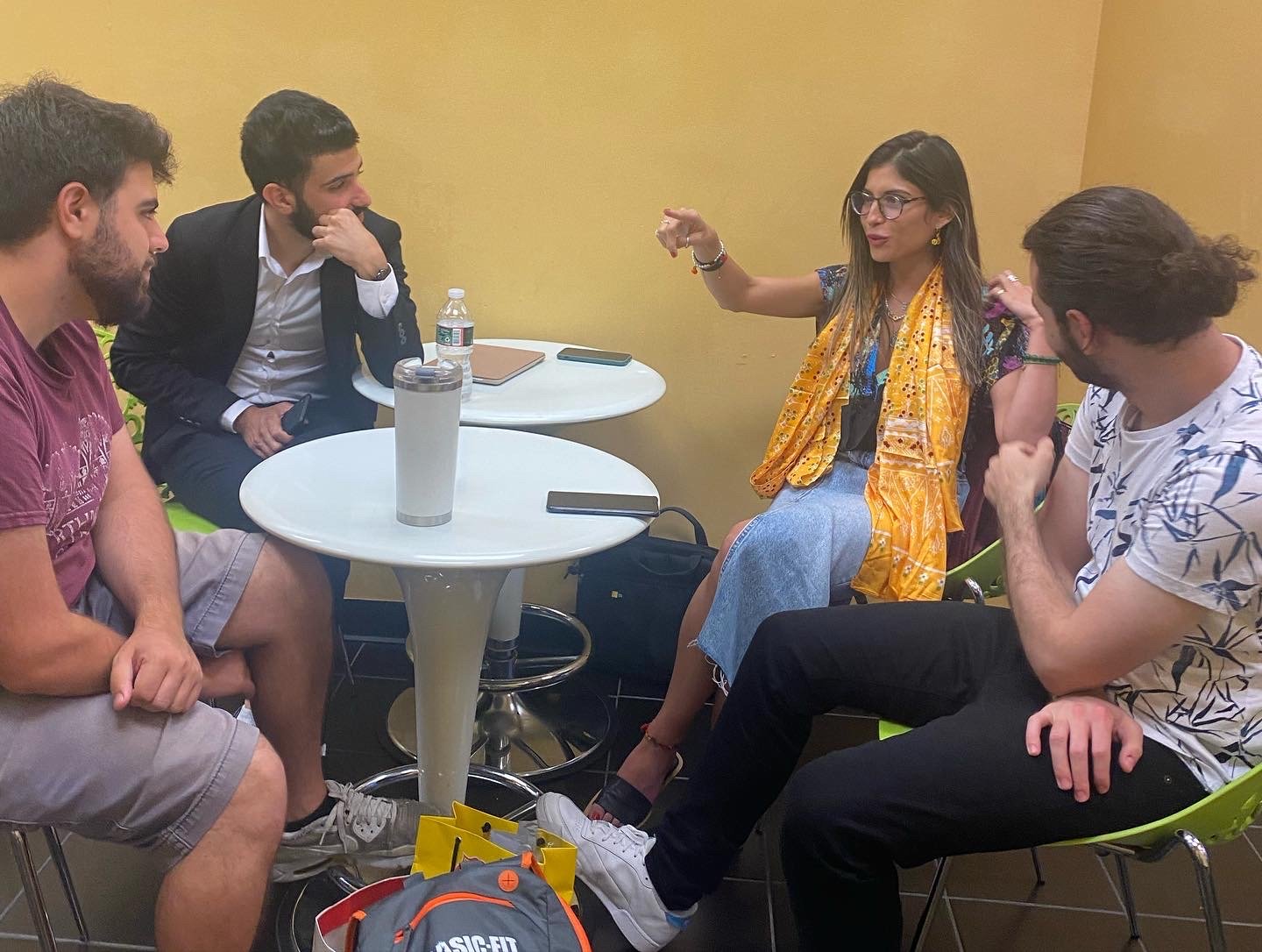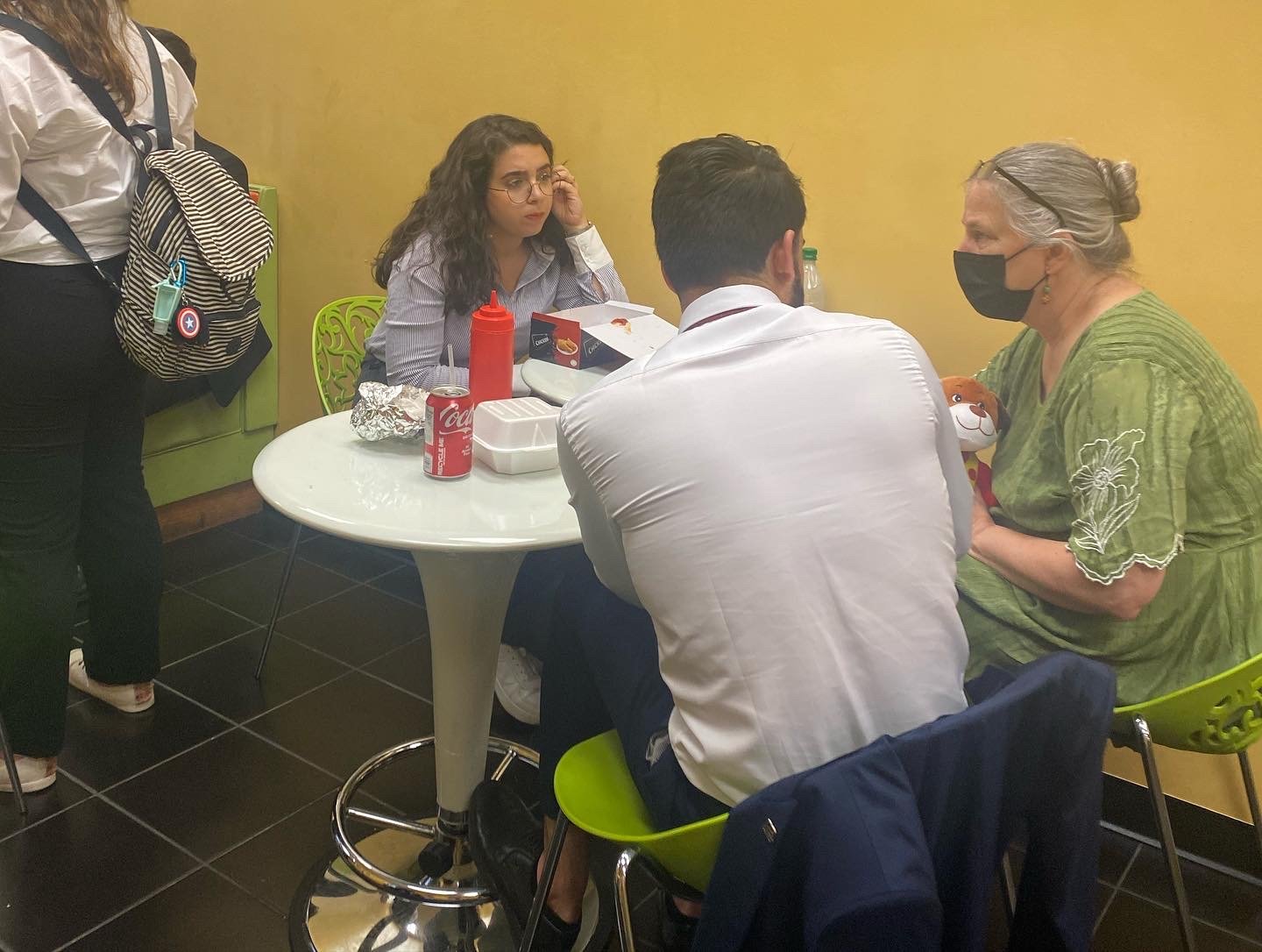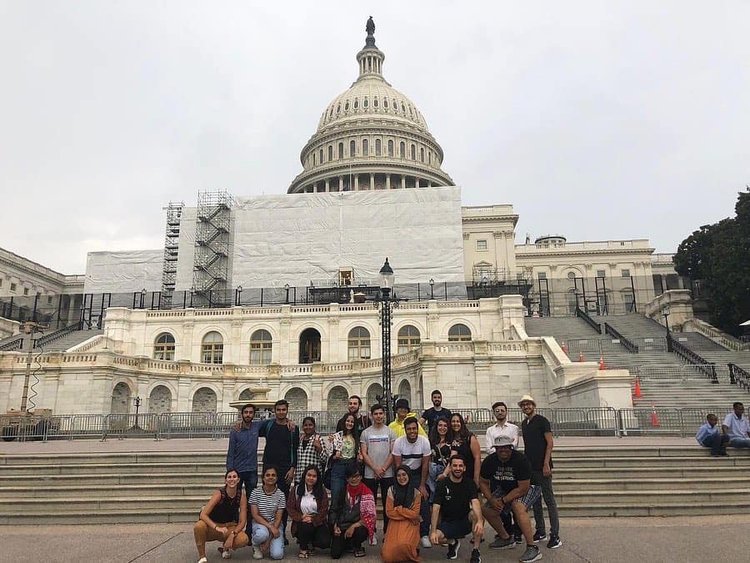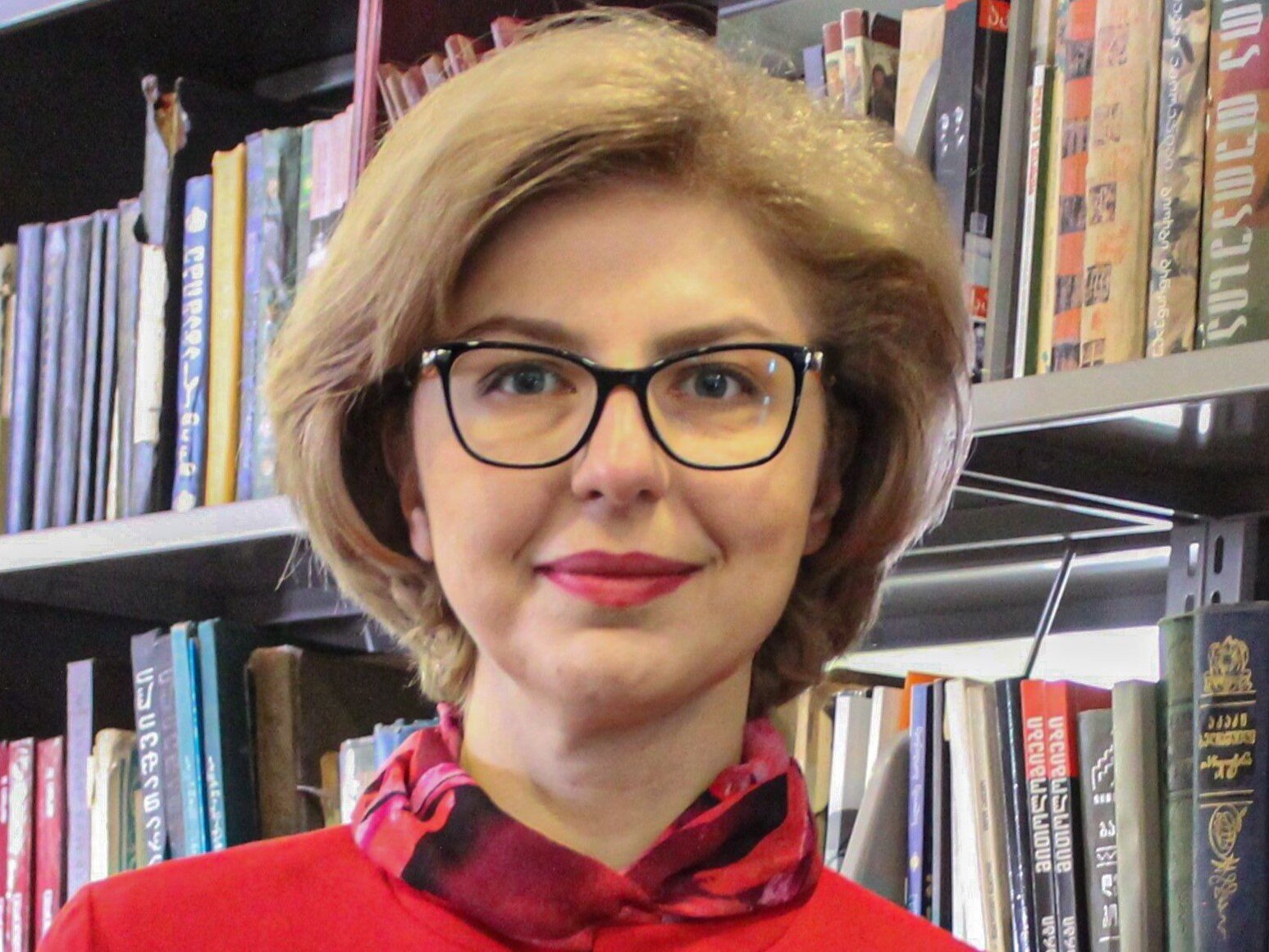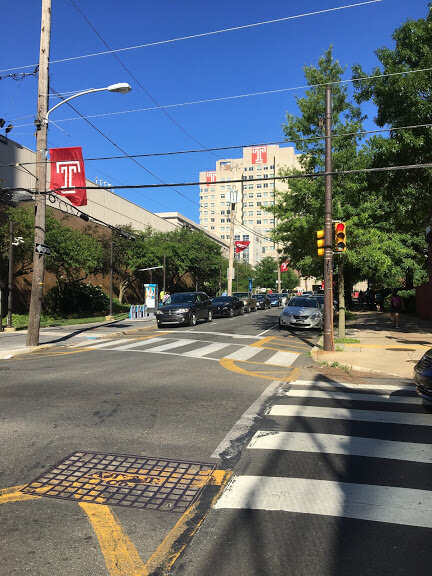Interfaith Bridges From Penn’s Philadelphia to Sheikh’s Sulaymaniyah by Danyar M. Ali
By Danyar M. Ali
My visit to Philadelphia as a young Kurdish law student representing Iraq in an American exchange program opened my eyes to phenomenal parallels between two visionaries, separated by centuries and continents. As I made my way along the path of William Penn’s “City of Brotherly Love,” however, I began to feel Kak Ahmad Sheikh of Sulaymaniyah reaching across cultures with some surprises. The religious pluralism that Kak Ahmad inspired in Kurdistan is as far ahead — and behind — us as that of Penn’s Quakers.
Exploring a range of houses of worship, I was exposed to the spiritual tapestry of Philadelphia. At the stunning Al-Aqsa Islamic Society, the known call to prayer filled halls lined with intricate Islamic calligraphy, yet another familiar comfort miles away from home. A few blocks away, the historic Rodeph Shalom Synagogue was a monument to Philadelphia’s Jewish heritage, its Byzantine-Moorish architecture embodying the cultural synthesis that has always been at the heart of the city.
What most really resonated with me was that these different faiths were not just existing side by side, but in real harmony — a living testament to William Penn’s radical 17th-century vision. Penn, a Quaker who had been persecuted for his beliefs in England, established Pennsylvania as a “Holy Experiment,” a place where people of all faiths could worship freely. This was radical at a time when religious tolerance was simply unknown, and persecution the invariable practice.
While sitting in silent worship at the historic Arch Street Meeting House, where Quakers have been meeting for centuries, I couldn’t help but imagine Kak Ahmad Sheikh doing a similar work in Sulaymaniyah. Sheikh Ahmad, like Penn, knew that authentic religious liberty involved not mere tolerance, but proactive regard and defense for every faith. With its array of other groups, such as Yazidis, he worked to bring together Muslims, Christians, Jews and Yazidis in much the same way that Penn had done amongst the different denominations of Christianity, Judaism and Native American spiritualities of colonial Pennsylvania.
It’s striking how similar these two figures are. Both lived during periods of intense religious strife, but opted to swim against the political currents of their times. Penn founded a colony in which no man should face persecution for his beliefs; sheikh Ahmad strove to heal the sectarian pain of post-conflict Kurdistan. Both men knew that religious freedom was not merely an individual right of conscience but a pillar of peaceful society.
What is even more extraordinary about their accomplishments is how they embraced religious harmony not as a dilution of their own faith but as a manifestation of it. Penn was a Quaker, and his religious views led him to see the light of God in all people, no matter what their religion. Likewise, Sheikh Ahmad used Islamic principles of respect for the so-called “People of the Book” and human dignity to encourage interfaith dialogue and understanding.
As I walked through Philadelphia’s historic district, I imagined how Penn’s vision had borne fruit across generations. Churches, synagogues, mosques, and meeting houses stand as neighbors, their different congregations mingling each day in the marketplace, schools and public spaces. It recalled the work Sheikh Ahmad was doing in bringing interfaith dialogue into the open by forming common spaces for interfaith dialogue in Sulaymaniyah, where the leaders of all the different faiths continued get together on a regular basis to discuss common challenges as well as celebrate their common humanity.
Each of the churches I visited — the Swedish Lutheran Church, the African Episcopal Church of St. Thomas, the various historic houses of worship — told a story of how a given community found its home in Penn’s grand social experiment. Their activities and vitality continue to speak to the enduring success of his vision, much like the expanding interfaith initiatives in Kurdistan are grounded in the work of Sheikh Ahmad.
As a law student, I was especially struck by how each man strove to institutionalize religious freedom in legal systems. Penn's Frame of Government for Pennsylvania afforded never-before-seen safeguards for religious liberty, while Sheikh Ahmad fought for legal protections of religious minorities in modern Kurdistan. It provides a reminder of a world where human dignity and social harmony are the key tenets, and the law remains a mechanism for protection.
But neither man’s vision was purely hypothetical. Penn actively bridged different religious minds and gathered fair treatment for all; Sheikh Ahmad continually interceded to protect threatened religions and to encourage mutual understanding between sects. Those approaches to enacting their dreams hold relevance in the world today, where one of the greatest challenges across many societies is often interreligious contention.
My exchange program coming to an end, I left Philadelphia thankful for the way William Penn’s “Holy Experiment” has played in broad strokes across time and space, resonating on lofty wavelengths that would engender the most unlikely echoes in the work of Kak Ahmad Sheikh in the land of Kurdistan. Their common dedication to religious toleration and living together serves as an invaluable template for tackling modern-day issues involving plurality and religious strife.
For both Philadelphia and Sulaymaniyah remind us that the courage to imagine a new way of living together, along with practical work of building institutions and relationships, can change societies. These lessons stay with me, taught by two visionaries from distinct times and cultures, arriving at the same conclusions about human dignity and religious freedom. As a law student in the Kurdish region of Iraq, I am both haunted and encouraged by these lessons.
Their legacy serves as a reminder that the task of building bridges between people of differing faiths is never complete, but rather one that is passed down from generation to generation — each one contributing its chapter to this story of human respect and understanding that continues to unfold.
The Significance of Interfaith Dialogue in the Contemporary World by Danyar M. Ali
Authored by SUSI 2023 Alumni Danyar M. Ali
It is fast becoming important in today's world for interfaith dialogues to be appreciated more amidst the religious and cultural diversity characterizing society. This dialogue will not only help people understand one another, but it is also a very important tool in building bridges, and creating peace, and coexistence among such communities. Interfaith dialogue can play a fundamental role in reducing tensions and conflicts, countering extremism, and opening up society towards tolerance.
Another significant result of interfaith dialogue is that it aspires to the complete elimination of misunderstandings and biases between the adherents of various confessions. These usually come from a shortage of knowledge and gaps in personal contact with other people, so very often, this disunity can be solved after the representatives of various confessions sit down together to discuss problems openly and honestly. This helps lessen the fear and suspicion of one another and builds even more trust among religious groups.
Interfaith dialogue leads to increased respect and tolerance in society. As people learn to listen to and understand different perspectives, this will contribute to the development of respect for differences and to a more diverse and open society. Such a dialogue also makes one introspect his belief system yet be open to the thoughts of another. This eventually leads to a vibrant and resourceful society where differences become a form of blessing rather than a point of intimidation.
On the other hand, interfaith dialogues can serve as a looming factor in settling social and political issues. Often, religious factors have to do with problems of global complexity. Inter-religious dialogue thus forms a channel for religious leaders and their believers to find peaceful solutions through their cooperation. This cooperation could also extend to other specified areas, such as the fight against poverty, inequality, and climate change. To this effect, when different religions make a common cause in serving the community, this serves to solve not only the problems at hand but also to reinforce their relations.
Interfaith dialogue also provides avenues for spiritual learning and growth. Each religion carries with it a certain wisdom and unique insights into life and existence. People can learn from the insights of one another through dialogue, thus broadening their horizons. Thus, this will enrich the spiritual and moral life of people and society as a whole. Additionally, interfaith dialogue may help individuals understand their own beliefs more deeply and to think more critically about religious issues.
It is also expected that interfaith dialogue can play a significant role in safeguarding and strengthening religious freedom from the religious oppression and discrimination that still exist in the current world. When religious groups work in unison, they can be stronger to protect the rights of religious minorities against every other form of oppression. This becomes important in bringing about a society where everybody can comfortably practice their beliefs without fear of oppression or discrimination.
Interfaith dialogue also proves to be very important in education. We can teach young people how to view differences and comprehend religious diversity through curricula and joint activities. It is an influence on the new generation in regard to opening up and being more open-minded towards religious or cultural differences. The less children and youngsters are introduced to the existence of different religions, the more they will create a society where differences are a source of fear and hostility rather than a source that enriches social and cultural life.
The other positive aspect of interfaith dialogue is that this dialogue can challenge extremism and terrorism. Religious leaders can, through dialogue, stand up together against any extreme interpretation of religion and disseminate a message of peace and tolerance. This is important in saving the youth from the clutches of extremist ideologies. Sending back to society a signal that different religions come together to raise their voices against violence and terrorism gives a powerful message to the groups who use religion for such violent purposes.
In this way, interfaith dialogue may also serve as a means of preserving cultural and religious heritage. The cooperation and mutual understanding may provide a way for the different religious groups to help each other in the preservation of sacred sites, traditions, and values that are deemed important to be kept in the culture. This goes a long way toward preserving some semblance of cultural diversity in the world and preventing the loss of historic sites and ancient traditions. Also, through dialogue, different religions can learn how to respect each other's sacred sites and work together to protect them.
Finally, interfaith dialogue brings human commonality into development. Irrespective of religious differences, we are all ultimately human, sharing the same basic needs and aspirations. Real dialogue lets us understand this human commonality and builds much better relations based on that. Something shared in common can become a platform on which to cooperate and come together against challenges that face all of humanity, such as poverty, disease, and climate change.
Interfaith dialogue also can play an important role in maintaining world peace. In a world where conflicts and wars are very often related to religious factors, interfaith dialogue can become an important tool for solution of conflicts and the search for peaceful solutions. When religious leaders and believers learn to sit together and discuss, it may become an example for politicians and decision-makers on how one can resolve differences in a peaceful manner.
Yet, interfaith dialogue is not easy-it is fraught with its own barriers. Deep differences in beliefs and traditions, a history of conflict and hostility, and the fear of losing one's unique identity stand as deterrents to effective dialogue. Some individuals and groups also harbor fears that this dialogue might make their convictions weak or that compromise on basic principles regarding their religion may have to be made.
It is, therefore, of essence to conduct interfaith dialogue in a proper and sensitive way. Participants should regard the differences of others with respect and try to achieve commonalities without the intention of convincing others about one's beliefs. A very essential aspect is that this interfaith dialogue should not remain restricted to religious heads; it reaches people at the grassroots level also. For that continuous education and sensitization is required.
We can derive from this that, notwithstanding all the obstacles and barriers, interfaith dialogue is one of the most important tools which can be used in trying to establish a world that is more peaceful and united. It is through dialogue that we understand how to respect differences and find commonality. We can solve together many of the problems that all human beings face. But together, we can foster a society that recognizes that diversity in religion and cultures is an asset, not a source of conflict or division.
That is why all of us-in our personal lives, our communities, our states-should take every possible measure to encourage and give support for interfaith dialogue. It is by encouraging and giving support to the people and organizations who work in this area of expertise. It is necessary that the values of tolerance and respect for differences be emphasised, taught, and spread through our education systems and the media. Only then will we be able to head toward a world where peace and coexistence will have first place over fear and hostility.
Interfaith dialogue is not, lastly, a religious but a human issue and one concerning the fate of all of us. It is the way to greater understanding, closer cooperation, and peace in this world. Let us all join this process and take part in building a good future for all humankind.
A SUSI Reflection By Samaa Hossam (Sky)
The journey of SUSI 2023 began as a mere adventure into a new land, but it quickly evolved into a soul-enriching exploration of five different countries that the participants represent in the program. The friendships that blossomed amidst our diverse backgrounds mirrored the very essence of our theme. Bonds forged through shared laughter, late-night conversations, and mutual respect transcended our differences and became a testament to the possibility of peaceful coexistence. Although we are separated by geography and culture, we found common ground in our quest to understand, accept, and celebrate our differences.
As the program drew to a close, we were heavy with the knowledge that the physical distance between our countries would soon separate us. Yet, our emotions were a mix of sadness and hope, for we carried home the spirit of our collective journey.
The SUSI program wasn't just an educational endeavor; it was a pilgrimage of the heart. And as I look back, I am reminded that we, as a global community, hold the power to bridge divides, foster understanding, and create a world where diversity is not just accepted, but cherished.
Reflection by Samaa Hossam (Sky) - 2023 SUSI Student Leader
Attending Quakers Worship Day by Omar Namiq
On June 25th, my friends Jalal, Danyar, and I made our way to Arch Street to a Quaker church.
Upon entering the church, we were greeted by a lady and a gentleman at the door. We expressed our desire to participate in the worship, and they warmly welcomed us, offering to write our names on stickers and place them on our chests. We gladly accepted and wrote our names, attaching the stickers to our T-shirts.
As I stepped inside, I was immediately struck by the profound silence that filled the room, despite the presence of numerous individuals. I noticed that everyone, including ourselves as newcomers, wore badges with their names written on them. It became apparent that this practice was not exclusive to us, but rather a way of showing respect by addressing individuals by their names when engaging in conversation.
Choosing a seat at the end of the hall, I positioned myself to have a view of all the attendees. Sitting down, I began to observe the people around me and appreciate the beauty of the silence. It was perhaps the first time in my life that I experienced such profound silence in the presence of others.
The room housed a total of 23 people, including the three of us. Among them, nine were female. The majority of attendees were older individuals, but there were also some young people present. As I observed the worship, the predominant feature was silence. There was one young man and woman who remained silent throughout, their eyes closed as if engrossed in a deep communion with their respective gods. I initially believed they were maintaining silence for the entire hour, but then an elderly gentleman slowly stood up and, with a tremor in his voice, shared his contemplation about a passage he had read from Tolstoy. He spoke about how humans never truly die, as only their bodies perish, not their souls. His words captivated the attention of everyone present. After he finished speaking, he sat down, and the silence resumed.
It was during this moment that I realized the significance of Quaker worship. If one feels compelled to share something, they can simply rise and speak, and others will listen attentively. I found this aspect truly beautiful. Here, one has a safe space to voice their thoughts and feelings, knowing they will be heard.
When the clock struck 11:30, a young lady stood up and greeted everyone with a cheerful "Good morning, friends." Suddenly, everyone stood up and reciprocated the greeting, including ourselves, which elicited a lighthearted moment. The young lady then invited anyone who wished to introduce themselves or share something to do so. I raised my hand, stood up, and explained that I come from Kurdistan and that this was my first time attending a Christian church for worship. The entire congregation warmly welcomed me, and my friends, Jalal and Danyar, also took the opportunity to introduce themselves. Subsequently, other individuals stood up, introduced themselves, and one person asked a question, although I couldn't quite hear it clearly.
Following this, we were informed that coffee, tea, and donuts were available if we desired to join the congregation. Without hesitation, we accepted the invitation. While enjoying our donuts, we engaged in conversations with some of the attendees, who proved to be incredibly friendly. They showed genuine interest in Kurdistan, and I found myself immersed in a delightful conversation with them.
Before leaving the church, a lady come and talked with me, she said that we call each other friends, we are “Friends society”. And I asked what about Quakers?, she said “Yes, we Quakers, call each other friends”.
She went on to share with me that they have all agreed upon a set of principles known as SPICES. Intrigued, I asked her to elaborate on what SPICES entails. She explained that it stands for Simplicity, Peace, Integrity, Community, Equality, and Stewardship. Personally, I believe that these principles are fundamental values shared by all religions, although regrettably, people often fail to uphold them.
Seeking further clarification, I asked her what would happen if my inner light led me to a different god than hers. She responded with a lighthearted tone, saying, "Ask three Quakers about God, and you may receive five different answers." We shared a laugh, and she continued by emphasizing that Quakerism grants individuals the freedom to follow their inner light. She expressed that each person's inner light is unique and different from others', and they do not inquire about which god one's inner light guides them towards.
Curiously, I inquired whether a Muslim, or anyone of another religion, could be considered a Quaker. She replied with a jovial tone, "Yes, Hahaha, if they follow their inner light." At that moment, I noticed another young lady who shared with me, "I love the freedom my religion has provided for me."
Eventually, the time came for us to bid farewell. We turned around and said goodbye to everyone before leaving the church. This experience marked my first attendance at a worship outside of the mosque, and it allowed me to witness firsthand how individuals with different religions and beliefs worship their respective gods.
I found solace in the profound silence and felt a genuine connection with the people I encountered.
Reflection by Omar Namiq - 2023 SUSI Student Leader
We The People by Ricky Adityanto
We The People: What’s the meaning of becoming “people” in plural community?
By Ricky Adityanto
We the People
The first phrase of the US Constitution that struck my mind. Spontaneously, my mind raised a question: “who is this “the people”?”. History showed us again and again that we always had disputes and arguments on who or what can be considered as “our people”, making a thick line that segregates “us” and “others”. But, could you really choose whether we were born as “us” or “others”? What if you were born as “other” in “us” neighborhood?
Do you see the problem here?
Back to the fundamental meaning of “people” and person
Again, we have to learn from history, from people that sacrificed their lives to redefine the definition of “the people”. From Martin Luther King, Jr., Malcolm X, to Nelson Mandela. Did they struggle only for the sake of “being black”? I believe the answer is no.
I believe that the deeper meaning of their struggle, their campaign, was because there were someone’s life and dignity at stake. There were men and women at the verge of death because of segregation. There was a human that died from injustice. At the most fundamental level, they did for human life and dignity.
Wouldn’t you feel angry if you are treated unjustly? Wouldn’t you feel angry if “your people” are treated as “others”, as alien and are stripped from your right as a member of a society? Wouldn’t you feel that all those violate your dignity as a human being?
So, you and I, “us” and “others”, we all have life and dignity as human beings. That line between “your people”, “our people”, and “others” in a society is just a skin-deep definition and categorization but at the core of our soul, we are all human beings. We are “the people” of humanity that have life, dignity, and in turn, rights as a member of society.
“The people” is about we as humans that have life and dignity.
So, what’s the meaning of our “skin”?
White, Black, Asian, Native American, etc. are all “the people”. But, does it mean we are the same? What’s the meaning of our uniqueness then?
All our uniqueness together is another part of the definition of “the people”. There’s no one else in this whole world that can replace you due to all your uniqueness, thought, feelings, talents, and your personal experiences. Thus, if you try to be somebody else, the world will lose the “genuine you”.
On a community scale, each community has its own culture, idealism, vision, way of life, and membership that are so unique they can not be replaced by other community. So, being White, Black, Asian, or Native American is not only about “having skin” but is your culture, your way of life, your name, being your unique self, and your community in society. And being happy with it!
Hence, “the people” is also about being your unique self in society and being proud of it!
Participation of “the people”
All these unique communities together build a society. We are part of society. Since society consists of us with our uniqueness, then we have an important part in our society: giving our unique selves.
This is then the meaning of being White, Black, Asian, or Native American as “the people” of society: being all that’s unique from where you come from, and giving all that uniqueness for the betterment of society. We can think of “the people” as a rainbow, where humanity is the raindrop and the sky with us and our personal background as its color. Being “the people” is all about celebrating humanity with its all colors and giving all those colors to the world.
Come to think of it, “the people” really have a beautiful meaning, isn’t it?
SUSI Summer 2022 Religious Freedom and Pluralism in the United States
This summer the Dialogue Institute hosted 18 students from Iraq, India, Indonesia, Egypt, and Lebanon for another SUSI Religious Freedom program.
Students engaged in workshops, lectures, and team-building exercises, and were able to explore the city of Philadelphia and the mid-Atlantic region for 4.5 weeks.
Participants learned about issues of diversity, pluralism, and American culture in the Philadelphia area as well as in the greater United States. They learned from religious practitioners, law professionals, academics, civil servants, and community members throughout their visit. Our participants were able to visit Washington, D.C., Virginia, and Lancaster, PA in addition to their Philadelphia stay.
Some highlights of their program included a visit to the Amish in Lancaster, PA, celebrating Eid at the ADAMS center with DI board member Abdullah Antepli, meeting the Abrahamic house fellows in Washington, D.C., and being able to explore Philadelphia in the busy summertime. We were lucky enough to have several DI board and community members with us this summer to mentor, teach, and dialogue with our students. The DI gives a special thanks to Majid Alsayegh, Gity Banan- Etemad, Kay Yu, Nancy Krody, Dr. Rev. Mark Tyler, Abdullah Antepli, Rebecca Mays, and Sean Chambers who supported our students and made this year such a success. We also appreciate all of our volunteers and SUSI staff for all of their hard work.
Our SUSI program closed with the students presenting their community action plans which they created during their programing. Participant community action projects ranged from integrating pluralism in their home universities to hosting workshops for their own NGOs back home. It was clear our 2022 cohort learned a lot from their SUSI experience and while we were sad to see them go back home, we are excited to see all they will do in their home communities.
Malahat Veliyeva: A Dialogue Institute Interview
Malahat Veliyeva is an alumna of the Dialogue Institute’s 2019 Study of the U.S. Institutes for Scholars program. She is an Associate Professor in the Department of English Lexicology and Stylistics at the Azerbaijan University of Languages where she teaches American studies and multiculturalism. Professor Veliyeva was interviewed by Ivanessa Arostegui, a Temple University student pursuing a PhD in religious studies.
Ivanessa Arostegui: Good evening Malahat. It's evening, where you're at, and we are so, so happy that you're going to be able to spend some time with us and talk about how Islam has impacted your life and how you see it within Azerbaijan, going to talk to us about a very specific holiday, and we really appreciate your time here with us this morning. So I want to begin by having you introduce yourself.
Malahat Veliyeva: Thank you very much. I'm also delighted to talk to you this evening, it is evening in Baku good morning to you in Philadelphia, I am Malahat Veliyeva I teach American studies and multiculturalism at Azerbaijan University of Languages, I am a SUSI scholar, 2019. And I had a wonderful experience at Temple University, specifically at the Dialogue Institute with our colleagues with Len Swidler, David Krueger, and Rebecca Mays. These are wonderful people who made our SUSI journey very interesting and useful for us and more informative, educative for us.
Ivanessa Arostegui: Great. Thank you so much for introducing yourself and explaining your connection to the Dialogue Institute. We're so happy that you had a great experience here. It's probably a very different city than where you live, and you know, I'm glad that you were able to make so many connections and, hopefully, you still feel connected to the Institute and we're so happy that you're able to be here with us today.
Malahat Veliyeva: Yes, I am yes, thank you very much for the question. And I'm still connected with our colleagues at the Dialogue Institute now via email. We contact with each other, we send articles to the Journal of Ecumenical Studies, and at the same time we exchange our views on different events happening in the world, we still keep in touch with each other and also, I would like to mention very valuable ideas very valuable experience that I bought about religious pluralism and studies of American society. When I was a SUSI scholar at Temple University, we visited different states, we visited Arizona, we visited the Grand Canyon. So it was an unforgettable experience actually.
Ivanessa Arostegui: Yeah it sounds amazing because you were able to meet all these people, but also see the United States and have these very unique experiences and all of these different sites, you know historical sites and sacred sites and I'm sure that that really kind of gave you a well-rounded understanding it's- it's one thing to meet people it's another thing to go physically and see places experience and walk and yeah so wonderful Okay, so you are Muslim correct.
Malahat Veliyeva: Yes, I am.
Ivanessa Arostegui: Okay, so now we're going to transition and talk about Islam and your experience with your religion, so my first question is just how does Islam affect the way that you see the universe, or the world or other people like your perspective and your lens like how does that focus things in for you in your life.
Malahat Veliyeva: Thank you very much. Islam actually has shaped my views on the universe our planet and other people, since I realized the essence of this religion. I understand that the whole universe, including all living beings, are created by God. Everyone has a mission in this world, some people understand it, some people don't that's why we have positive and negative people, so in my understanding. And this life is a trial for everyone, according to Islam it's an examination, whether we pass or do not pass this examination will be known in the other world when we change the way we exist. You know people work they do their best to achieve something to make fortune sometimes to get some financial benefits, but when we return to God, we will not be asked how much we have accumulated how much fortune we have made, we will be asked how much we give away, so this is the essence of life, this is my philosophy of life, according to Islam.
Ivanessa Arostegui: That's beautiful yeah so it affects everything your whole complete understanding of everything in the universe and you're like you said mission, while you're here while you're alive, which is it sounds like rooted in generosity and kindness and compassion and giving right because, for you everything in the physical material world is nothing really. When we return back to God.
Malahat Veliyeva: Yes, we will all return back to God and we should all realize it and whatever surrounds us our life, the planet, universe, people, all these things are you know given for us like examination. Like trial for us in this world. So that to give a kind of report in another world about our actions about our deeds like this.
Ivanessa Arostegui: Yeah perfect, so I guess, we can segway into actions and deeds behaviors, how do you feel Islam kind of shapes the way that you make decisions in your life or how you interact with others.
Malahat Veliyeva: It has enormous impact on my life my actions, my behaviors are determined by my religious views. Also, my personality. I am a woman and a woman in Islam, should be educated in order to educate her children the future generation to educate others. A woman is not only in miserable creature deprived of her human rights under hijab as in some Muslim countries, women are very active citizens in Azerbaijani society, of course, we also have some gender problems. So in faraway regions of Azerbaijan, there are some gender problems.
Infringement of women's rights, etc, but overall in our society, women are very independent. They're everywhere they're in politics, they're in education and spheres of education, they are in business. Everywhere, and so women in our society, women should be educated everyone - everyone tries to educate, especially girls in the families, because. In the future, they might face a lot of problems, a lot of difficulties like social problems, divorce or any other problems, so that if they have a good education they might somehow support themselves support their family so.
Ivanessa Arostegui: That's wonderful yeah, I mean I think that's sometimes people have a lot of negative associations or stereotypes or ideas of other religions or other places that they're ignorant of, and unfortunately they just fill in you know the gaps or the ignorance and their knowledge by something they saw one time or an idea that they might have by somebody else that doesn't know anything about this country or this religion. But I am glad that you mentioned that it's a complicated spectrum in terms of the situation for women, but from your experience and in the cities that you grew up in and that you lived in you saw a type of Islam, where women are you know, prized within their society, as you know, very important to the family and Islam in general I think also encourages so much the search for knowledge, and so, women are also a part of that and becoming educated. And it wouldn't be fair to have that negative stereotype that sometimes comes in.
Malahat Veliyeva: Education, women's education is great priority in our society, and everyone strives for that everyone tries to give education to their daughters, especially in families with daughters, you know because I think education, Dostoevsky said that beauty will save the world, but I think education will save the world, you know, because even Islam, even to the studies of Islam, we should approach it from the point of view of you know, education. If we study Islam as it is, if we study real Islam if we investigate Qur’an we will see that it is, it is quite you know- more than religion, and there are a lot of answers to our questions there, we can find, although it was written many, many centuries ago, yeah.
Ivanessa Arostegui: Yeah, great so then my other question in relation to Islam is about religious practices that you feel might bring the community together or might build bridges of connection or communication. I don't know if you want to share some of those practices with us today.
Malahat Veliyeva: So religious practice, for example in Azerbaijan, there are two contrasting Muslim directions like Shi’ism and Sunnism and they successfully coexist in Azerbaijan and even they complete each other, like there is a tradition every Friday both Shi’is and Sunnis, they come to the mosque, and they pray together and after praying they just shake their hands greet each other, and they are very friendly with each other, you know. But what can we see in in Middle Eastern countries in other countries, so where Shi’ism and Sunnism are confronting with each other, and they are competing for leadership in Islam and so these things are. I think beyond our understanding. So these are two directions in Islam, and they should coexist together and we are all people we are all equal in front of God we are the same for God, you know, yeah and people should understand it, these religious practices. Then we have Ramadan and during the month of Ramadan. So it is fasting you know Muslims all over the world, they do fasting, and they eat at the same time, they just do the same rituals and it's somehow you know unites people all over the world, especially the Muslims all over the world. They understand what do the poor people experience what do hungry people experience and they try to be more merciful. Ramadan teaches people to understand each other to be more you know sympathetic to each other yeah and I think this this tradition, this religious practice should continue and the people, especially the Muslims all over the world, they should preserve these traditions and practices.
Ivanessa Arostegui: Yeah yeah it sounds like you believe that these practices connect - like you said, not just local Muslims or Muslims within one country but it's a whole global community of Muslims of brothers and sisters in the whole world that can come together with these practices. And that can help them connect to everyone, like you said, even people that might not be in that similar situation if they were blessed monetarily or with certain blessings within their family, they also have time to contemplate and to think of those that have less than they do. So that you really think that this is something that connects Islam, not just to the Islamic community, the global Islamic community, but to humanity to all humans and the suffering of everyone. Alright perfect so now we're going to get to a particular holiday that you're going to talk to us about so which holiday, are you going to talk to us about.
Malahat Veliyeva: I would like to talk about Eid Al Adha, it is called Gurban holiday, feast of sacrifice, yes, it is one of the grandiose holidays in the Islamic world and, as most of the important surmises of Islam Gurban, Eid Al Adha is demanded by Qur’an.This holiday is a part of Muslim pilgrimage to Mecca and the holiday of sacrifice is usually celebrated on the 10th day of the 12th month of the Muslim calendar Dhū al-Ḥijjah and this holiday, it is also a good practice for uniting Muslims all over the world, it is peculiar only to Islam. So I would like to talk a little bit about the history of this holiday it's related to the Prophet Abraham who brought his son as a sacrifice to God he wanted to kill his son as a sacrifice to God and at this moment he saw he got a message from God to cut the sheep. To cut the ship, and here we can see Islam how Islam prohibits any kind of human sacrifice how human life is valuable is important in this world, especially for God and God here recommends him to sacrifice the animal, instead of human, instead of his son. To give the holiday more respect it was determined to celebrate it once on the 10th day of Dhū al-Ḥijjah, as I said, and I would like to say some quotation from Qur’an from the Surah 5 Ayat 97: “Allah determined Bayt al-Haram, sacred house, Kabb’ah, the sacred month, tied and untied neck with and without signs on their necks, sacrifices brought to Kabb’ah to be a way to put into order the lives, religious and world affairs of the people.” It is the quotation from Qur’an about Eid Al Adha, and it is possible to bring the sacrifice for the realization of some wish and so we have different kinds of religious ceremonies. But the most important ceremony, the most essential one is cutting sheep and giving away to the poor to the needy families to hungry people and see the most interesting thing about this holiday the unique fact about this holiday is that prophet Abraham brought his son to kill as a sacrifice to Allah but Allah offered him to cut the sheep and it is, it is you know very, how to say, important message from Allah to people - so don't kill yourselves don't kill each other, because human life is very important. You know, and when people cut the sheep and give out meat and give it like gifts like mutton, it teaches people to understand that they should be helpful to each other, they should help each other in difficult situations and also if the Muslim knows that his neighbor or his relative or someone else's hungry and he shouldn't be indifferent to this, he should support them, he should help, and so this holiday this day, Eid Al Adha is like you know attribute of Muslim unity not only Muslims, so we cut sheep and we give away even to people who are not Muslims who were just people from other religions, like Christianity Jewish etc yeah. And I think it is - being merciful, being generous is very important.
Ivanessa Arostegui: Yes, great, so that is very beautiful, I grew up practicing Christianity and there's no form of animal sacrifice there's sometimes in Christianity forms of like self-sacrifice where you sacrifice maybe something that might be very dear to you let's say maybe during a particular time period, and we do something that for yourself is kind of painful like maybe you don't use your computer or your technology and that's going to hurt you a little bit because you're so used to going on your computer using your phone and so forms of self-sacrifice there isn't forms of animal sacrifice really in Christianity, but this is, this is a very unique practice in Islam and like you said ties very specifically back to Abraham who is so important within Islam and within all of the Abrahamic traditions. Is this holiday, or is this practice, do you feel that in any way it brings together a larger history for Muslims, for them to like connect with the larger history of who they are in some way, do you feel it plays that role or?
Malahat Veliyeva: You know, yes it comes from history and at the same time, Muslims all over the world, they try to. To preserve this history and to connect it with modern life to connect it with modernity, because many years have passed, many centuries have passed since Islam has been established on this planet, on our planet. So it makes you know people, especially Muslims, how to say, merciful and grateful to God.
Ivanessa Arostegui: Beautiful. Okay, and our last question about this holiday. How do you feel about practicing this particular holiday, or being a part of the Feast of the sacrifice for you or from some around the world, how do you feel that that connects Muslims to God.
Malahat Veliyeva: This story passes from generation to generation, and it is told in mosques, it is spreading on social networking sites as well. For the young generation to be well informed about it, and every year we celebrate the holiday as remembrance, to the prophet of Abraham and his son Ishmael who was saved by God let's say who was you know given us a gift to his father again like this yeah and I think it's our duty to preserve this holiday and to celebrate it every year and to pass this information from generation to generation- so our holy book Qur’an exists, and I hope it will exist forever. For future generations for humanity to learn how to live to understand the philosophy of life to understand how to become a good human, a real human being.
Ivanessa Arostegui: Yes, so important right to have these holidays, these rituals that connect to a really long line of people and ancestors that have experienced the power of God and to continue to walk in faith and to continue to preserve that history, that has been there for so long and to allow it to effect now, right the present, how you said how we decide to live with others, and what we decide to highlight and prioritize and so very beautiful, thank you so much, we really, really appreciate your time with us this morning.
Advocating for Child Protection: Maria Emad
By Maria Emad
Egypt, SUSI Cohort 2018
In an era where internet plays a vital role in shaping people’s wildest imaginings as well as replacing genuine knowledge with “the wisdom of the crowd” dangerously blurring the lines between fact and opinion.
In an era where there are always multiple ways for everyone to express themselves, many are heard yet still feels not heard, and especially children, the most vulnerable citizens in our societies.
Children don’t have enough understanding and cannot be aware enough to sort out or advocate against abuse, violation of rights, and distorted social norms. For, as Chief Dan George states, “a child does not question the wrongs of grown-ups, he suffers them” .
Likewise, Susan Forward notes, “a child that’s being abused by its parents doesn’t stop loving its parents, it stops loving itself”. Susan’s words draw attention to the concept of “loving” and contemplating the way humans perceive and convey such repetitive word in daily life.
And what I mean by love here is not the love of the romantic world and theatre. A love mixed by beauty and charm and sensuality taken down in shorthand is just robbed of its higher purpose which is cherishing and nourishing. Love is supposed to be primarily fulfilled in childhood, with all forms of emotional security, unconditional love, and empathy with the child’s feelings. Children also require respect for their developmental level, sensitivity to the child’s needs, and verbal and physical affection. All of us develop our core identity, our expectations about how people will treat us and about our perception of loving based on our relationships with our parents.
“Children of toxic parents grow up feeling tremendous confusion about what love means and how it’s supposed to feel. Their parents/ caregivers did extremely unloving things to them in the name of love. They came to understand love as something chaotic, dramatic, confusing, and often painful—something they had to give up their own dreams and desires for.” Susan Forward with Craig Buck., 1989. Toxic Parents. New York: Bantam Books.
That requires from us, as Child Protection Activists, to try to put ourselves in the place of a child, and to see what it means for a child to feel loved and protected. Activists also work to ensure children are in an environment that creates a sense of being valued, and cherished, and enjoying safety, knowing that, if something goes wrong and if there is a risk or a fear, someone is ready to intervene early enough for the fear not to grow.
The negative disparity of childhood experiences and the impact of our cultures that pass down from one generation to another, result in adults who suffer from mental illness and a lack of connection to their values [21]. These scars are passed down from generation to generation forming engrafted patterns that we never wish for, as the link between experiencing violence, neglect, exploitation or abuse in childhood and the lifelong impact of these results in adults are plentiful.
The early moments of life offer an unparalleled opportunity to build the brains of the children who will build the future. But far too often, the opportunity is squandered when patterns of violence and emotional abuse are interchanged with reconciliation and nurturing. This zigzag can be especially damaging for children who only experience cycles of abuse-reconciliation-nurturing followed up by abuse again as they grow up. Unfortunately, as these children mature then they often repeat these patterns in their own intimate relationships and families.
The science is clear: a child’s brain is built, not born. While genes provide the blueprint for the brain, a child’s environment shapes brain development.
Millions of the world's most disadvantaged children are deprived of the opportunity to be fully developed, Children living outside a family environment are especially marginalized: Children living in detention facilities, orphanages, on the street or in refugee camps require additional protection, resources, and support to ensure their rights are not being denied.
Children that are in greater risk to get exposed to sexual exploitation, child trafficking child labor, children without parental care, children associated with armed forces and groups, and children who grew in communities that do harmful traditional practices such as social norms like female genital mutilation and child marriages.
Prevailing norms can determine whether violence – among children and adults – becomes the accepted or even expected response in cases of small disputes, perceived slights or insults. So, it’s not surprising that in compulsive cultures and marginalized communities where the culture of dialogue and communicating issues do not exist that they reconcile with such norms. People also have little information about child development, so they follow their instincts or their own childhood experience. But, many times, such instincts are emotional reactions that aren’t well through-out. And sometimes their childhood experiences were negative, or even violent ones. Sometimes parents think that violence is the only mean to discipline children. They fear to lose control, so they resort to short-term approaches which cause long-term distortions. Violence can make a child stop doing a certain act out of fear and fright of adults’ anger/reaction and not out of actual behavioral change. True changes in behavior needs communication and dialogue. It needs efforts, patience, the willingness to understand one another as a human being, and acknowledging their needs.
Violence, according to the CRCE, includes all forms of physical or mental violence, injury and abuse, neglect, or negligent treatment, maltreatment or exploitation, including sexual abuse. So, a very comprehensive and extensive range of different forms of harm, from physical and mental violence, to maltreatment or exploitation, to negligence (also including the detention of children because of their or their parents’ migration status)
Emotional or psychological violence and witnessing violence includes restricting a child’s movements, denigration, ridicule, threats and intimidation, discrimination, rejection and other non-physical forms of hostile treatment. Witnessing violence can involve forcing a child to observe an act of violence, or the incidental witnessing of violence between two or more other persons. Source: INSPIRE: seven strategies for ending violence against children (WHO, 2016)
An estimated one billion children, half of all the world’s children, experience violence every year. [1, 2]
Adding to the aforementioned statistics, violence affects children across class, ethnic, educational, and religious groups. This is not just a problem of the very poor. It's not just a problem of particular religious groups. It affects all children, rich children, privileged children, children from educated families.
“According to statistics gathered in 2002, over 150 million girls and 73 million boys had forced sexual intercourse or sexual violence imposed on them. And this data doesn't even cover trafficking of children or labor exploitation, nor does it cover a probably much greater hidden body of violence, violence that's hidden because children are fearful about reporting it, or violence that's hidden because it's socially accepted, maybe by the children themselves, or violence that is hidden because there are no trusted outlets for children to reveal the secret. There's no trusted person. There's no one they're encouraged to go and speak to report the violence.
Moreover, between 22 per cent and 84 per cent of children 2–14 years old experienced physical punishment in the home in 37 countries surveyed between 2005 and 2007.”
In light of this finding, we can talk about Child Protection and its ways of implementation. Child protection is really about having those systems that safeguard our children from exploitation, from violence, from abuse, fear, and even neglect, making sure children grow in a very healthy environment that nurtures their holistic growth. Child protection should foster a healthy, enabling, and supportive environment to ensure a child's well-being and ability to live free of violence and realize their full potential at home, school, or the community in general.
Realizing children’s rights to a violence-free childhood Actions to end violence in childhood should be seen as part of a “rights revolution” which has extended the rule of law to cover violence within the most private of places – the home. The CRC encapsulates such aspirations, and recognizes that children are the foundation for sustainable societies. Children are not objects, but persons with rights of their own that must be articulated and enforced. Children can pursue many aspects of these rights themselves. Indeed, they often have a strong sense of fairness and justice. Nevertheless, children often have no voice to express the traumatic effects of violence, and have little capacity to influence public decision-making. Children rely on responsible adults and on society to intervene on their behalf for their safety and well-being.
Prevention is possible. “The launch of the Global Partnership to End Violence against Children in 2016, serves as a global platform whose aim is “ending violence against children in every country, every community and every family” (End Violence Against Children, 2018)”.
Essential public action should be taken, not just by governments but also by civil society, international organizations, academia, researchers and the media.
All people should unite to end violence in childhood – to break the culture of silence, strengthen violence prevention systems, and improve knowledge and evidence.
We all must get in the ring and break the silence. The first task is to break the silence around childhood violence. Violence needs to be spoken about and made fully visible. Traditional and social media can highlight the scale of the problem and help change attitudes and behaviour. They can challenge gender and social norms that belittle the dignity and freedoms of women and children, while also highlighting the extent of violence against boys, and against children who are vulnerable because of sexual orientation, disability or ethnicity.
Leaders, governments and communities across the world are in a position to transform children’s lives and the futures of their societies, establishing the basis for a just, peaceful and equitable world – a world worthy of its children.
Approaches to prevention cluster into three areas:
1- Those that enhance individual capacities
2- Those that embed violence-prevention strategies into existing services and institutions
3- Those that eliminate the root causes of violence
Enhance individual capacities: Well-informed parents and caregivers can both prevent violence and create a nurturing environment free from fear in which children can realize their full potential. Children themselves can also be equipped with skills that build resilience and capabilities.
Embed violence-prevention in institutions and services: Violence is interwoven into the everyday lives of children and women. Prevention should correspondingly be built into all institutions and services that address children’s everyday needs.
Eliminate the root causes of violence: Societies and governments should work with families and communities to address many of the root causes of violence – to establish violence-free communities and change adverse social norms.
Once archaic doctrines of original sin are discarded, we can see the clear evidence that the roots of serious criminality in children develop and flourish from adult – mostly parental - violence and neglect, compounded usually by a failure of the State to fulfil its obligations to support parents in their childrearing responsibilities and to provide children with absorbing and rights-respecting education. The more serious and extreme a child’s offending is, the more certain we can be of its origins in adult maltreatment – or sometimes simply the tragic loss of parents or other key carers.
The child lives in the family. The family is affected by the community. And of course, the community is surrounded by state institutions, civil society, and international organizations. We need a preparation system and ongoing training and support and supervision and a higher education system that has the capacity to train not only child protection workers, but those that are working in health and teacher preparation, so they can be responsive to child protection issues.
SUSI Podcast Episode #1: Irine Kurdadze
Welcome to a special podcast series from the Dialogue Institute/Journal of Ecumenical Studies. The Journal of Ecumenical Studies or (J.E.S.) was founded by Temple University professors Arlene and Leonard Swidler in 1964 as the first peer-reviewed academic journal in the field of ecumenical and interreligious dialogue. In 1978, Professor Swidler hosted the first of a series of conferences which brought together leading scholars from each of the Abrahamic faiths in regions where interreligious understanding was crucial to promoting stability and peace. In 2008, these and other efforts gave birth to the Dialogue Institute, which applies the cutting-edge research of the journal to grassroots efforts to facilitate dialogue and understanding across religious differences.
The DI-JES is based at Temple University in Philadelphia. This series of interviews features participants from our Study of the U.S. Institutes, or SUSI, Program on Religious Pluralism and Freedom, which was funded by the U.S. Department of State. From 2017 to 2019, the Dialogue Institute hosted three cohorts of scholars from dozens of countries and you’ll get to meet several of them in this podcast series.
Introducing Dr. Irine Kurdadze
This first interview features Professor Dr. Irine Kurdadze, who is the director of the International Law Institute at Tblisi State University in the country of Georgia, a country at the crossroads of Asia and eastern Europe. She is a professor of International Law whose research and teaching focuses on academic and specific practical student-oriented activities. In addition, she has served as a Member of the Georgian Parliament and was a Deputy Chair for the Foreign Relations Committee, joining a member of the Parliamentary Delegation to the Council of Europe. Her passion as well as her intellectual integrity and acumen correlate international law with domestic law according to rigorous global standards.
My name is Dave Krueger and I’m the executive director for the Dialogue Institute. For this episode, I’m joined by Rebecca Mays, our director of education. Rebecca and I had the privilege of meeting Dr. Kurdadze in the summer of 2017. In this interview, Irine discusses how the SUSI Scholar program affected her and served as a catalyst for a new university course that teaches international standards of ethics and religious minority rights. She sees the course as vital to the health of diverse societies.
Rebecca and I spoke with Professor Kurdadze while she was in her office in Tiblisi, and in the background, you will hear the lively street sounds of her city. Without further delay, we turn to our conversation with Irine Kurdadze.
Interview Transcript
Rebecca Mays: As someone who can blend one's own personal character with one's own professional responsibilities, I’m curious if there were one or two formative experiences in your life that would, one, account for your ability to blend integrity and professionalism and, two, explain why you chose this work.
Georgia is located at the crossroads of Eastern Europe and Asia.
Irine Kurdadze: Thank you, first of all, for giving me this opportunity to join this wonderful project. You know, why I started to work on minority issues is related to the experience I gained as both an international lawyer and as a person involved in the public sector. I wanted to combine my theoretical knowledge of international public law and the practical challenges faced within the 17 public offices in the Ministry of Education. In the Ministry of Education, one of my job responsibilities was to support the integration of ethnic, religious, and linguistic minorities into Georgian society. And as you know, Georgia’s multinational, multi-religious states mean that ethnic and religious groups are living in the common space of this small country. One challenge that I saw was that the settlement of minority issues had been challenged by the giant system of the state institutions. In addition, the dominant population lacked knowledge of minority issues. To my thinking, one solution to the problem was to provide as much possible information about all the groups living here in our country. By increasing the level of knowledge and thus the level of tolerance, Georgia’s Parliament was able to adopt a couple of national strategies to help the civic integration of religious and ethnic minorities. These strategies were intended to raise awareness about the rights of minorities with an aim to eliminate all forms of discrimination and to promote the engagement of minorities in the social life of our country. I truly believe this goal can be reached and reaching it is why I entered this work. Through increased knowledge of the relevant fields as well as analyzing international standards and domestic jurisprudence, I can both elaborate the syllabi I teach and empower professionals in public service. I want to help students and professionals with the knowledge that will help them to cope with existing challenges that we unfortunately still have.
Rebecca Mays: Thank you, Irine. Your university and country should be glad you made these choices.
David Krueger: We had the privilege of spending the summer with you in 2017 when you were a participant in the SUSI scholar program here in Philadelphia. Could you share a little bit about how that summer experience impacted you?
Irine Kurdadze: First, thanks to the embassy of the United States here in Georgia and to the State Department, I was privileged to participate in the SUSI exchange program in 2017. This was not my first experience of traveling to the United States being a public servant. I have been several times and I have been privileged to participate in different high level meetings or study visits. These visits, undoubtedly, were an important and valuable experience for me on a personal level as well as on an institutional level. I always try to follow the current political or social processes in the United States with great interest. As a consequence, I had a feeling that I would understand well the important roots of the United States public life.
Despite such diverse experiences of other trips to the U.S., participating in the SUSI program gave me a different perspective on both the individual and academic social levels. I knew the program would be useful for my current career development, but, in reality, the program content and design exceeded all my expectations.
It is not surprising given that the bulk of the program itself is very multi-disciplinary and takes place in a very historical, multicultural city of Philadelphia. It's a great example of how many different cultures and religious communities as well as immigrant newcomers could coexist in one place, united by the American spirit of seeking equal opportunities. To my thinking, the goodness of this program represents a unique opportunity to experience a special type of knowledge acquisition that pushes beyond the capabilities represented in scientific papers. The SUSI program was designed in a way that allowed us to create our own impressions and generate our own conclusions about the laws and policies of the United States regarding religious and cultural diversity.
Second, meeting with local religious communities made an incredible impression on me. No matter which group we met, the people were ready, not only to present the best experience possible, but were also happy to meet us as representatives of foreign countries, often a country about which in some cases, they did not have much information. They were ready to share experiences about challenges which they sometimes face and discuss their own vision of solutions.
Third, no less valuable for me was the interaction with the SUSI Scholar program participants themselves. My fellow cohort members taught me so much about what is going on in other countries. I was able to learn so much from people with different visions and attitudes.
Also I would like to focus on the role of the host institution and its capacity. I want to thank the Dialogue Institute and its whole staff. All of you were supportive, ready to provide any assistance to the needs of the participants. I am really happy to say that I gained friends and colleagues from the Dialogue Institute in addition to the program experience. In fact, they and the program inspired me to handle different kinds of activities here in my country at my university.
David Krueger: Irine, could you share some about the work you have been doing at your university in Tbilisi and also what you will be doing with the mini grant you recently received from the State Department?
Irine Kurdadze: For one week in the spring of 2018, I offered to my students a course focusing on international standards of ethical and religious minorities’ rights. We were discussing what it means to be diverse, to be a multinational country. The purpose of this event was to foster dialogue between majority and minority ethnic and religious student representatives. Another activity I offered was with the support of my university and my colleagues. I offered study visits for MA students who are enrolled in my classes to meet local ethnic and religious community representatives. Unfortunately recently due to Coronavirus, we cannot manage to organize the same activities, but I do hope that we will do so next year. This project focused on multinational equality aims at the serious interest of the students who want to deepen their knowledge in the protection of rights of national religious minorities. The project also involves students in research using an interdisciplinary teaching methodology. We went to the region where most of the religious and ethnic minority groups are living, which gave us the best opportunity to meet with most of these groups.
Also to my thinking, this project included raising awareness and achieving many educational components. First, students recognize the need to be in the local communities. Secondly, they prepare a research essay related to the minority rights and finally, such events stimulate open discussion on minority-related subjects in larger public interests groups, even in the international law system. But still, the most important components are at the domestic level. Understanding the local domestic issues will be important for us to be able to face the kind of challenges we do face here in our country.
The mini-grant helps to promote more opportunities of creating space for dialogue among the youth because in a couple of years they will be decision makers for our country. And I think that they have to have a clear and deep understanding about democracy and the demographic situation about the groups who are living here in our country. They will need a clear understanding of what it means to be a multinational country. What does it mean to promote toleration? The award will help foster non discrimination enlightenment and discussion about what can be done now and in the future.
Rebecca Mays: We are grateful that you took so seriously your study and experience in the US and care about the education of these youth. We want to make a transition now to the larger scene of the globe and of America. In particular, we Americans are at a time when we need to learn more about some of these purposes in your courses. What aspect or example of international law pertaining to religious freedom do you think we Americans should learn more about?
Irine Kurdadze: You know, it's a very interesting question. And, of course I respect the best experts in the United States legislation, but I will try to share my opinion. Generally speaking, international human rights law provides an important framework for the rights of all people in all countries. At the same time international law provides minimum standards that should be fulfilled by the member states. In different countries, these minimum standards are different depending on the legislative system and on how best to implement international laws within domestic law.
Generally speaking, these domestic standards do not become enforceable unless and until they are implemented through the federal law. It's very important to know and understand how international law is working in the domestic space in each country. International treaties define rights very generally and international courts can provide monitoring. But the ability to enforce a decision directly in many countries, including the United States lies with the federal government within each country. One of the best ways to improve international human rights is to legislate and to track legal protection mechanisms for human rights with the support of judicial systems within each country.
I just want to add that the United States has been an active supporter of a strong system of human rights protection. Many of us as lawyers read on the State Department platform the special reports on particular countries they produce each year as a resource to our teaching and practice. Besides that, the United States was one of the leaders in creating the Universal Declaration of Human Rights in 1948. And the United States is nowadays a member of many international treaties, despite it still not being fully committed to all of these human rights treaties, of course.
One of the mechanisms I love to present to my students is a Universal Periodic Review system known as UPR. The United States does participate in this mechanism. All interested organizations and institutions that are operating in the United States have the opportunity to apply, using the State Department's platform, in order to obtain information about particular situations in a given country and conduct. I presume the United States government also conducts consultation with civil society and academic representatives during the preparation of these reports. Also the Department of State provides an email inbox for persons in academic or civil society work or even the general public to send questions and voice their concerns. It is a great opportunity.
Rebecca Mays: Very helpful. Thank you.
David Krueger: In your work in global international law, what do you see as the most pressing concern in your region or beyond?
Irine Kurdadze: The intersectionality between freedom of religion or belief and religious minorities is rather complex. Based on an analysis of the many informational reports, there are very few recommendations that refer explicitly to the freedom of religion of minorities, unfortunately. The awarding of such recommendations are usually very general. To my thinking, such recommendations adopted by international bodies should be more clarified and more explicit.
Greater detail will encourage member states to fulfill more positive measures regarding the empowering of human rights for minorities. Not to dictate, but to give more clear guidance as to what should or could be done. It is the sovereignty and territorial integrity of the state party to fulfill any recommendations and could be seen as the source for the enjoyment of minority rights. Geopolitical factors also play a significant role, especially what we may mean by a “region.” If you read the reports related to countries like Georgia, Azerbaijan or Romania, you will find a lot of similarities and differences may be more related to the fact that these countries gained independence in the beginning of 20th century. Religion became defined as a social institution within a secular state with civic duties. The main religion institutions remained an important part of everyday lives and in some cases were more influential bodies than new governments. Traditional authorities could easily cross newly drawn boundaries with an older sense of region.
All these reports are focusing on the similarities that exist related mostly to minor issues. Reports could also focus on differences that may be more important. First of all, we can underline the challenge that is related to the registration procedures of religious organizations in a given country. Second, issues related to traditional and non traditional religious organizations or groups can be confusing. And finally, to study educational systems and how different countries include or not the history of certain religious minorities is important.
To sum up, all countries usually meet general measures, but more specific review of domestic issues needs to be taken in order to protect better religious minorities and to secure more of an equal environment for all groups of a particular society.
Rebecca Mays: These last three examples you've chosen are very interesting. Can you give us more detail about how a particular mechanism of international law would operate in one of those three examples?
Irine Kurdadze: The international mechanisms are sophisticated, trying to help states to develop democratic institutions inside the country and to have as much as possible domestic mechanisms that help to establish equal environments for all groups among religious communities. When we speak about the challenges that are related to registration of the religious organizations, we adopted here in Georgia special laws that allow religious groups to be registered by the law and thus deserving of protection. But again, the definition of what constitutes a religious group is open to interpretation. So it means that the legislation itself has some gaps that should be improved. This issue is continuously discussed by international bodies. And some domestic policies do not conform to international recommendations.
Rebecca Mays: That's a great example. Thank you very much.
David Krueger: Could you say a little bit more about the difficulty in defining what's a tradition, or what's a religious tradition? Does international law give any guidance for nations to make those kinds of decisions?
Irine Kurdadze: International law is not a system to replace domestic legislation. This is very important to understand. International law, for example, does not define what are minorities or what constitutes a religious tradition. International law allows each country to describe who are minorities in their own societies. In addition, international law does not use any clear definition of traditional or non-traditional religious groups. There are differences country by country. For example, in some countries traditional religious groups are those groups who are leaving the country to escape violence. In another case, by traditional religious group, we mean religious groups who are living in particular countries for centuries. Any newcomer by a migration process may not be seen as traditional in that situation though the immigrant may see his or her group as traditional in the former country.
Rebecca Mays: We are coming to the closing of our time. Can you reflect a bit on a hope you have for this cause of majority and minority groups working respectfully together?
Irine Kurdadze: You know, based on my professional and personal experience and my experience with the SUSI Scholar program, I would say the hope, very honestly, is to have as much as possible, space for dialogue. It's really, really, really, very important because it gives us opportunity, even if we do not agree, to know each other and to discuss what are some of the ways we can solve the challenges that exist in collaboration with one another. Then we have to be supportive to recommend to governments what should be done after our discussion. Also, we have to be active ourselves in order to give more opportunities, more possibilities to each group of society. And it is helpful to have as clear an understanding as possible what is the edifice that we are trying to build and how we can build it.
Rebecca Mays: Thank you, Irine. You have given us good steps to begin building the edifice. Thank you very, very much.
Irine Kurdadze: Thank you.
David Krueger: You’ve been listening to a conversation with Dr. Irine Kurdadze from Tblisi State University in Georgia. The Dialogue Institute works to foster relationships with the hundreds of our Study of the U.S. Institutes alumni around the world.
Members of the the 2017 cohort of SUSI scholars.
We invite you to partner with us by making a financial contribution so that we can expand our dialogue and education programming in the U.S. and around the world. In 2020, all donations will be matched dollar for dollar by a generous contribution from the Dialogue Institute founder and president, Professor Len Swidler.
Thank you for listening and be sure to follow us on social media and visit our website at dialogueinstitute.org. Click on the link for our Diablogue to read articles and listen to interviews featuring our friends from around the world.
Remembering Fondly
By Kashshaf Ghani
Salam to all readers.
It is always a great pleasure to be able to reflect on experiences that have enriched your life in the past, and continue to present opportunities and ideas thereafter.
The 2018 SUSI program – spread over 6 weeks – was a learning experience driven by intense study, perceptive observation and enlightening interaction. As we traversed, geographically, through the religious landscape of the US, we were drawn into deep engagements in the theory and practice of religious pluralism. The result as expected was overwhelming. Those weeks of travel has been no less than a pilgrimage from which many returned wiser.
What I observed then, and continue to explore even now, as standing out in the enormously diverse American religious landscape are the minor faith traditions who on most occasions draw their inspiration from the Christian Church, the teachings of Jesus, canonical and indigenous religious practices – but they build their own belief systems on a bedrock of what I prefer to call ‘inspired spirituality’.
This ‘parallels’ remarkably with my own work on the Islamic spiritual tradition, popularly known as Sufism. Muslim mystics or Sufis draw their inspiration and spiritual nourishment from the revealed text and the Path of Prophet Muhammad. Sufis engage with the Quran beyond its literal reading, through deep spiritual interpretation, leading to a stronger belief towards an inter-personal relation with God.
In another interesting parallel with Christian spiritual communities in the US, Sufism as a term/category/community/spiritual tradition does not find any direct mention in the Islamic scriptures. However Sufi mystics draw their inspiration/legitimation from the following revelation,
Surely, the friends (awliya) of Allah! They shall have no fear, neither shall they grieve (Q 10:62)
As a result Sufis are also popularly known as wali/awliya.
Historical origins of Sufism date from the 8th – 9th century as an expression of intense repulsion towards the Umayyad Caliphate, symbolised by its deep attachment to power, wealth and material pleasure.
The earliest groups of these world-renouncing ascetics strived to understand the inner truths of faith, striving for proximity with Allah, which ultimately led to the concept of Fana or annihilation of the soul in the essence of the Lord. However, monasticism being forbidden in Islam, early Muslim ascetics faced religious and social criticism which led to a shift in their social conduct.
It would require the intervention of one of Islam’s greatest philosophers Abu Hamid Al Ghazzali (d. 1111) in order to bridge the gulf separating scriptural Islam and its mystical traditions. Henceforth, Sufis became more socially rooted, institutionalising themselves into distinct orders, named after the founding-master, or the place of origin – Chishti, Suhrawardi, Qadiri, Naqshbandi
It would be in the course of the political expansion of Islam between the 8th to the 12th century that Sufis would spread across the eastern lands of Afghanistan, Pakistan, India and Bangladesh. And perhaps for the first time they found themselves in lands where Islam was not the dominant religion, and among people whose religion and culture were ancient and deep rooted. This marked the beginning from the 12th century onwards of a long history of Sufi interactions and dialogue with Indic traditions, primarily the Hindu society, but later with Yogis, Sikhs and Buddhists as well. These interactions would be multi layered, along lines of scripture, religious belief, devotional practices, ascetic exercises like breath control, literature and poetry, fine arts and painting, among others.
Sufis divided their spiritual journey into many stages, the four main components of which include Sharia, Tariqa, Marifa and Haqiqa, which finally led to the experience of annihilation in the essence of the Lord. Spiritual union is what Sufis aspired for, based on the religious norms laid down in the Quran – prayers, fasting, charity and pilgrimage.
But Sufis exerted themselves by going beyond these practices, the primary of which included silent meditation/muraqaba, recollection of the names and attributes of God/zikr and listening to Divine poetry accompanied by music in praise of the Lord with the aim to create a deep sense of longing and desire for Him/sama.
While practices of zikr and muraqaba are undertaken in an ambience of soberness, sama as a spiritual exercise involving poetry and music much often led to ecstatic reactions within participants. Such expressions of ecstasy are believed to occur only when Divine grace descended on the assembly or the individual, much like the descent of the spirit in Christian mystical traditions. This stage could only be reached at a certain point of the sama assembly, when Sufis sitting in deep contemplation would gently rise and start doing limb movements/raqs. Many would enter into a state of ecstasy/wajd in a seated position, much like at certain stages of meditation/contemplation, participants in Christian spiritual congregations would experience a union with the Divine spirit which manifest itself through expressive physical movements. Resulting in very functionalist names given to such communities – Quaker.
In both the Christian and Islamic mystical traditions these physical expressions and speeches would be un-programmed. They would occur when there is benefaction from the Divine, or Holy Spirit in the form of an inner light that would enlighten the heart of the meditator or listener. It would be an experience of feeling the Holy Spirit descend that would lead the human body to respond in certain ways – through physical movement and verbal expressions, or a complete silence moving into deeper contemplation.
Historically, these spiritual communities in Christian and Islamic traditions remained mostly unconnected and unacquainted. And yet, they lead us towards a profound realisation of the Divine through similar interpersonal spiritual experiences. While their history of persecution is a recorded fact, so is their quest for the Divine, on their own terms. Importantly, such multifarious experiences create valuable opportunities for cross-religious dialogue not only amongst mainstream faith communities but even the minor spiritual ones.
The SUSI program has been commendable in creating a lively-interactive space for scholars across the globe to know and learn from each other, apart from the primary goal of exploring religious traditions in the US – quite importantly, expanding the scope of such an engagement by bringing within the vision and ambit of the program minor faith practices in the US, as well as participant representations from regions-religions across the globe. The idea has been to explore religion not only within religious spaces/institutions in the US, but through its manifestation in various walks of life and social behaviour – idea of State, immigration, ethnic minorities, slavery, racism, teaching, practices of art, native American religion, and most importantly the avenues for interfaith dialogue.
My SUSI Ride
by Lugein Ali Abdullah, Iraq
People may start with telling you how life changing and eye-opening SUSI is, you know the typical cliché. That wasn’t the case for me or at least not until time passed.
You see, SUSI is a once in a lifetime opportunity, at least that was the case for me. I didn’t mind where we were going, quite honest every place we visited didn’t feel or look much different than any other place, with the big buildings and wide streets. I could still see its just rocks and cement; I know am too logical. But there was one thing that’s familiar yet different in a comforting way, wanna make a guess?
Hear me out and I’ll tell you in a bit, you know what the best part was, the fact that I never thought I could cry this much until this trip happened. It may sound odd but to me, even though the reason behind it wasn’t that charming, how my SUSI familia reacted to it made it feel less tiring. I still remember all the times I cried my heart out till the moment I had to leave the room because I knew I will be loud. The moment Tallin held my hand at the synagogue, not even knowing why; she just held my hand and cried along.
All my SUSI family shared that with me, some who asked, some who held my hand, some who shared a prayer, some who gave me a hug, some who felt it and others just showed care. I felt supported and cared for without anything in return, without the need to explain and without judgment. I do feel selfish for receiving all that and even more, because each one of them gave me a lesson that’s carved in my soul that I shall carry it with me till I longer exist.
Did you make a guess yet? Yes, it was the people. Every single one shared part of them with me or as I like to call it, their puzzle piece. So simple, yet, so life changing. Oh, and don’t worry it wasn’t all sorrow tears, most of it was out of happiness.
SUSI, Independence Day, and the America that Isn’t (Yet)
SUSI, Independence Day, and the America that Isn’t (Yet)
Jerold Jacobs
There is an idea of a United States of America that lives up to the fairytale ideals that American schoolchildren are taught. Lyndon Johnson called it the Great Society. William Penn called it the Holy Experiment. I call it the Ideal America. I imagine the ideal America would be not only tolerant of its own diversity, but appreciative, and nurturing of it. This ideal America would return to global leadership, not with a continued reliance on the threat of military violence, but with countless hands extended to nations across the globe. Most of all, this America would offer its hospitality to foreigners, in hopes that many of them would choose to stay. This nebulous idea springs from the platitude I most latched onto as a child about the United States, that it was a place where “everyone was welcome, and everyone could do as they pleased.” You can imagine my shock at slowly learning how untrue that idea was. Perhaps my idea of it is different from the one others imagined, after all, none of us have ever lived in it. There are rare moments, though, where I glimpse the feeling of living in such a place, in such a time, that lives up to the idea of America in my head. The fourth of July, 2019 was one of those moments.
I wasn’t originally supposed to press-gang my family into hosting a group of twenty-four students at our suburban Pennsylvania home for the fourth of July. Unfortunately, the original host for the SUSI fourth of July event had to cancel, and none of the options brought forth around the meeting table seemed to me like they would give a representative fourth of July experience, a real cultural showcase of how Americans celebrate our country. Without much thought, I raised my hand and suggested
“Why don’t we just bring the students out of the city to West Chester by train and have a cookout at my parent’s house?” Immediately, I almost regretted saying my idea out loud. Could we cook enough food for so many people? How would we get the students from the train station to the house? Fortunately, most of these details were divided up between other staff members, leaving me with just a pair of problems to solve. All I would have to do was buy barbecue supplies and prepare my family.
I had some concerns about finding Halal meat to serve at the barbecue. A vegetarian meal for the students, a majority of whom ate halal, simply wouldn’t do for the fourth of July. Troublingly though, my parents live just off the Mainline in Pennsylvania, which is the whitest, wealthiest, and most protestant part of the state, and possibly the world. I did eventually find halal beef in a tucked-away nook of my local Shop-Rite, so at least my hastily put together cookout would have burgers.
My parents were immediately excited to be hosting a cookout and to be supporting the Dialogue Institute, but a greater potential problem was my two dogs. Some students were apprehensive about going to a house with two dogs. This seemed at first absurd to me, my dogs are miniature poodles, less than fifteen pounds each, and while they are excitable, they couldn’t hurt anyone if they tried. After talking with some of the students who felt that fear of dogs, we came to a mutual understanding. I understood that this was a real, deep-seated fear for them, and they understood that I promised to do my best to keep the dogs away from them. I also further explained that even if the dogs got near to them, it would be for a playful lick or a sniff, not a bite.
When the students and SUSI staff did all arrive at my Parent’s house in the Pennsylvanian suburbia, everyone gathered in the backyard initially for introductions to my family (and the dogs) which went over as smoothly as I could have hoped, with only a few moments of fear as an overenthusiastic fuzzball tried to jump on everyone he could meet. I was pleased to see more and more students who were fearful of the dogs before offering a tentative hand to sniff or even sharing a spot with them in the sun. As the afternoon continued, we divided everyone up by gender, to allow the men and women to have a turn swimming in the pool in turn. It felt just a little strange for me to be separating my guests by gender, but in hospitality, the comfort of the guests comes before the host.
Despite all the work, the fourth of July 2019 was the only time in recent memory I felt I was fully celebrating the holiday without apprehension or a sense of hypocrisy. Independence Day celebrations often feel blindly jingoistic to me, a day when everyone ignores the countless social issues that the US grapples with to rally around some skin-deep concept of freedom. Especially since the election of President Trump, the U.S.’s issues with race, Xenophobia, Islamophobia, and anti-Semitism have been laid painfully bare. There are days when I feel genuine shame for being a citizen of a country that allows these things to happen. Reminders of the nation’s issues, of how many people would rather the USA be a white Christian man’s country only, are more frequent than the reminders of the ideal America that could be. On the fourth of July 2019 though, SUSI put a glimpse of the ideal America right in front of me. Visitors from other nations and cultures, enjoying an American tradition right in my own backyard. To imagine such a free and joyful cultural exchange as an everyday occurrence in my country stirs my soul. I don’t know if it’s a possibility within my lifetime, but the ideal America is one worth working towards.
My SUSI Experience
Driving into Center City Philadelphia for the first time is a memory I won’t soon forget. It was quite easily the largest, most complicated highway I’d ever driven on. I had a ton of luggage packed for the next few weeks I’d be interning with the Study of the United States Institutes program, and my usual cop-out of taking the train wasn’t an option. Just three years prior I’d had a similar experience starting college in Reading. Although the town lies a mere 30-or-so miles from my hometown, I hadn’t ventured much further than where I resided in ‘Small-Town-USA’.
Let me start by saying that Philadelphia is one of the most culturally rich cities I’ve had the pleasure of visiting. I found it amazing that I was just as captivated by the city as the SUSI Students and Scholars - and I had lived just 45 minutes away for the past twenty-one years! Over the course of the month and a half that I stayed on Temple’s campus, I realized that the city provided so much fertile ground for new experiences and dialogue.
The first day of my internship was the designated day to pick up our SUSI Students from the airport. Knowing I’d have to drive in more uncharted territory, (Side note: I’m sure this is completely casual, everyday driving for 99% of the population) I showed up comically early. Seriously - three hours early. I stopped at a shabby diner and drank cup after cup of coffee, wondering who I would soon meet and get to know. As we shuttled students back and forth from the airport, each arriving on flights from all over the world, every single one seemed endlessly optimistic about the adventure we were about to embark on.
The experiences I had with both the students and scholars are far too many to rattle on about - but I’d like to highlight a core element of all my experiences. As an intern, I was there to help provide an educational and memorable experience. Little did I know that the students and scholars would do the same for me. I engaged in dialogue with incredible minds - both young and senior - from places in the world I would have never imagined I’d have friends. Besides this, I got to experience dialogue in the city of Philadelphia and New York alongside these new friends. With each friendship came new perspectives, new wisdom, and new lessons.
The closing ceremonies for both the students and the scholars were bittersweet. I’ll forever cherish the moment in time that we were all together, living the SUSI experience in the city of brotherly love. To say that SUSI was a transformative experience is barely scratching the surface of the growth I experienced as a staff member during the program. The SUSI program brought together a group of the most brilliant, innovative minds I’ve had the chance to dialogue with. Many of the friends I made gave me beautiful parting gifts and heartfelt letters, all of which are proudly displayed on a shelf in my room to remind me of my surreal summer in Philadelphia.
We live in a world where bad news is a constant, still, I can’t help but be optimistic. Those brilliant minds that lived the SUSI experience have now returned home to be leaders in their respective countries, and I can’t wait to see the ways they change the world.
The Role of Religious Networks during the COVID-19 Crises
A reflection from Argentina [1]
By Maria Eugenia Funes
After more than four months of social isolation, job losses, and general social, economic, and political crisis, the COVID-19 pandemic has put humanity face-to-face with its non-sustainable way of living. The devastating economic and social consequences of this pandemic demonstrate that our increasingly unequal economic systems have been aggravating environmental destruction and wealth concentration all over the world for decades. Taking into account that religion is an important part of many people’s lives, it is timely to ask ourselves: how are religious and spiritual leaders and followers responding to the many layers the current crisis presents? What can we learn from them?
Religious leaders developed a first response to the different social isolation measures disposed by most of the countries in the world in order to keep up with the spiritual company given to the faithful. In a context where religious sites were closed and religious gatherings, pilgrimages, and celebrations banned, religious leaders and communities developed creative ways to stay in contact and transmit their messages. As with many other social activities, congregants used video-calls for religious rituals and meetings, and thus, the domestic space acquired a new density in the spiritual lives.
But the practices of religious leaders and communities have not been limited to the symbolic dimension but addressed the many material needs that emerged in this context. The different religious groups present in Argentina [2] show an interesting range of experiences regarding the responses of religious groups to social and economic crises. In addition to the traditional organization of food, clothes, and shelter donations to people in need, some religious spaces, like nunneries, were transformed into healthcare centers for people with symptoms of COVID-19. Furthermore, the social networks developed in religious spaces have proven useful for people that lost their jobs for selling products, like facial masks, and for risk populations, like old people, to receive help from other members of the community to cover their everyday needs. These sociability networks have also been fundamental for psychological and spiritual company and support. These practices were not only carried out by the Catholic majority, but also by all the minority religious groups in the country: Evangelicals, Buddhists, Jews, Muslims, Latter Day Saints, Umbandas, and Kimbandas, and even Holistic Centers.
Many of these initiatives are developed in articulation with other actors of the political and social service sectors. Some of these religious groups are coordinating their activities with the State and other civil society actors, like NGOs. Recognized figures of sports and show business, and many ecumenical and interreligious spaces, have been used to organize solidarity practices. In addition, many have developed their own versions of traditional political practices, such as the organization of collective meals, known locally as “ollas populares”, which spread along the country particularly after the economic and social crisis of 2001.
Finally, the religious field has, alongside other realms of social life, taken over the concerns towards the building of more sustainable ways of living that could ensure better social and environmental conditions for humanity. In that sense, during the COVID-19 crisis, Pope Francis’ circular Laudato Si has been actively revisited among many other religiously-informed discourses, promoting practices that involve taking care of the environment. Furthermore, spiritual cosmovisions are influencing economic models that aim to include social and environmental problems to the private sector agenda. This has been the case with the influence of anthroposophy in the development of a social bank project, the Latin-American Ethical Bank, strongly promoted by people involved with this esoteric discipline in Brazil, Chile, Argentina, Colombia, and Uruguay.
All of these practices developed in the religious arena remind us of the central role religious and spiritual groups and networks have during crises like the one we are going through. Even though the religious leaders and groups have seen their everyday ways of experiencing their faith transformed, this didn’t mean they vanished from the social space but, on the contrary, they developed creative ways to be in contact with the transcendent and they intensified their social interventions. As stated above, religious groups are providing both spiritual and material support, as well as symbolic resources, to reflect upon a future where religious values are put at the service of building a better world.
[1] This entry was written with the support of “La Confra” a network of South American women researchers on religion.
[2] For a quantitative description of this diversity see http://www.ceil-conicet.gov.ar/wp-content/uploads/2013/08/ii25-2encuestacreencias-en.pdf
1. Ollas Populares could be translated literally as “popular pots”. They consist of big collective meals, generally cooked in big pots, organized by political or social organizations in contexts of economic and social vulnerability.
My SUSI Journey
by Alfred Bornea Taboada
(Philippines) SUSI 2019
Religious Freedom and Pluralism
Dialogue Institute, Temple University
“Nobody knows everything about anything, therefore dialogue,” a powerful line shared by the Founder of the Dialogue Institute at Temple University, Prof. Leonard Swidler. He shared it in the morning of the first day session and it was like a last song syndrome (LSS) that keeps repeating in my mind until today. Hearing it from the author himself was a respite from a load of doubt and delight while on my way to the United States for SUSI 2019. Prior to coming, I had mixed feelings of who are the people I would be meeting, what the program would be. On the flip side, I was excited at the thought that I would be representing the Philippines to an international discourse. Such an opportunity for me to impart and share my country’s best to everyone and at the same time learn about peoples, places, passions, cultures, and spaces made me happy.
Religion for me is not an issue. I grew up in an ecumenical family. My father is a Roman Catholic, my Mom is a Protestant Presbyterian, and my other siblings are catholic and protestant as well. My relatives are Baptist, Methodist, Jehova’s Witness, Seventh Day Adventist and others, too, are Islam. I can go to churches, temples, and mosques without any reservations. There was no single instance that I was deprived of or told by my parents not to attend other church services. Now, I just realized that it was a form of religious freedom and pluralism my upbringing gave me.
My Ph.D. is in Peace and Development and one of the courses of this program is Religion and Peace. I taught the subject once in a trimester and the curriculum was far different from the context of religious freedom and pluralism. I have been an advocate of Interreligious Dialogue (IRD) considering I live in the Southern part of the Philippines, particularly in the Bangsamoro Autonomous Region in Muslim Mindanao (BARMM), where rich diverse cultures, traditions, and religions are highly evident. In fact, some areas of the region were war-torn for several decades now. Many people believe that conflict and wars in this place were attributed to religion but actually NOT, politics and economics were the culprit. It just happened that the conflicting parties are Christians and Muslims. This SUSI program indeed was an opportunity for me to nourish my knowledge, attitude, and skills in terms of dialogue amidst pluralism, including understanding more fully my own region.
The advent of SUSI’s series of lectures, exposures, visits to churches, synagogues, temples, mosques, Amish and Bahai communities, and even meeting up those at a prison facility widened my interest in pluralism. It inspired me to replicate the sessions and engagements outlined. Our eating sessions involved exchanging pleasantries with all those beautiful people we met, all of whom were amazing. Good food really follows good conversation and vice versa. Such a journey brought me several reflections of learning for life. I coined it D.I.A.L.O.G.U.E for easy recall.
Deep Dialogue
Intensify Inter-intra Religious/ Ideological Dialogue
Appreciate the value of one’s individuality and uniqueness
Learning is Changing (in reference to Decalogue number 1)
Observe an I-Statement / Message and Emotional Intelligence all the time
Guided by the attributes of Faith, Love, Integrity, Excellence, Respect, and Service (FLIERS)
Unity amidst Diversity
Engage in an environment of freedom and pluralism towards a Blessed Community
I really had robust learnings from the program. The theories and experiences I got have been translated into a concrete reality. The moment I got back at the Graduate School I made a courtesy call to our Dean (SUSI Alumna of a different program). She was delighted to hear about the program and the plans that I am going to implement. I was assigned as chair of the course for the Outcome Based Education Curriculum Enhancement and was able to develop a graduate level program outcome, particularly in Religion and Peace with the support of my collegial team and the Dean.
During the third trimester, I taught Interreligious Dialogue. I designed the syllabus according to the context of religious freedom and pluralism. One of the most memorable experiences and complimentary reviews I got from my graduate students was the Shia and Sunni Encounter. In my country, Shias are not so popular and such groups opt not be known in public for fear of condemnation. In the spirit of religious freedom and pluralism, I invited to my class a team of Shia to engage in dialogue with my Sunni students. There were exchanges of thoughts and several questions were raised. Some apprehensions, discriminations, and doubts were then cleared. It was very delightful to see at the end of the session that these two denominations were gathered together and caught each other’s drift.
It was only unfortunate that the Covid-19 curtailed our Interreligious Immersion and Church visitations. However, despite the lockdown, my students were able to write papers on any Inter Religious Dialogue, Religious Freedom and Pluralism related-issues and topics. The pandemic also has been an eye opener to everyone regardless of faith or religion to join together in supplication and share blessings to everyone in need. This is just the beginning and the gospel of dialogue will live on.
Finally, I would like to take this opportunity again to thank the American People for part of their taxes were spent in this highly relevant and truly rewarding cause. I want to thank as well the U.S. Department of State, the Dialogue Institute: Prof. Leonard Swidler, Prof. Rebecca Mays, Dr. David Krueger, and staff, The D.I. Board: Sergio Mazza, wife Lora, Atty. Kay Kyungsun Yu, Dr. Larry Fultz, and to all their partners.
To conclude, experiencing the truest essence of pluralism is having an opportunity of connecting with these wonderful classmates, that I call “Best Angels,” from the different sides of the world. They are my extended networks in dialogue and peace. Maria of Argentina, Amena of Austria, Malahat of Azerbaijan, Jian of China, Takalign of Ethiopia, Juha of Finland, Ilias of India, Isnur of Indonesia, Yasmeen of Jordan, Mirkhat of Kazakhstan, Fr. Martin of Kenya, Ghassan (Jason) of Lebanon, Lau of Malaysia, Wei of Myanmar, and Sakir of Turkey. From the Philippines, thank you very much for sharing your country, religion, beliefs, foods, and culture with me. I really had a wonderful time with you and you made my SUSI journey memorable. You are all tattooed in my heart and mind. All the best to you and your family. Till we meet again.
Godspeed.
Stuck in the Middle with You: A Dual Perspective
7/26/2019
by Stephanie Abboud and Mahmoud Eldronky
A short preface; the following are two articles meant to be read in tandem as one. Two former SUSI students wanted to share the story of their experience from each of their perspectives. Specifically Stephanie and Mahmoud wanted to write about their interactions with each other over this time and what they came to understand of one another.
Stephanie Abboud
On the eve of our departure back home, all of us gathered into a circle and were asked to share what we’re really taking back home with us from the program. When my turn came, with tears in my eyes, I talked about how Mahmoud and I each came from one of the two opposite ends of a spectrum, but somehow managed to meet in the middle by the end of the program. Everyone in the room knew about the clashes that happened (a lot and very often) between Mahmoud and I. So when I spoke, they all laughed. I didn’t have to try too hard to explain, almost everyone witnessed our stand-offs, and they all witnessed our eventual friendship. I think most of them were intrigued by the special bond we shared. As I look back at it now, I’m certain it must have been a beautiful process to watch.
Mahmoud is a year older than me, and while that doesn’t make for a difference between us, there were many other things that did. We came from different genders, different countries, different religions, and different societies. A difference in one of these characteristics would not do much –but the combination of differences in all these characteristics set us straight out on a collision path. Don’t get me wrong, Mahmoud is amazing with a heart of gold, but getting to know him was tough.
During our first days in the US, I had the impression Mahmoud was a cool and fun guy (and he is). A few days later, we had our first disagreement, and apparently, it wasn’t going to be cool between us. Mahmoud told me he did not believe in friendships between men and women. I, not only did, but most of my friendships were with men. That meant my friendships were something he frowned upon, and I did not want him to judge me. So after failing at convincing him (and at making myself look moral), I promised to show him that not only are inter-gender friendships possible, but beautiful too. Little did I know back then that this was not going to be the last of it.
Two days later, I found the audacity to ask something that surprised him “Am I an infidel to you?” This was our first dialogue about religion –the first of more to come. I did not want him to sugarcoat it to be polite, so I kept arguing and pushing him to admit that he did, but he would not say it.
The following day, Mahmoud compared my outfit (a tank top and shorts) with our friend’s (long-sleeves and jeans). He told me with so much sass “She is cold. She is cold and you’re not.” I knew then that my outfits were going to become another thing Mahmoud frowned upon. From that day on, I would wake up every day and think “Is Mahmoud going to judge me if I wear this?” I wanted him to see me for who I actually am, not for what I wore. The day after, we were going to a mosque. I asked Zeynab, one of our friends, to put the hijab on for me the way she does it herself. Mahmoud scans me, smirks, and says “Did Zeynab put the hijab on for you? Well that’s not the proper way to wear the hijab. If you want to wear it like that, might as well not wear it all” and turned around. I stood disappointed –Here I was excited to be introduced to their religion and making an effort to dress appropriately, and he was criticizing me for wearing the hijab the same way a Muslim woman wears it herself. Later that morning, he commented on my ankles still being visible and on how that made my pants not suitable for the visit and walked away. I began wondering if our cultural and religious differences make him hate me.
The day before going to church, I made sure to get back at him and tell him to wear decent shoes out of respect to the place we’re going to. I thought he took me seriously. But the next day, he went in flip-flops. He was also talking and joking all service long. I was annoyed. Why could I show appreciation for his religion and he couldn’t respect mine?
A few days later, Mahmoud sat on the bench cross-legged in a basilica! I had enough of him. He wanted me to abide by his religion’s rules, when he couldn’t show basic courtesy towards mine.
Of course however, just like every story, ours could not have happened without a turn of events. Mahmoud and I were seated next to each other in a Jewish synagogue and talked together, but I was judging him inside, having had enough of him and his strict conservatism for the past two weeks. On our way out, Mahmoud suffered from a hypotension crisis. I was so scared for him and of losing him. The tears we all cried broke down the wall I had built against him. It was then that I realized that, no matter how much Mahmoud criticized my behavior, I had profound love for him. I think he realized that too then but he couldn’t understand why. And maybe that was the lesson we both needed to learn: Love for difference. We both can pinpoint that this incident broke the ice between us, but we’ll both still admit, to this day, that this wasn’t the end of it. And while it wasn’t the end, it was definitely the beginning of a friendship (he still won’t admit it’s a friendship, so he can call it what he likes). We began talking often, having friendly conversations and small talk, and enjoying each other’s company. Dialogue. But most of all, it was religion we discussed. Does God exist? Which religion has the real truth? Are Christians going to hell? The Holy Trinity, Jesus, Mohammad, the Qoran. Everything. But of course, we would face trouble again.
One night, when my advice on relationships to one of his friends back home included “A girl is free to do whatever she wants”, Mahmoud explained “She’s a Lebanese girl, so don’t really listen to what she says.” I stormed out of the room and didn’t even bother hearing his explanation. Am I too liberal for him and his friends to the point where my opinion should be disregarded? I was genuinely tired of our antics, and was giving up on getting anywhere with him.
On our way back from an Islamic Center, Mahmoud scolds us for not asking the Imam questions. He said that he was asking questions he already knew the answers to out of respect only. I looked at him and snapped: “Don’t talk about respect when you walk into church, sit cross-legged and flaunt your flip-flops when I had specifically asked you to wear sneakers for “respect””. He was surprised of my reaction and didn’t expect it. As he was answering, I, once again, walked away. That same afternoon, I wore loose pants and a bra-top for a pool party, as I thought I was dressed accordingly. Mahmoud yelled at me for hanging around the pool when the men were swimming. He could have explained that they believe it’s haram for me to look at their nude torsos, but he yelled instead. I was starting to get used to that, but what came next was, to me, the straw that broke the camel’s back. When I was casually talking to him, he handed me the nearest jacket he found, and told me “The next time you want to talk to me, dress accordingly.”
All trip-long, I had never been as outraged of Mahmoud, as I was when I heard those words, that I just walked away and sat on my own in the nearest room. I was furious. This was him blatantly imposing his culture on me. He had reached a whole new level: He wanted to change the person I am, my behavior, and the way I dress. He was saying that if I wanted to talk to him, I had to behave the way he sees fit. I was fuming. Some of our friends tried to mediate, tried to calm me down, and talked to him. But I wasn’t going to let it slide and Mahmoud wasn’t going to take it back. As fed up as I was, I decided to give him the silent treatment. The only times I would break my silence were to snap back at anything he would say with a clever comeback. I wasn’t going to let him hear the end of it. It was cute; we both wanted to be in the other’s presence, but ignored each other instead because of course we had a stance to hold.
The next morning, Mahmoud did not wear flip-flops to church. He wore sneakers. During the service, while he laughed a little, he would stand when everyone would, and sit down when everyone did. I loved watching him blend in. But I was still infuriated, so I wasn’t going to say anything or give him credit for any effort. Our friends kept trying to mediate for the next three days. Every time, I would list the things Mahmoud told me so far and explain how this was the worst of it and how fed up I am. But deep-down, it was him I wanted to be the one talking to. I wasn’t going to make the first-move so I kept snapping at him until he would react and try talking to me. And he did.
For the first time in 3 weeks, Mahmoud and I sat down together to talk. Two of our friends acted as facilitators as Mahmoud and I took turns to speak. I explained how angry I was, and gave evidence that I had reason to be. It was the first time I actually told him how I felt instead of ignoring him or walking away. Mahmoud really listened. He gave me the space to empty everything I wanted to say. He then explained to me his point of view and even apologized. I was happy to hear one but I just wanted him to understand how I felt. And for once, he did.
While Mahmoud and I had always discussed our religions and societies, this was the first time we sat down together and actually opened up about how our differences were affecting us. And by far, this was our most fruitful conversation of all. Moving forward, he still wouldn't admit any of us girls were his friends, or that I'm an infidel, but I stopped pushing him to. He stopped criticizing my outfits, and, together, we began having civil debates about our cultures and lifestyles. None of us had changed, but we had finally learned to accept each other the way each of us was.
Mahmoud and I spent the next two weeks on great terms. We enjoyed having each other around. He hung out with us more often, went out with us, talked more, and made some inside jokes. We took pictures together. I remember our friends’ looks of pride when they saw us talking, or insisting on waiting for the other to tag along. Proud of the place we reached. Before we went back home, he told me he was going to miss having someone praise him all day long. That night, he even addressed a group conversation to me. We were talking about salvation, and I still remember him looking at me with every word he said. Mahmoud also encouraged me to speak up when I was right and make myself heard. I did so when he pushed me to. We got each other goodbye gifts; I got him a book about Christianity he was looking for along with another book: “Seeking Allah, Finding Jesus”. I thought it embodied our experience together perfectly.
The last day, goodbye came. When it was time for me to leave, I had to find a way to properly bid Mahmoud farewell. He was busy with his back turned to me, so I ran from behind and hugged him with all the strength I had. With all the affection I’ve ever had for him –all the affection I could never show him because he absolutely is against all kinds of inter-gender physical contact. And that was exactly why he was taken by surprise and screamed “NOOOOO” right in the middle of the hotel lobby. You see, even when we had managed to put our differences aside and meet in the middle, we still clashed. Rebecca laughed; it was one last Mahmoud-Stephanie episode to end the journey.
Mahmoud and I learned the hard way that no matter how different two people are, there is always somewhere to meet in. The less different two people are, the easier a middle is to find. In our case, meeting each other halfway meant that each of us had to cross over a long, very long, path. But we did. We argued, fought, clashed, and even hurt each other. But we also talked, listened, made an effort, and found a middle ground. Dialogue really does bring people together, and bridge between cultures. I was a 21-year old Lebanese Christian girl, too liberal for him. He was a 22-year old Egyptian Muslim guy, too conservative for me. But we were both young, Arabs, and we both believed in God and shared some common morals and values. It took us a long while to learn to put our differences aside and focus on what’s beyond. Today, a year in, I couldn’t be any happier that we did. Mahmoud taught me (and he still does) so much. I still turn to him for questions about Islam. But beyond that, he made me more understanding than I thought I was, more tolerant, more accepting. The Stephanie that travelled to the US for SUSI in July 2018 was not the same Stephanie that came back to Lebanon in August 2018 –and I owe a huge part of that to Mahmoud and the journey we experienced together.
Mahmoud Eldronky
Before rewriting this article, I immersed myself in the folder of SUSI in which I keep all the dearest memories to me. Rereading what my friends wrote and Seeing the photos we took and videos we made was like getting back physically one year ago. Before this tremendous experience, very often did I find myself inclined to those who were like me. This journey was a major transformation for me in so many levels. At first I found myself more comfortable with the Egyptian group, until they blended with other groups. I ended up being in company with Omaima and Zeynab, and both are Muslims by the way. I told you so. From then, they were the closest to me all along this wonderful road trip. The major clash of civilization was with STEPHANIE…
I am a Muslim from Egypt and Stephanie is a Lebanese who comes from a catholic background; thus, both of us were meant to differ. I come from a society that is absolutely the opposite of Stephanie`s. In Lebanon –I guess- the society is more diverse than Egypt. You cannot tell the difference in many cases between Muslim and Christian girls. The culture is almost the same, which is why you can see many denominations are -somehow- getting close to each other. This convergence is in matters that relate to culture not religion! Another reason is the western identity that Lebanon had fully and successfully adopted. Lebanon has borrowed nearly everything from the lifestyle of Europeans –not bad but not good either-. The society is more liberal and, in some way, decadent. On the other hand, Stephanie saw in my society one that is controlled by extremely conservative, righteously indignant, women oppressors, self-centered, etc. The situation in Egypt is different. Egypt is a majority Sunni Muslim country, while the Coptic Christians is a minority. The ethics and values are almost the same for both mainstreams. Egyptian Muslims cling very much to their Islamic heritage, as we - Egyptians – are religious by nature. Islam is deeply rooted in the mindsets of Egyptians, and with religious institutions like Al-Azhar, this love and appreciation grows even bigger. Components like religion and heritage shape the Egyptian society.
During the program, we discussed many issues and topics. Among them all, Stephanie chose to argue with me specifically about friendship between a man and a woman. This was in Pendle Hill, Pennsylvania. Given my religious background, I believed –and still believe -that it is impossible to be friends with the other gender due to multiple reasons. I provided scientific researches and religious scriptures as well, but She was puzzled and asked herself '' how a man living in the 20th century could think like that? How dare you look at women like that? What is the status of women in your religion?'' She was agitated and since then she took it as her sole mission to convince me that it is OK to be friends with each other. Later on, she asked me to define the relationship between me and her. I said that we are colleagues, and apparently she was not satisfied with this answer. She wanted me to admit that we are friends- NO WAY-. In one occasion when we were visiting a Masjid and the girls were asked to put on a Hijab, Stephanie asked Zeynab to help her wearing it. For the record, I did not think Zeynab`s Hijab is the right way to put on a Hijab, so on seeing Stephanie`s Hijab, I was angry and said stuff I was not proud of. This was me imposing my religion on someone who is really trying to be open and tolerant with my religion and I was wrong. I really wanted her to experience the ritual as I saw it and I was very excited that they will have this experience, but things don't always go as they're planned.
When she realized at some point that –for her- I am a conservative, she just asked me if I believed that she is not decent, I was shocked for I was not acquainted with such blunt in my previous little experience with the other gender. I really do not remember my answer, but I can see her waiting for my answer and me stuttering looking for a right answer. Although my answer was diplomatic (as far as I can remember), but she did not like it and figured that I am trying to escape from such question. She believed that I now think of her the way she expected and unfortunately I did then. In the rest of the program, we were extremely opposite to each other in regard to ideas, beliefs and ideologies. We basically agreed that we are human beings, and disagreed with each other regarding everything else. We talked about God, whether he exists or not, also we talked about the prophet Muhammad and Jesus, judgment day, status of women, etc. In the early conversations we had, she used to yell at me. We both admitted that they were not civil conversations. We had similarities, but the scope of differences was much larger. It is hard for me to pinpoint the exact moment in which we decided that (Ok, let's agree not to disagree). One time I was talking to my friend in Egypt and he was seeking my advice concerning his future fiancée, I asked Stephanie if she has something to say and her answer did not match with my culture. I told him to ignore her cause she is a Lebanese (liberal, decadent and bad stuff), this word meant a lot and it came out spontaneously. She got mad agaaain and I was wrong as usual.
Another main event was when I had a seizure and was carried to the hospital. Actually, I cannot express how worried my friends were to the point that some of them cried. I still remember me lying on the ground, Othman lifting my legs, and Zeynab pushing against my chest in order to kill me or help me breathe (cannot tell). I did not see Stephanie, probably because she was weeping in the backstage. This incident showed me the amount of appreciation they hold for me. After that you can say she got soft on me, because I am sick and she was afraid that I would probably have another seizure during one of our conversations.
Stephanie was everything I hoped I am not in the beginning. She is so liberal; our culture is not the same, etc. At the end I hoped that this program would never end and that she will continue to teach me though. Her qualities especially her acceptance and tolerance with me were magnificent. I admit I had wronged her many times. I did not realize how cruel am I until she told me after we finished the program. One time I yelled at her because she was about to enter the swimming pool, while we -guys- are in it. She was upset but she can`t help but forgive me. I was a hard man to deal with, I know. I learned from her in these journey qualities like forgiveness, tolerance, caring, and many more. Through the journey, she never stops worrying about me or asking me to just go out with her -cool- group for once. Her sense of motherhood was her keynote character, Long story short, that is how two ends of spectrum had met.
My SUSI Experience
4/30/2019
by Omaima
"Have you ever had any friends from different religions or backgrounds?" that was one of the questions I was asked during the interview for SUSI and my answer was a sad "no". I didn't think much of it then because I was scared to death about the whole thing but when I got back home, I thought to myself: why don't I have friends who are different from me instead of founding every friendship on a checklist of commonalities that I have with a person? As a matter of fact, I even thought it'd make less qualified for the scholarship because, after all, I was applying for the Religious Pluralism program and possibly going to one of the most diverse countries in the world, the United States. Little did I know that all was about to change.
My name is Omaima, a Muslim Egyptian student of Al-Azhar University and this is how it all began. On the first day in Washington, I remember being terrified waiting for my roommate to arrive, the door opening in slow motion and the most dramatic soundtrack you could imagine playing in my head. Then, she entered; the first lifelong friend I've made there, Zeynab. Once we started talking, I had the weirdest feeling that we've met before. She just felt so familiar to me and she was really easy to talk to; we just clicked. I can't express my gratitude for every time I had her as a roommate as she has been a "sista" to me right by my side whenever I need her ever since. From that moment onward, each time I had a new roommate, it was getting exciting rather than intimidating.
It's very difficult to choose a favorite moment from this whole experience as I enjoyed the sessions- well, most of them- and the site visits. However, my favorite moments were the close conversations I got to have like that night at Pendle Hill, a favorite place of mine. Baraa, Maria, Zeynab and I had a conversation on the differences between Shi'a and Sunni, between Muslims and Christians and many other things. I was fascinated by the fact that no fighting or shouting took place in that conversation; it was just a group of people discussing their ideas and expressing their opinions but on top of all, we were truly listening to one another without jumping to conclusions. Another unforgettable moment is the conversation Maria, Zeynab and I had at our room in Washington. This conversation was more intimate and we shared some of the things that we hadn't talked about before. I have to admit that both of them were trying their best and never running out of ways to keep me awake but all through the drowsiness I still managed to remember this moment and I will cherish it forever. Honestly, the list could go on and on because each moment with these wonderful people was a blessing.
Fast forward to our last night together: in the midst of crying my eyes out, I couldn't help but wonder: how am I going to wake up one morning without seeing Zeynab and us being late for everything? How am I not going to go across the hall to Maria's room where she would welcome me with the most radiant smile and endless enthusiasm? How would I spend my day without meeting Baraa; laughing and talking together about the most random things? How would I bear another day without the company of Mahmoud, laughing at the jokes that he and John made and enjoying their incredible singing skills? Who would tell us more than we need about "his majesty" and the royal family? How am I not going to see Jana, Christelle and Aseel? Getting to know these people didn't just break stereotypes and help me know more about their backgrounds and religions but it also helped me discover a whole new side of me I didn't even know existed. If someone said to me eight months ago: "You would be travelling to another country on your own and doing zip lining and white water rafting", I'd have probably said: "Wrong Number!" Nevertheless, I was able to survive with the help and support of these extraordinary people on every step of the way, even the smallest things like doing the bottle-flip challenge.
I'd like to share one of the major takeaways I've had from this experience, beside all the new information I learnt. I found that the key to pluralism isn't in seeing past the differences but in recognizing, highlighting and celebrating them and appreciating what distinguishes every individual from the other along with respecting the boundaries that every person has set for themselves and not trying to change others to our own liking. The fact is every person should treasure their individual identity without feeling the need to justify or apologize for their set of moral values or principles and in doing so we create diversity.
Allow me to end this article with a few words to my dear friends: I can't believe that it's been almost a year since I last saw you but I'm grateful for the small utopia we've created together and I'm thankful for the light you filled me with. For as long as I live, you will have a special place in my heart and I will always remember.
A Dreamy Reality: My SUSI Experience
4/9/2019
by Christelle Barakat – Lebanon
Where do I begin when it comes to describing my SUSI experience?
I have been known to enjoy partaking in discussions, dialoguing and writing and yet words are now escaping me.
SUSI in my eyes can be best described as a dream. A beautiful dream that began with me being nominated by the U.S. Embassy in Beirut to partake in the program, that continued throughout the 5 weeks I spent in the U.S. and that I did not fully believe was a reality till I returned back to Lebanon and reflected upon the mesmerizing time in the land of freedom.
Majoring in Political Science and International Affairs, whilst minoring in conflict analysis and resolution, legal studies and gender studies, SUSI truly exceeded my expectations in terms of the knowledge that it has contributed towards my specializations. Indeed, it was truly an eye-opener for me as it helped me establish links between interfaith dialogue, conflict resolution and peace studies, with the aforementioned being areas that I am extremely passionate about.
Furthermore, the in-class lectures, workshops, site visits and guest speakers each had something to add to my personal growth as a human being and sharpened my critical thinking skills. I have learned so many versatile elements about Islam, Christianity, Judaism, Hinduism, Buddhism, Unitarian Universalism, Baha’i and other religions within the world.
Moreover, I would have never imagined that I would be able to visit the U.S. institutions that I had studied about in books and seen in videos around a year prior to SUSI. It honestly felt surreal to be sitting in the House of Representatives and the Supreme Court and to have stood next to the national statues of the most prominent figures that have marked and shaped U.S. history.
Last but not least, each day was a new experience and each experience was abundant and unique in its own way when it came to acquiring knowledge. That said, I found inspiration all around me: in people, in monument, in the starry sky of Western North Carolina, in the Martin Luther King sites and in the Center for Civil and Human Rights in Georgia, in front of the Lincoln monument and at the Department of State in Washington D.C., in the religious monuments in Pennsylvania, at Asbury Park in New Jersey, at the top of the Empire State Building and inside the United Nations Headquarters in New York and within the United States as a whole. It is through all of these experiences that I was able to formulate my “dialogue rounds” action plan which I have been fine-tuning and creatively implementing after I got back to Lebanon.
All in all, within a state born out of multiculturalism and built based on coexistence, I got to interact with people from various beliefs, from different countries, with peers from Egypt, Jordan and Iraq, with scholars from all over the world, with brilliant staff whom I thank for their dedication and for ensuring that we felt welcomed and at home and with a host family that is wonderful beyond what words can express!
Andi, Mike, Brian, Jordan, Jake, Huner, Ken, Rebecca, Tony, Mer, Katie, Mr. Majid, Mr. Howard, Dr. Barbara, Dr. Swidler and all guest speakers, scholars, friends and inspirations that I have met: from Lebanon to the U.S., a big thank you from the heart!
My SUSI Experience
3/11/2019
by Shwan Hussein
My name is Shwan and I recently graduated from the American University in Sulaymaniyah, Iraqi Kurdistan with a degree in energy engineering. Kurdistan is home for many ethnic and religious groups, such as Kurds, Yazidis, Turkmen, Arabs, Assyrians, and each of these groups have their own religions. The Kurds are mostly Sunni Muslims, and a minority of them are Christians. Also, the Yazidis are considered as Kurds with few cultural differences. All of these different groups live in Kurdistan in peace. I was born into a Sunni Muslim Kurdish family in small hometown called Darbandikhan in Sulaymaniyah. Born into a family like this, your identity is set as a Sunni Muslim Kurd, and you are surrounded by typical Kurds like yourself without little understanding of other cultures and people different from yours. Although Kurdistan is a multicultural and diverse region, the communities have not much exposure to each other as the communities are separated. For instance, the Yazidis are mostly living in Sinjar and Bashiqa, and they are confined to these areas with little exposure to other people. After I was admitted to study my undergraduate study at the American University in Sulaymaniyah, I saw students from all different cultures, religions, and nationalities. It was a suitable environment to exchange ideas and interact with these new students, and it made us more aware of diversity eventually. As I mentioned earlier this was a small community and could not be seen in most places. While I was a senior in college, I applied for an exchange program call Study of the Unites States Institutes (SUSI) to study about religious pluralism in the States.
20 students were accepted to participate in the exchange program in four countries; Iraq, Jordan, Lebanon, and Egypt. Students were selected from different backgrounds, and each were culturally different from one another. This experience was a lifelong opportunity to learn more about diversity and be more open minded. I would like to share with you how this experience was beneficial to me.
I liked the idea of how the SUSI program brought together 20 students each coming from a society with different cultural values and made them into a family. They showed us it is possible to live together despite the differences we had with each other in identity. In fact, the thing that was least important to all of the students was our identity. We lived together for five weeks, but we made a lifelong friendship with each other. At the end of the program, I had the epiphany that our identities are like out clothes we wear every day, and they do not define us. Above all things, we are all humans, and the diversities make us more beautiful. It is not about which race or religion is superior. One thing that caught my attention was during a site visit we had to a mosque in Philadelphia. An Indian guy named Fazal was explaining the rituals and basically what was going on in the mosque every day. He gave an example of how they interact with the Jewish and Christian followers because the mosque was close to a synagogue and a church. He said that they invite each other to ceremonies and the important events. This is something that cannot be seen in Middle East. I am sure this example had an impact on each one of us. I can say that the program is worked based on the principle of “knowledge is power”. By participating in the workshops and the opportunity to have conversations with each other, they gave us the knowledge of understanding each other and realize our differences and made sure they are not a threat to our identity. We were led to find our common grounds and work from there to live in peaceful coexistence, and the program tried to build a bridge of mutual understanding among the students.
To immerse us more into the lifestyle of Americans, the 20 students were divided on the host families to spend a weekend with them. I spent the weekend with the Needleman family. This was a Jewish-American family living in Philadelphia. We received a warm welcome from them. I want to share how I felt after spending the weekend with them by sharing a letter I wrote for them and read for them, and I quote, “I could not appreciate more for the hospitality and the warmth welcome we received from the Needleman family. The weekend was gone like a second for me as we were kept entertained and satisfied the whole time with lots of activities and productive conversations. The Needleman family is like a door for me to see the decent life and quality of American families in general and the American Jews specifically. Lastly, I want to thank you for your warmth welcome and hospitality.”
Speaking of meeting with new and brilliant people, I came across a young, kind, generous, and talented Kurdish guy called Huner. He is a citizen of the United States, and we bonded within three hours as if we were friends for a long time after we met for the first time. A funny thing about meeting for the first time was that after three hours, we went to the train station to pick up a Jordanian Journalist, and she asked us how we met. Huner told her guess for how long we have known each other, and he gave her three choices three years, two years, and one year and three months. She said one year and three months, we laughed and said in fact it is been three hours we have met. I think there are two main reasons we made a friendship that fast. The main reason was Huner’s personality. He was not like a typical Kurdish guy because he was more culturally open minded, and he was a good listener. When I expressed my thoughts on something he listened to me, and he answered accordingly. This also contributed more to my experience with the SUSI program. Another reason is that always people are attracted to their own type and like to spend more time with each other because we share almost everything in terms of history, cultural values, and language.

